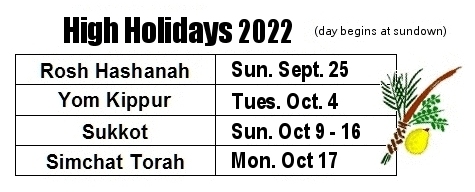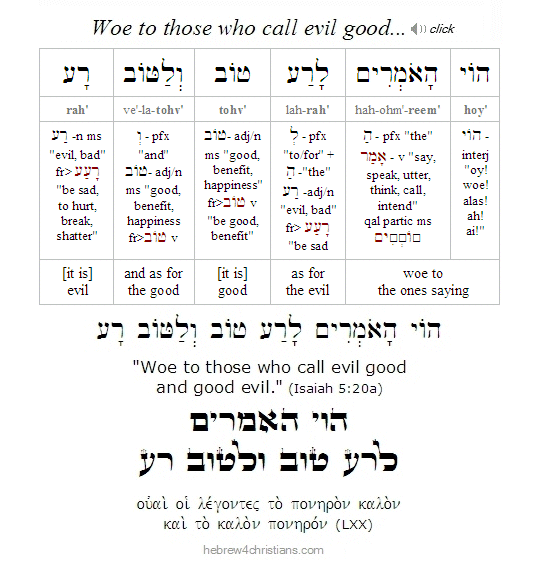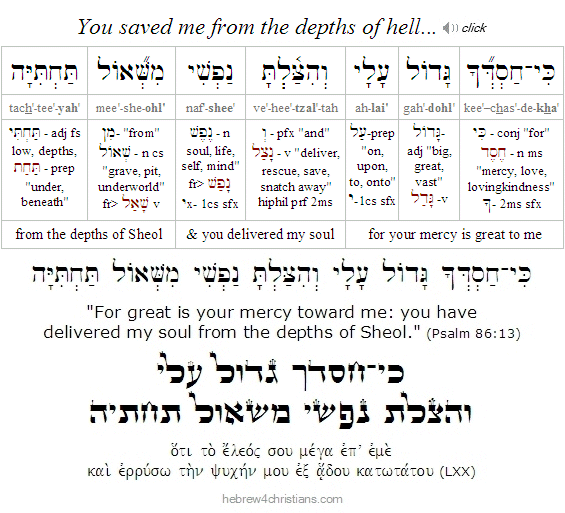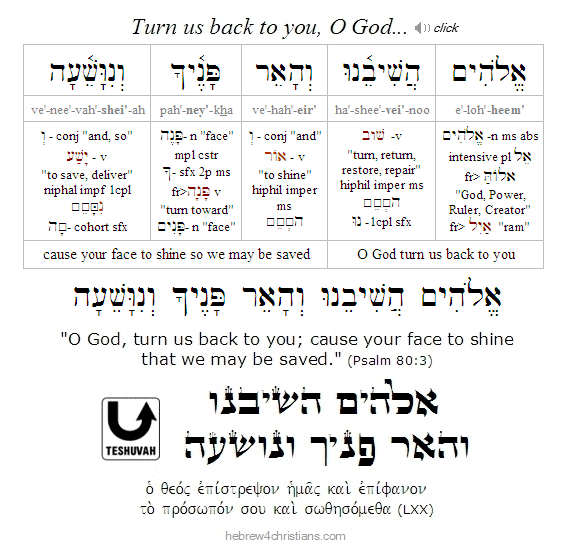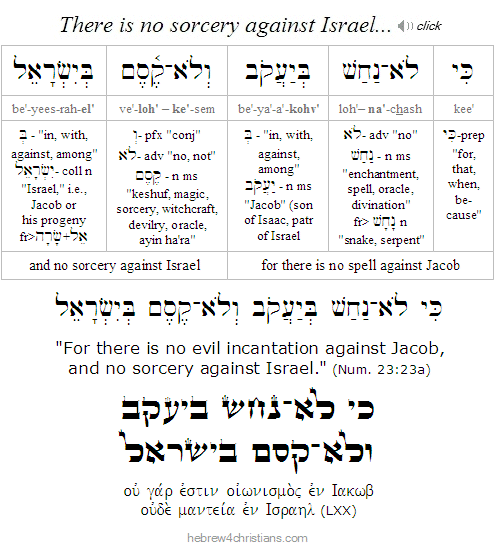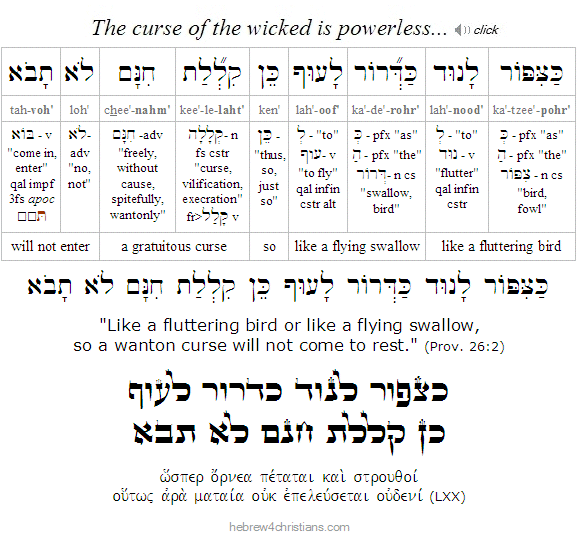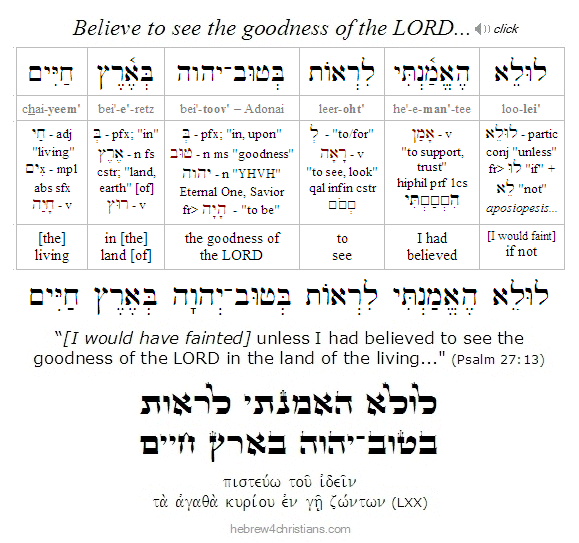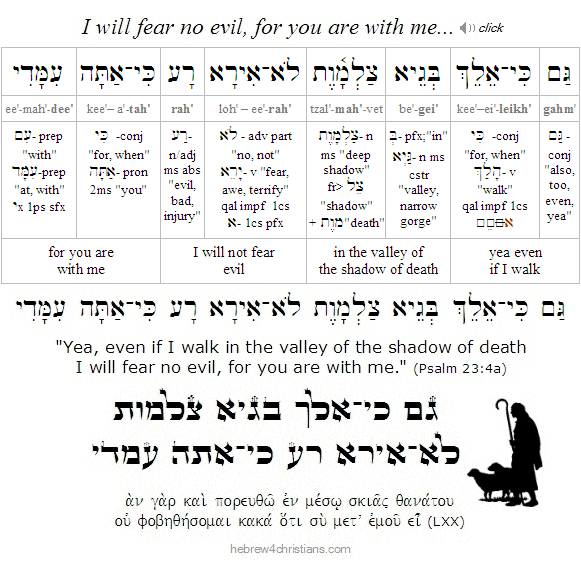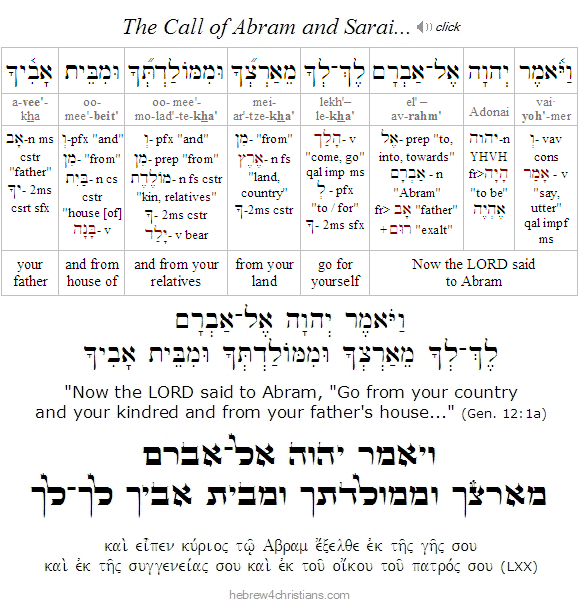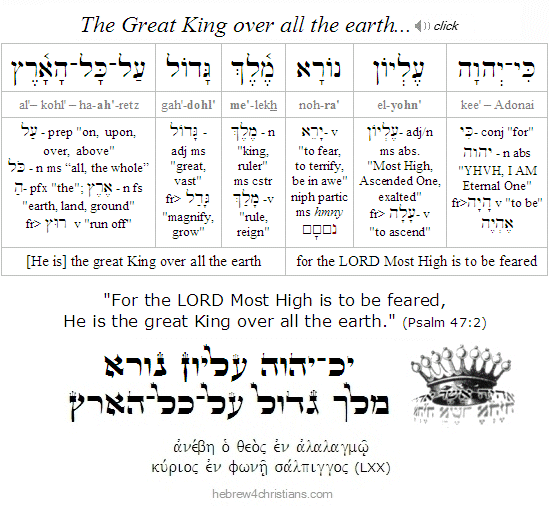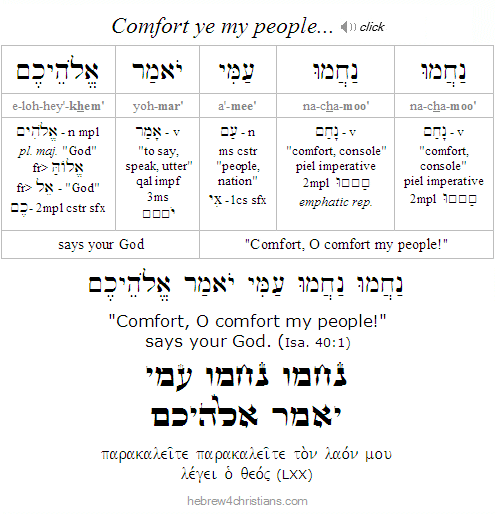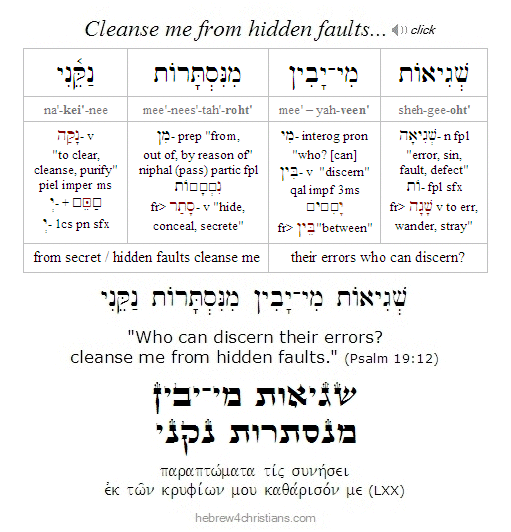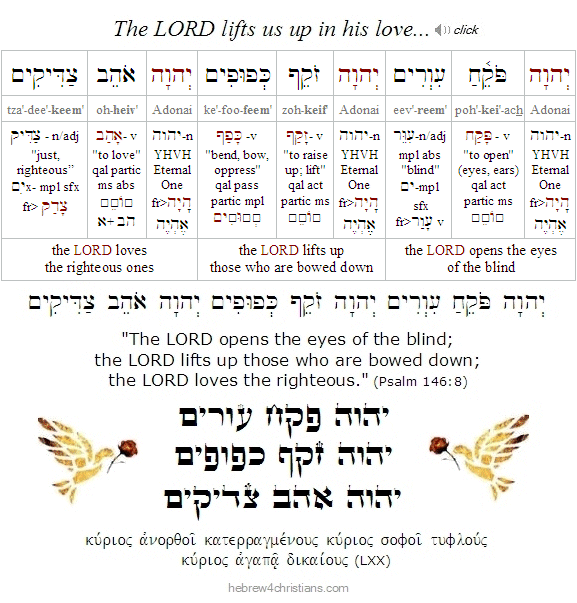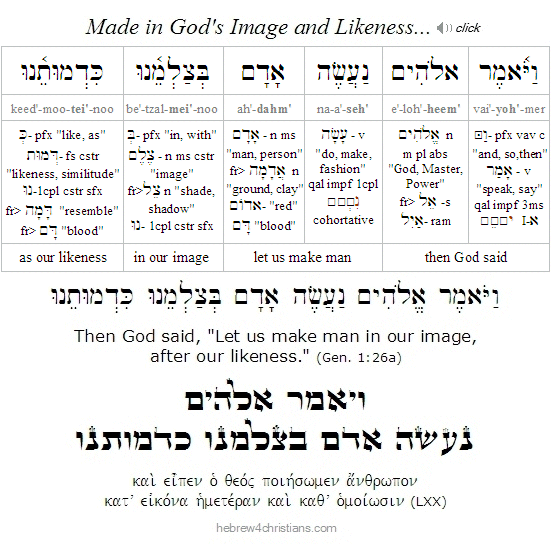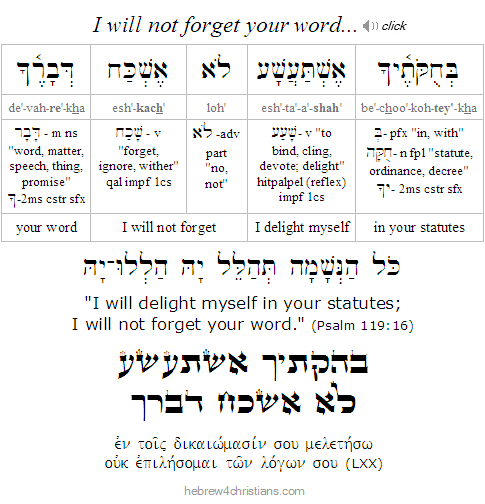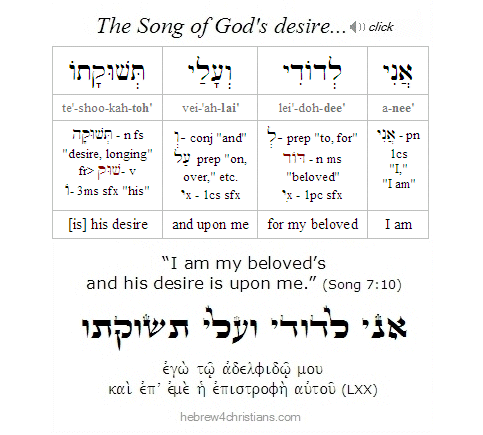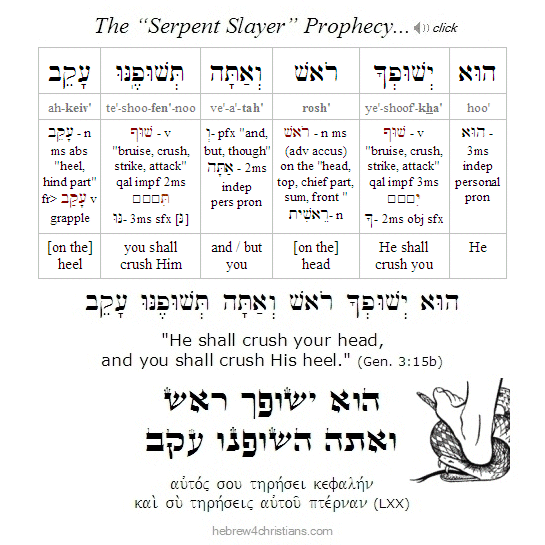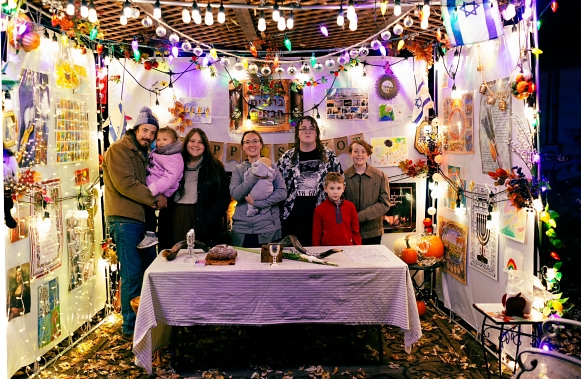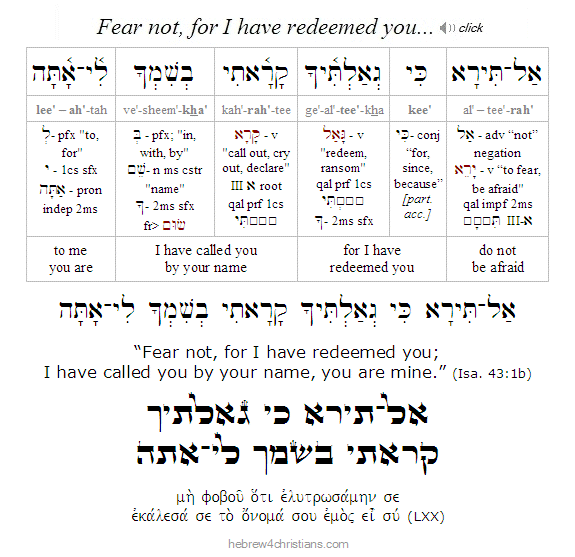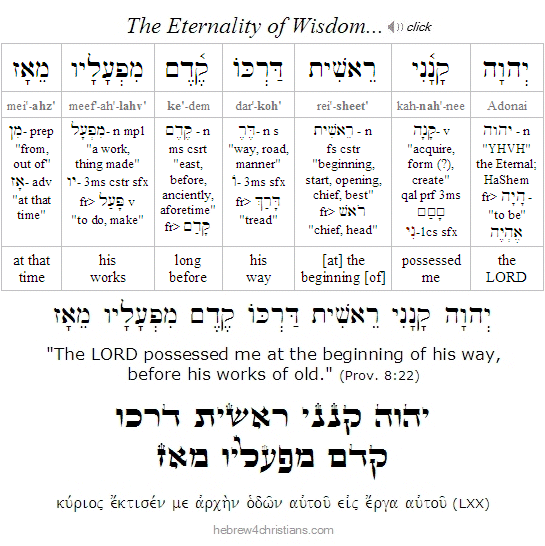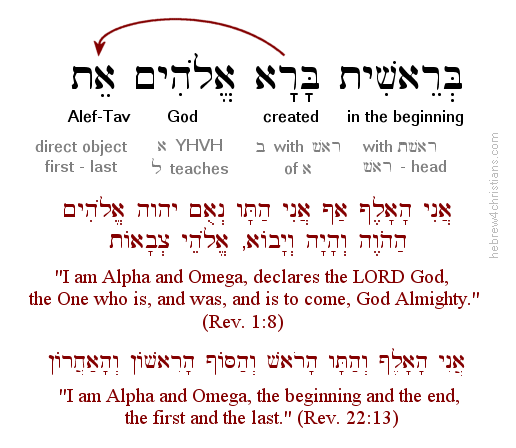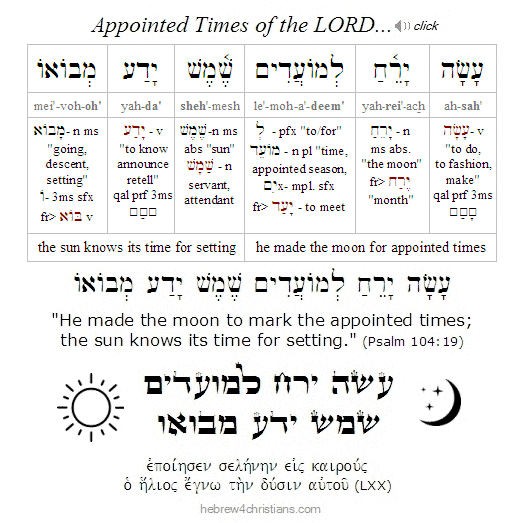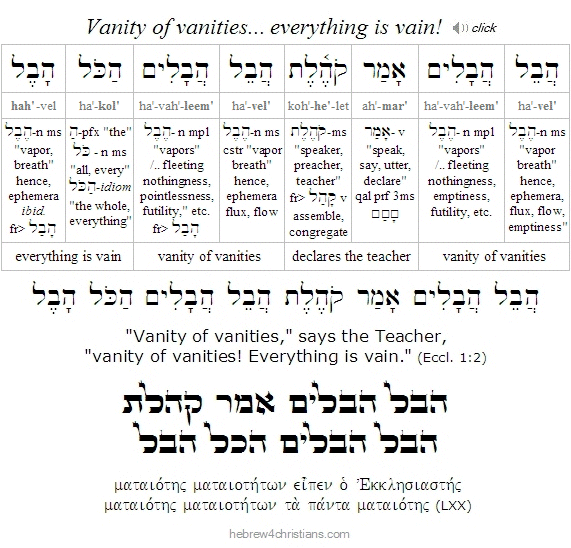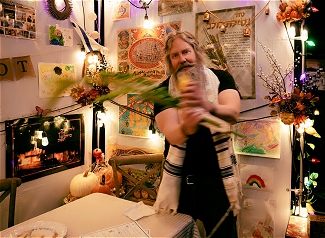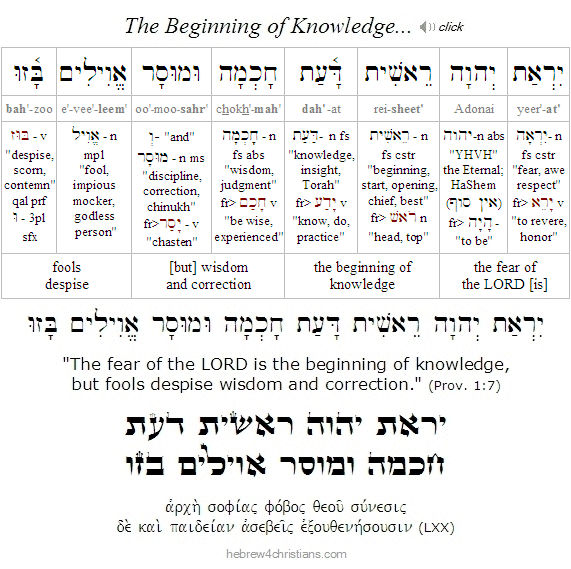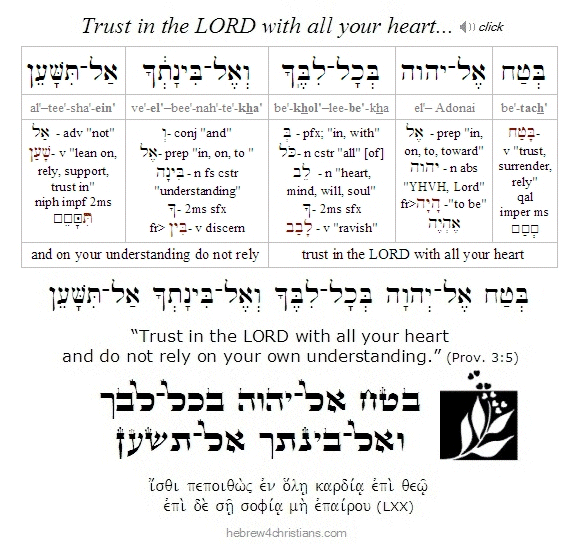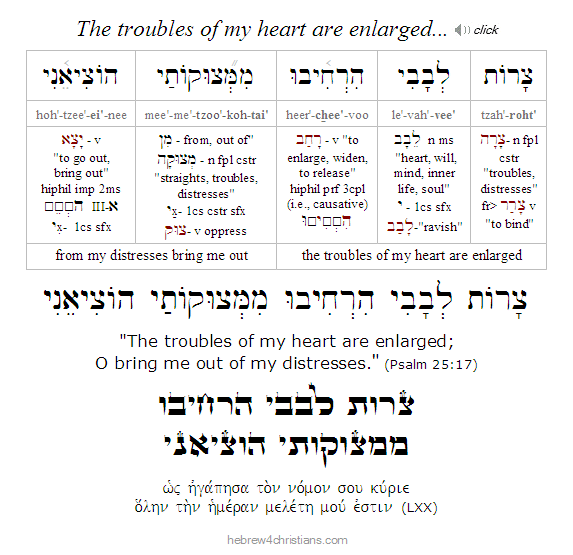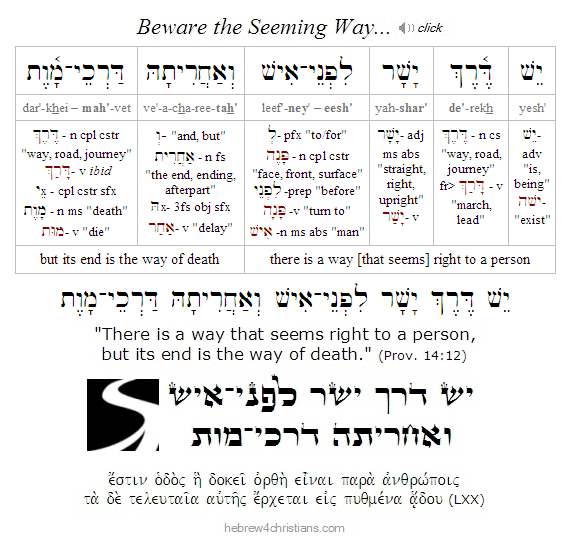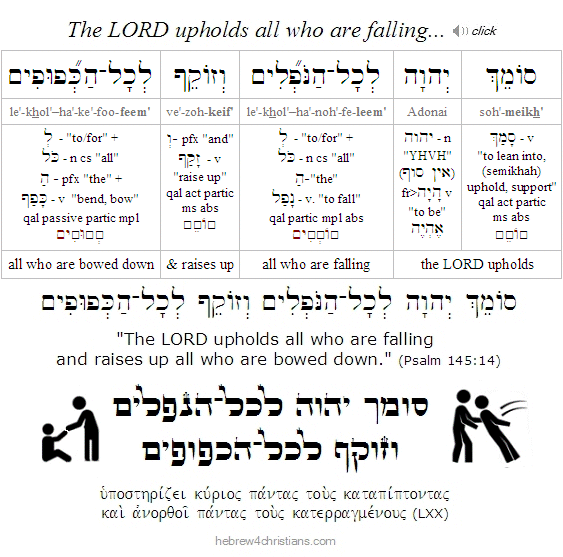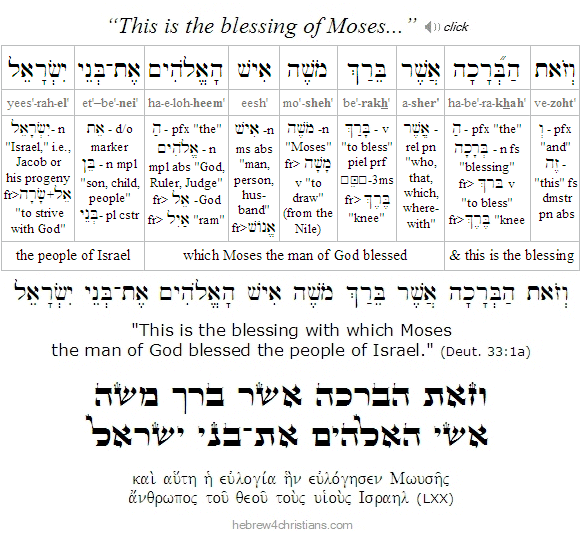|
Jewish Holiday Calendar
For October 2022 site updates, please scroll past this entry....
The Torah divides the calendar into two symmetrical halves: the Spring and the Fall, indicating the two advents of Messiah. The Biblical year officially begins during the month of the Passover from Egypt (called Rosh Chodashim, see Exod. 12:2), and the spring holidays of Passover, Unleavened Bread, and Firstfruits both recall our deliverance from Egypt and also our greater deliverance given by means of the death, burial, and resurrection of the Messiah, the great Passover Lamb of God. Yeshua was crucified on erev Pesach, buried during Unleavened Bread, and was resurrected on Yom Habikkurim (Firstfruits). The holiday of Shavuot (i.e., "Pentecost") both commemorates the revelation of the Torah at Sinai as well as the revelation of the Ruach HaKodesh (Holy Spirit) at Zion, in fulfillment of the promise given by our Lord....
The intermediate months of summer end with the advent of the sixth month of the calendar, called the month of Elul, which recalls the time Moses interceded on behalf of Israel after the sin of the Golden Calf. To commemorate this time of our history, we likewise focus on teshuvah (repentance) in anticipation of Rosh Hashanah and especially in anticipation of Yom Kippur, the great "Day of Atonement." In Jewish tradition the 30 days of Elul are combined with the first ten days of the seventh month (called the "Days of Awe") to set apart "Forty Days of Teshuvah" leading up to the Day of Forgiveness for Israel. Immediately following Yom Kippur, the mood changes as we begin preparing for a joyous week-long celebration called Sukkot (i.e., "Tabernacles") that concludes with the holiday of Simchat Torah.
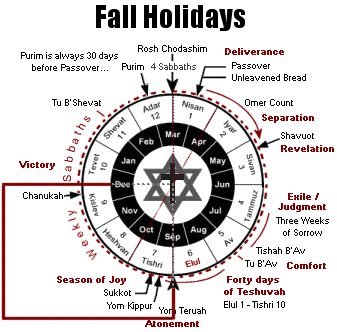 |
The Fall Holidays:

The fall festivals prophetically indicate the Day of the LORD, the second coming of Yeshua, the great national turning of the Jewish people, and the establishment of the reign of the Messiah upon the earth during the Millennial Kingdom in the world to come.
Note that in accordance with tradition, holiday dates begin at sundown. Moreover, some holidays may be postponed one day if they happen to fall on the weekly Sabbath:
1. Month of Elul (Fri. Aug. 26th [eve] - Sun. Sept. 25th [day])
2. Month of Tishri (Sun. Sept. 25th [eve] - Mon. Oct. 24th [day])
3. Month of Cheshvan (Mon. Oct. 24th [eve] - Wed. Nov. 23rd [day])
- Four Sabbaths: Noach, Lekh-Lekha, Vayera, Chayei Sarah
- Yom Ha'Aliyah - Honoring Israel's immigrants (Tues. Nov. 1st; Cheshvan 7)
- Sigd - 50th day after Yom Kippur; Ethiopian Jewish holiday (Tues. Nov. 22nd)
4. Month of Kislev (Wed. Nov. 23rd [eve] - Fri. Dec. 27th [day])
- Four Sabbaths: Toldot, Vayetzei, Vayishlach, Vayeshev
- Winter Solstice: Wed. Dec. 21st (Kislev 27)
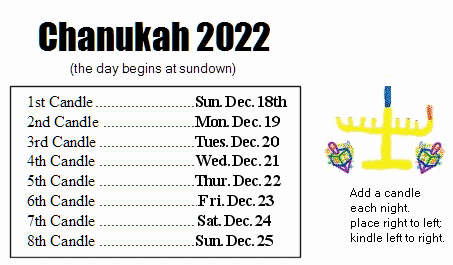
- Dates for Chanukah 2022 (5783):
- 1st Chanukah candle - Sun. Dec. 18th [i.e., Kislev 25]
- 2nd Chanukah candle - Mon. Dec. 19th [i.e., Kislev 26]
- 3rd Chanukah candle: Teus. Dec. 20th [i.e., Kislev 27]
- 4th Chanukah candle: Wed. Dec. 21st [i.e., Kislev 28]
- 5th Chanukah candle: Thurs. Dec. 22nd [i.e., Kislev 29]
5. Month of Tevet (Fri., Dec. 23rd [eve] - Sun. Jan. 26th [day])
- Four Sabbaths: Miketz, Vayigash, Vayechi, Shemot
- Dates for Chanukah (continued):
- 6th Chanukah candle: Fri. Dec. 23rd [i.e., Kislev 30]
- 7th Chanukah candle: Sat. Dec. 24th [i.e., Tevet 1]
- 8th Chanukah candle: Sun. Dec. 25th [Tevet 2] Zot Chanukah
- Christmas - Sat. Dec. 25th (Tevet 2, 5783)
- Asarah B'Tevet - Tues. Jan. 3rd (dawn), 2023; fast over the seige of Jerusalem
- Secular New Year: Sun. Jan. 1st, 2023 (Tevet 8, 5783)
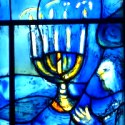 |
Note: For more about the dates of these holidays see the Calendar pages....
October 2022 Updates
He Giveth Greater Grace...

10.31.22 (Cheshvan 6, 5783) "For though the LORD is exalted, He regards the lowly, but the haughty He knows from a distance" (Psalm 138:6). Yea, God opposes the proud but gives grace to the humble (James 4:6). And who are the humble but those keenly aware of their own nothingness - the despised, the needy, and the rejected of men? The LORD justifies the ungodly by faith; He hears their cry for deliverance "from the depths"; he creates them anew yesh me'ayin, "out of nothingness," by making them into a "new creation" (בְּרִיאָה חֲדָשָׁה) through the agency and power of the Holy Spirit (Rom. 4:5; 5:6; 2 Cor. 5:17; Rom. 4:17). O praise Adonai Oseinu, the LORD God our Maker, for he looks upon the lowly, he is near to the brokenhearted, and he binds up their wounds... Amen.
כי־רם יהוה ושׁפל יראה
וגבה ממרחק יידע
kee-rahm · Adonai · ve·shah·fahl · yeer·eh
ve·gah·voh'·ha · mee·mer·chak · ye·yei·dah

"For though the LORD is exalted, He regards the lowly,
but the haughty He knows from afar."
(Psalm 138:6)
Hebrew Study Card

Hebrew Lesson:
Psalm 138:6 reading (click):
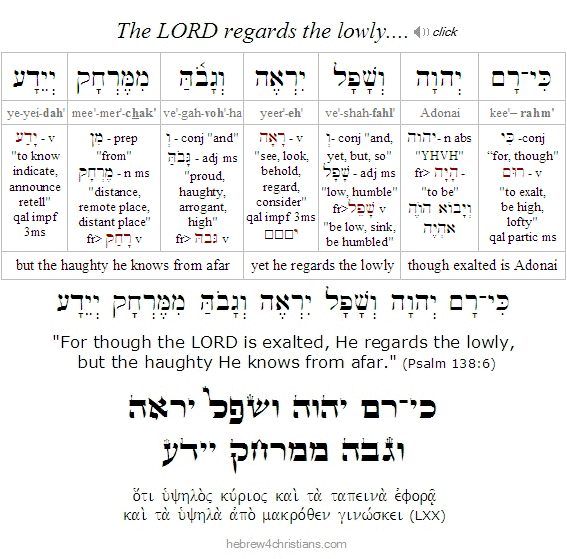 |
Again, just as the LORD made the world yesh me'ayin, "out of nothing," so His creative power continues unchanged. God is able to take a dead heart, a heart of stone, and make it tender and soft through the breath of His Spirit... Therefore His eyes look upon the lowly, the humble, the poor in spirit, but He disregards those who lift themselves up in pride.
Indeed, the LORD resists the proud and repays their scorn with scorn: "With the scorners he is scornful, but to the lowly he gives grace" (Prov. 3:34). Those who mock the idea of sin and arrogantly exalt themselves will be held in derision, but of those who find grace it is written, "Blessed is the man who walks not in the counsel of the wicked, nor stands in the way of sinners, nor sits in the seat of scoffers, but his delight is in the Torah of the LORD, and in His Torah he meditates day and night" (Psalm 1:1-2). Indeed it is a severe mercy, a weighty grace, that is bestowed to us, friends...
Abhoring what is Evil...
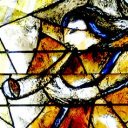
[ "To have a right to do a thing is not at all the same as to be right in doing it." - Chesterton ]
10.31.22 (Cheshvan 6, 5783) Contrary to the despairing philosophy of this fallen world, the essence of love abhors what is evil; just as it is hateful to be "tolerant" of what is wicked... Followers of Yeshua must love the truth and abhor the lie. Tolerating (or indulging) sin in a world ripe for judgment is a tacit form of "collaboration" with the enemy... Indeed, the only thing regarded as intolerable in the devil's world is the objection that people have a supposed "liberty" to sin. But the LORD is clear on this point: those who call evil good and good evil are subject to divine wrath and judgment (Isa. 5:20-21).
Therefore we are enjoined: "O you who love the LORD, hate evil" (Psalm 97:10). Yes, hate what is evil (and most especially hate the evil within your own heart) and love what is good (Amos 5:15). As King David said, "Do I not hate those who hate you, O LORD? And do I not loathe those who rise up against you? I hate them with complete hatred; I count them my enemies" (Psalm 139:21-22). The connection between loving God and hating evil is repeated in the New Testament: "Let your love be genuine (ἀνυπόκριτος, without a "mask" put on): abhor what is evil; cling to what is good (Rom. 12:9). If we truly love the LORD, let us walk in the awe of His great Name by hating what is evil - both the sin lurking within our own breast and the cruelty and injustice we see in the world today...
Hebrew Lesson:
Isaiah 5:20a reading (click):
Every day we make decisions regarding good and evil, and therefore every day we are deciding (i.e., proclaiming, teaching, attesting) what we love and what we hate. Choosing not to chose is itself a choice. The issue is not whether we love or whether we hate, but what we love and what we hate. The LORD has paid us the "intolerable compliment" of forcing us to choose whether we will serve evil or turn to God for deliverance and life....
The Scriptures do not mince words with this issue. "There are six things that the LORD hates, seven that are an abomination to him: haughty eyes, a lying tongue, and hands that shed innocent blood, a heart that devises wicked plans, feet that make haste to run to evil, a false witness who breathes out lies, and one who sows discord among brothers" (Prov. 6:16-19). "I hate and abhor lying, but I love Your law" (Psalm 119:163). "Take no part in the works of darkness, but instead expose them" (Eph. 5:11). The cross of Messiah is meaningless if God does not really hate sin, violence, and evil... The heart cry of the tzaddik adjures: "O you who love the LORD, hate evil" (Psalm 97:10).
Flee from the Wrath to Come...
Any culture that glorifies violence, despises moral authority and spiritual truth, and that tolerates injustice is already under divine judgment. Indeed, throughout the Scriptures "Sodom" symbolically represents gross immorality, depravity, and therefore ineluctable self-destruction. For example, the prophet Ezekiel later wrote of Judah: "Behold, this was the guilt of your sister Sodom: she and her daughters had arrogance, abundant food, and careless ease, but she did not help the poor and needy. Thus they were haughty and committed abomination (תּוֹעֵבָה) before me; therefore I removed them when I saw it" (Ezek. 16:49-50). The New Testament refers to the fate of Sodom as "a fearful example of the everlasting fire of retribution" (Jude 1:7) -- the destructive result of spiritual anarchy, lawlessness, sexual perversion, and trauma (2 Pet. 2:6-10).
Thankfully there is real hope for those who seek to escape from the wrath to come by turning to God and trusting in his healing power of salvation, though only a "remnant" shall find true deliverance (Matt. 7:14). Speaking of the final salvation of Israel, the Apostle Paul quotes Isaiah: "If the LORD of Hosts hadn't left us a few survivors, we'd be as desolate as Sodom, doomed just like Gomorrah" (Isa 1:9; Rom. 9:29). Therefore flee from the wrath to come; find your refuge in Yeshua the LORD!
Narrow Gate of Despair...

10.31.22 (Cheshvan 6, 5783) There is a great danger today of fearing the wrong things, and despairing over that which trivial in light of eternity. However honest despair is a gift from God, if it is received as a message to take heed of what is most important. "And this is the simple truth - that to live is to feel oneself lost. He who accepts it has already begun to find himself, to be on firm ground. Instinctively, as do the shipwrecked, he will look around for something to which to cling, and that tragic, ruthless glance, absolutely sincere, because it is a question of his salvation, will cause him to bring order into the chaos of his life. These are the only genuine ideas; the ideas of the shipwrecked. All the rest is rhetoric, posturing, farce" (Kierkegaard). Like Jonah we first must be "swallowed up" in consciousness of our own hopelessness before we realize that we are without remedy apart from God's intervention and deliverance. We start there - in the "belly of the fish" - and later are brought forth by God's mercy and grace. This is the place of the cross, the "narrow gate" that leads to life. As we look to Yeshua, as we lean on him, he reveals more of himself to us.
Hebrew Lesson:
Psalm 86:13 Hebrew Reading (click):
Hillel the Elder had said, "If I am not for myself then who will be for me? (אם אין אני לי מי לי); But if I am only for myself, what am I? And if not now, when?" (Avot 1:14). Hillel points out here that the language of "I am" (אָנִי) and "for me" (לִי) reveals that we have a relationship with ourselves that must be sanctified and ordered before God. As Soren Kierkegaard once wrote: "The self is a relation which relates itself to its own self," that is, the self is always in a state of dialog. A healed self relates itself to God as the Ground of existence, since otherwise irremediable despair will result, eternal lostness within, an everlasting sickness of soul...
The remedy for being a lost self, relating only to itself without any center or ground, is to turn to God and to find your place in God's love and blessing. As we come to believe that we are accepted and loved despite our many imperfections, inadequacies, and character defects, we find courage to accept ourselves, to "let go" in trust. As Yeshua said, "whoever does not receive the kingdom of God like a child shall not enter it" (Luke 18:17).
The Time of Visitation...

10.31.22 (Cheshvan 6, 5783) Yeshua lamented over Israel: "You did not recognize the time of your visitation..." (Luke 19:44). But how was it possible for otherwise devoutly religious people to miss the advent of the Messiah -- were it not because they disregarded the signals meant to awaken them? "So also, when you see all these things, you know that he is near, at the very gates" (Matt. 24:33). That's part of the message of teshuvah as well: Repent and believe the message of life (see Heb. 3:7-4:11).
Esau "repented" with tears, but his wasn't true repentance since he did not turn his heart to embrace God's love... True repentance leads to healing and life. When the woman from Magdala wept and washed Yeshua's feet with her tears, he said to those present, "I tell you, her sins, which are many, are forgiven -- for she loved much" (Luke 7:44-48). In other words, she was lavish in her love because she deeply regretted that she had missed what was most important, what she desperately needed all along... She saw her sin as blindness to God's love... After all, why would she weep over her sins unless she loved him? And how could she love him unless he first revealed his love to her? (1 John 4:19).
Friends, the Kingdom of God is at hand: wake up and be ready for the advent of the King! The sound of the shofar reminds us that the great Day of the LORD is drawing near and soon we will see our King Yeshua.
Hebrew Lesson:
Psalm 80:3 Hebrew reading:
Vanity of the Wicked...

10.31.22 (Cheshvan 6, 5783) Regarding the pagan holiday of "Halloween," remember that there is no "spell" or evil incantation (i.e., nachash: נַחַשׁ) effective against Jacob, there is no sorcery (i.e., kesem: קֶסֶם) against Israel. At this time it must be said of Jacob and of Israel, 'Look at what God has done (מַה־פָּעַל אֵל)' [Num. 23:23]. No weapon formed against God's people shall prosper (Isa. 54:17), and the curse of the wicked is powerless against the tzaddikim (Prov. 26:2). Ein od milvado (אֵין עוֹד מִלְבַדּו) - God is the only true Power (Deut. 4:35; 1 Chron. 29:11; Rev. 4:11). Satan is an impostor and a foiled usurper. As Yeshua told his followers, "Behold I give to you authority (ἐξουσία) to tread on serpents and scorpions and over all the power of the enemy (καὶ ἐπὶ πᾶσαν τὴν δύναμιν τοῦ ἐχθροῦ), and nothing shall by any means hurt you" (Luke 10:19). Like Balaam and Haman, all who curse God's people or attempt to foil His plans will be upended... Hallelujah and Amen.
Hebrew Lesson:
Numbers 23:23a reading (click):
"No weapon that is formed against you shall prosper; And every tongue that accuses you in judgment you will condemn. This is the heritage of the servants of the LORD, And their vindication is from Me," declares the LORD (Isa. 54:17). The wicked gnash their teeth and accuse the godly, but their words are vain and their end is certain... "Like a fluttering bird or like a flying swallow, so a wanton curse does not come to rest" (Prov. 26:2).
Hebrew Lesson:
Proverbs 26:2 reading (click):
The Meaning of "Hebrew"...
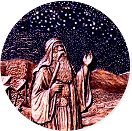
[ The following entry is related to this week's Torah reading, parashat Lekh-Lekha.... ]
10.31.22 (Cheshvan 6, 5783) In our Torah for this week (Lekh Lekha) Abram is called ha-ivri (הָעִבְרִי) - "the Hebrew," a term that means "one who has crossed over" (עָבַר) from another place. Rashi literally identifies this "other place" as Ur Kasdim (אוּר כַּשְׂדִים), located east of the Euphrates River, though the midrash (Genesis Rabbah) spiritually identifies it as the realm of idolatry: "The whole world stood on one side, but Abram crossed over to the other." Abram separated himself from a world steeped in idolatry and polytheism by worshiping One God who is the sole Creator of all things.... Understood in this way, being "Hebrew" means being regarded as an "other," a "stranger," or an "outsider" to idolatrous worldly culture.
Various midrashim tell the story about how Abram came to understand the truth that there is only one God who is Creator of all. For instance, when he was born, Abram's mother hid him in a cave. She was afraid that the evil king Nimrod would kill her son because prophets had warned that he would triumph over Nimrod. Guarded by the angel Gabriel, young Abram first worshiped the stars as gods until they were obscured by the Sun. Then he declared that the Sun was god until it set and the Moon took its place. Clouds then covered the Moon, showing Abram that the Moon was not a god either. At last, Abram understood that there was one supreme God would ruled over all the forces of the universe. (Later, after the danger had passed, young Abram rejoined his family.)
A midrash relates that Abram's father Terach sold idols for a living in the city of Haran. But Abram had long since realized that idol worship was foolishness. One day when he was asked to watch his father's store, Abram took a hammer and smashed all the idols - except for the largest one. His father came home and demanded to know what happened. Abram explained that the idols all got into a fight and the biggest idol won. When his father objected that this was impossible, Abram said, "Aha! So you agree with me that idols are powerless! My father, there is only one true God, and this God cannot be shaped with human hands..." Terach was angry but understood that his son had discovered the great truth of ethical monotheism.
Lekh lekha (לך־לך) literally means "go for yourself" (lit. "walk [הָלַךְ] for yourself [לְךָ]"). Rashi states that it means "Go for your own benefit," though the Chassidic teachers interpret it as "Go to yourself" (i.e., begin your own journey back to God). At any rate, it's clear that the phrase is an invitation by God to venture ahead -- to go forth in faith... Go forth and risk everything for the sake of God's promise.
"Go forth ... I will show you" (Gen. 12:1). Note that the LORD spoke to Abram and invited him to forsake his ancestral homeland for the promise of God. But note further that it was only after Abram made the long journey to the unknown land of Canaan that God appeared to him to him by the oaks of Mamre saying, "To your offspring I will give this land" (Gen. 18:1). Abram did not believe the promise because he saw God; he was only able to see God after he had walked in faith. First Abram heard the message, and later -- after he acted on his faith -- was he enabled to see more... מַעֲשֵׂה אֲבוֹת סִימָן לַבָּנִים / ma'aseh avot siman labanim: "The deeds of the fathers are signs for the children." The pattern is therefore given: First Abram heard the message, and later - after he acted on his faith - was he enabled to see more. This is the deeper meaning of being "Hebrew," one who crosses over from the realm of the dead to the realm of the Living God...
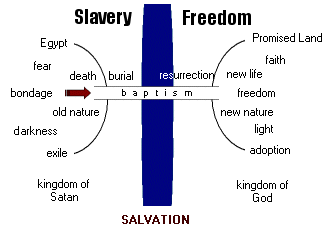 |
As a matter of textual gematria, regarding the promise to make Abraham's name great (Gen. 12:2), the sages note that the total number of Hebrew letters in the names of the three patriarchs Abraham (אברהם), Isaac (יצחק), and Jacob (יעקב) is 13. Likewise the total number of letters in the names of the three matriarchs Sarah (שׁרה), Rebecca (רבקה), Leah (לאה), and Rachel (רחל) is 13. Furthermore 13 is the numeric value for the word echad (אחד), a word that means "unity" and represents the 13 attributes of God's Mercy (Exod. 34:6-7). The combined letters of the patriarchs and matriarchs therefore totals 26, the same numeric value (in gematria) as that for the Name of God (i.e., YHVH: יהוה).
Hebrew Lesson:
Psalm 27:13 reading (click):
The Divine Presence...
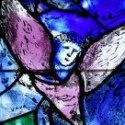
10.30.22 (Cheshvan 5, 5783) God told Moses that his Name means that He is Present (הֹוֶה) in every moment - past, present, and future (הָיָה וְהוֶה וְיָבוֹא). The Name YHVH (יהוה) is "shorthand" for "I AM with you always" (אָנכִי אֶהְיֶה עִמָּכֶם). There is no moment in time, just as there is no place, where God is not "there" for us. This includes times of testing, darkness, and even death itself (Psalm 23:4). The LORD our God does not abandon us, even when He seems hidden, powerless, or unwilling to intervene. Faith trusts that He is present there, in moments when we are vulnerable, weak, afraid, and seemingly all alone, and that all things are bound up in his love and good will toward us... Faith receives God as always present, the substance of our hope and dream of eternal healing and eternal life.
Prayer Request: My brother-in-law Yasha and his lovely wife Veronica lost their 2 month old baby boy Nicolai from SIDS today. Please remember them in your prayers, chaverim...
Parashat Lekh-Lekha...

10.30.22 (Cheshvan 5, 5783) Shavuah tov, chaverim. Last week's Torah portion (i.e., parashat Noach) introduced us to Abram (אַבְרָם), the descendant of Noah's son Shem, who was the great-grandson of the patriarch Methuselah - a man who who personally knew Adam and Eve and upheld the original promise of redemption given in the Garden of Eden. Just as there were ten generations from Adam to Noah, so there were also ten generations from Noah to Abram (see Gen. 11:10-32). And just as Noah became the father of 70 nations, so Abram (through Shem) would become the father of the Jewish people, through whom the Promised Seed - the Messiah and Savior of the world - would eventually come.
In our Torah portion for this week (Lekh-Lekha), we read that Abram was 75 years old, married to (his half-sister) Sarai, and guardian of his nephew Lot (his deceased brother Haran's son) when he received the promise of divine inheritance: "And the LORD said to Abram, "Go from (i.e., lekh-lekha: לך־לך) your country and your kindred and your father's house to the land that I will show you. In Hebrew, the phrase lekh lekha means "go for yourself" (lit. "walk [הָלַךְ] for yourself [לְךָ]"), though it can be interpreted it to mean "go to yourself," that is, "look within yourself" in order to begin walking out your own journey into the promises. The realm of divine promise is only attained when we venture out in faith. Like our father Abraham, we are called to "cross over," leave everything behind, and take hold of God's glorious promise for our lives.
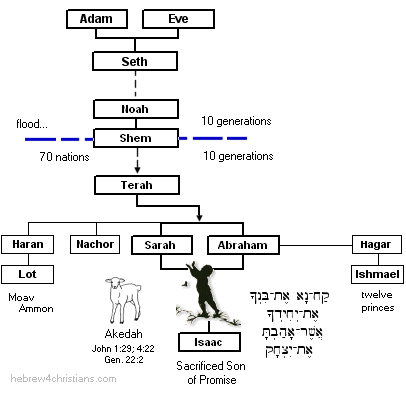 |
Hebrew Lesson:
Genesis 12:1a reading (click):
Thy Kingdom Come...
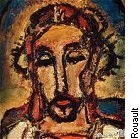
[ "The motive, principle, and end of the religious life is to make an absolute gift of self to God in a self- forgetting love, to end one's own life in order to make room for God's life." - Edith Stein ]
10.28.22 (Cheshvan 3, 5783) As followers of Yeshua, we must be "theocratic" in our focus, as our Lord himself was. He taught us to pray: "Thy kingdom come; Thy will be done, on earth as it is in heaven" (Matt. 6:10); he instructed us to "seek first the kingdom of God and his righteousness" (Matt. 6:33), and gravely warned that those who practice lawlessness (i.e., ἀνομία) are cut off from the hope of God (Matt. 7:23). Indeed God's curse is on all those who seek to eat from the "tree of the knowledge of good and evil," that is, those who define good and evil in their own terms, disregarding the revelation of Torah, and who desire to do only what they think is right "in their own eyes." In the end, every knee shall bow and every tongue will confess the truth about Reality, friends... That day is coming soon.
Hebrew Lesson:
Psalm 47:2 Hebrew reading (click):
In order to say, "thy kingdom come, thy will be done" we must let go of our own agenda; our ego must be deposed from its petty little kingdom... Likewise, we can't say, "Come, Lord Jesus" by putting our fear first, or by otherwise demanding that our life should center on our own personal "advent." No, you must consciously choose to live in exile to this world (Gal. 6:14). How can we ever expect the LORD to live out His life through us if we do not genuinely offer our lives to Him? And yet this is exactly the problem of the ego...
A principle of spiritual life is that we descend in order to ascend, or the "the way up is the way down." As Yeshua said, "Whoever would be first among you must be slave of all" (Mark 10:44). Becoming nothing (i.e., ayin) in this world is the condition for seeing something in the world to come. But we become nothing by trusting in the miracle, not by trying to efface ourselves... This is not another venture of the ego. Life in the Spirit means trusting that God will do within you what you cannot do for yourself... We can only take hold of what God has done for us by "letting go" of our own devices (Phil. 2:13). When we really let go and trust, we will become nothing (i.e., klume: כְּלוּם), carried by the Torah of the Spirit of life. The way is not trying but trusting; not struggling but resting; not of clinging to life, but of letting go...
This is another example of the difficulty of truly trusting God for the miracle, that is, of genuinely receiving the miracle... Some people scorn the idea of "easy believism," though of course there is nothing at all "easy" about exercising true faith in the LORD and living the truth in our lives. We need the miracle; we need grace from heaven to impart real passion for us to walk according to God's heart: we need the strength only God can give.... Amen.
 |
The Seven "Days" of History...
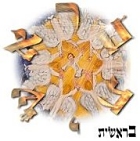
[ As followers of Yeshua the Messiah, we should understand "eschatology," or what the holy Scriptures prophetically reveal about the "end of days..." The following post is a bit long, but I hope it will be worth your time as an overview of the subject. - John ]
10.28.22 (Cheshvan 3, 5783) Jewish tradition has long held that human history (olam hazeh) would endure for 6,000 years - from the time of the impartation of the neshamah (soul) to Adam in the Garden of Eden to the coming of the Messiah. There were two primary arguments for this view of history. First, the sages argued that a "divine day" (יוֹם) equaled 1,000 years based on Psalm 90:4: "A thousand years (אֶלֶף שָׁנִים) in your sight is as a day (i.e., ke'yom: כְּיוֹם)." They reasoned that since man was made in the image of God, and the Torah describes six days of creation followed by a day of divine rest, mankind (as a whole) was therefore allotted 6 x 1,000 years (i.e., 6,000) for "works" to be established in the world, followed by a 1,000 year Shabbat (Sanhedrin 97a, Rosh Hashana 31a). The ancient Seder Olam Rabbah catalogs historical events from the start of Creation according to the 6,000 years of history. Humanity will have its time of reign on earth for 6,000 years and then the Messiah will begin his reign in the 7th millennium, a "Sabbath" of sacred history. Later midrash goes along with this basic outline: "Six eons for going in and coming out, for war and for peace. The seventh eon is entirely Shabbat and rest for life everlasting" (Pirke de Rabbi Eliezer). The Apostle Peter may also have had this outline in mind when he wrote, "With the Lord one day is as a thousand years, and a thousand years as one day" (2 Pet. 3:8).
Second, the Jewish mystics argued that there are six letters in the first word of the Torah, bereshit (בראשׁית), and since there are 6 Alephs (א) in the very first verse of the Torah, and that each Aleph (אלף) represents 1,000, there must be 6,000 years of human history. The Zohar states, "The redemption of Israel will come about through the mystic force of the letter "Vav" [the sixth letter of the Aleph-bet, corresponding to the sixth Aleph] in the sixth millennium. Happy are those who will be left alive at the end of the sixth millennium to enter the Shabbat, which is the seventh millennium; for that is a day set apart for the Holy One to effect the union of new souls with old souls in the world" (Zohar, Vayera 119a).
So according to both the sages and the mystics, human history will persist for 6,000 years - 1,000 years for each day of creation - followed by a 1,000 year "Shabbat" that represents the Messianic Age of global and universal peace. After the Messiah appears, there will be peace on earth, and all the promises of God given through the prophets will be fulfilled. It is worth noting that in the discussion from the Talmud, the 6,000 years of human history are divided into three epochs of 2,000 years (i.e., two days) each. The period of "tohu" (ימי טוהו) occurred from the time of the fall of Adam until the call of Abraham; the period of "Torah" (ימי תורה) occurred from Abraham until the time of the destruction of the Second Temple, and the period of the "Messiah" (ימי המשיח) refers to the time when the Messiah could appear to Israel before the Kingdom is established in Zion.
Note that the time immediately preceding the appearance of the Messiah will be a time of testing in which the world will undergo various forms of tribulation, called chevlei Mashiach (חֶבְלֵי הַמָּשִׁיחַ) - the "birth pangs of the Messiah" (Sanhedrin 98a; Ketubot, Bereshit Rabbah 42:4, Matt. 24:8). Some say the birth pangs are to last for 70 years, with the last 7 years being the most intense period of tribulation -- called the "Time of Jacob's Trouble" (ימי צרת יעקב, from Jer. 30:7). The climax of the "Great Tribulation" (הצרה הגדולה) is called the great "Day of the LORD" (יוֹם־יהוה הַגָּדוֹל) which represents God's wrath poured out upon a rebellious world system. On this fateful day, the LORD will terribly shake the entire earth (Isa. 2:19) and worldwide catastrophes will occur. "For the great day of their wrath has come, and who can stand?" (Rev. 6:17). The prophet Malachi likewise says: "'Surely the day is coming; it will burn like a furnace. All the arrogant and every evildoer will be stubble, and that day that is coming will set them on fire,' says the LORD Almighty. 'Not a root or a branch will be left to them'" (Mal. 4:1). Only after the nations of the world have been judged will the Messianic kingdom (מלכות המשיח) be established upon the earth. The remnant of Israel will be saved and the 1000 year reign of King Messiah will then commence (Rev. 20:4).
 |
Some Christian scholars such as the late Dr. Clarence Larkin have divided the days somewhat differently and have added an additional "day" based on the coming eternal state of the "Heavenly Jerusalem." Hence Larkin's depiction of the Eight Days of Creation:
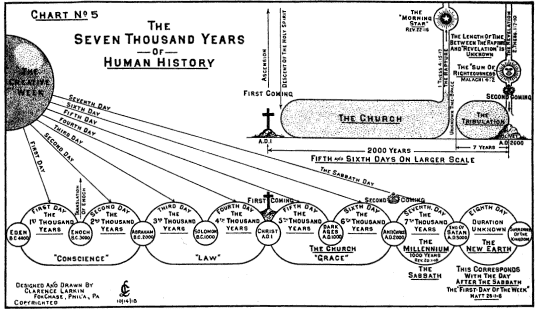 |
As for the exact timing of these events, "no one knows the day or hour." In fact, various Jewish sages have argued for "missing years" in the prophetic calendar (due to periods of exile or other factors) and therefore they say that the Day of the LORD may be delayed on account of national sins. For example, based on the gematria of the first two words of a verse from the Torah (i.e., וְהָיָה עֵקֶב, Deut. 7:12) Rashi explained that the 2,000 years of the Days of Messiah actually began 198 after the destruction of the Second Temple. "198 years after the destruction of the Temple the bells of the Messiah will be heard" (i.e., the days of the Messiah would begin). According to Rashi, the delay was the result of Israel's sin. (On the other hand, many ultra-Orthodox Jews believe they can "hasten" the Messiah's appearance through special acts of teshuvah: "Mashiach Now!").
Since the sages of Jewish tradition state that the "days of Messiah" (ימי המשיח) began after 4,000 years of history (i.e., after four "days"), we can understand the Messianic expectation among the Jews during the first century in Judea. The Essenes were eagerly awaiting the advent of the "Teacher of Righteousness" and the "Zealots" wanted to establish the Kingdom of God by force of arms. if necessary. Even the common people of Israel expected that the Messiah would come soon appear to ransom captive Israel. It was in this context, then, in the "fullness of time" (Gal. 4:4), that our Lord Yeshua began His earthly ministry as the Suffering Slave (העבד הסובל) who redeemed us from the "tochechah," or the judgment of the law that held us captive (see: Lev. 26:14-45; Isa. 52:13-53:12; Gal. 3:13, Col. 2:14; 1 Pet. 2:24).
Hebrew Lesson
Psalm 90:4 reading (click):
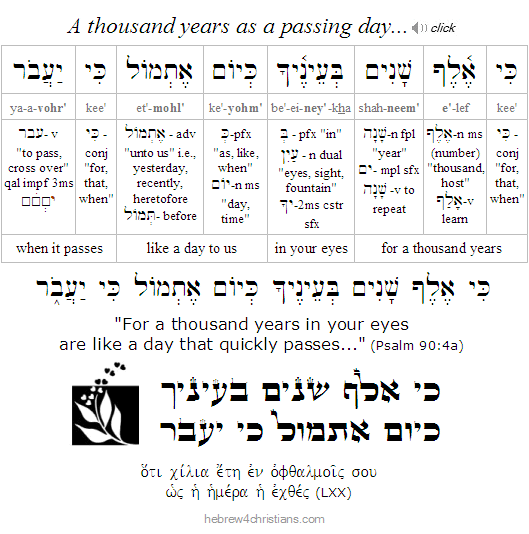 |
So to quickly review what has been said, both Jewish tradition (i.e., masorah: מָסוֹרָה) and ancient Jewish commentary (i.e., midrash: מִדרָשׁ) say that the six days of creation described in the Torah parallel six millennia of human history. The first day (היום הראשון) God created light which stands for the first thousand years that Adam lived: "He was the light of the world because he recognized his Creator." On the second day (היום השני) God separated the sky and the seas, which foretold when Noah was separated from the world of men at the time of the great flood. The sages here note that the Torah does not say "it was good" on the second day because of the great judgment upon the earth.
On the third day (היום השלישי) the earth became fertile and the first fruits were created, foretelling the time of Abraham and his descendants who accepted God's commandments. The fourth day (היום הרביעי) God created the sun and the moon, symbolizing the light of the two Temples and the anticipation of the coming of the Messiah. On the fifth day (היום החמישי) the birds and fish were created, picturing the advent of Messiah and his followers who would fill heaven and earth. The six day (היום השישי) God created Adam, for within six thousand years the Messiah, the "Second Adam," would come to judge the nations and to restore Israel.
Finally, the seventh day (היום השביעי), or the Sabbath, represents the 1,000 year period of peace of the Kingdom of Zion, as foretold by the prophets. We rest on this day in honor of Messiah's finished work and his reign as King over all the earth during the Millennial Kingdom. Note that this overall view of human history is consistent with the Christian eschatology of classical "dispensationalism," a theological framework that helped the Zionist movement establish the modern State of Israel.
Seeking What is Above...
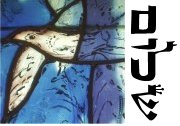
10.27.22 (Cheshvan 2, 5783) "If then you have been raised with Messiah, seek the things that are above, where the Messiah is seated at the right hand of God (לִימִין הָאֱלהִים); focus your thoughts on the things above - not on things here on earth - for you have died, and your life has been hidden with Messiah in God" (Col. 3:1-3).
Notice that the verb translated "you have died" (ἀπεθάνετε) indicates that your death is a spiritual reality you must accept by faith. You don't "try to die" to the flesh, since that is the fool's errand of man's "religion." No, you trust that God has killed the power of sin and death on your behalf and imparted to you a new kind of life power (John 1:12; Eph 2:5).
Because you partake of an entirely greater dimension of reality, namely, the spiritual reality hidden from the vanity of this age, your life is likewise hidden from this world (Col. 3:4). Therefore we are instructed to consciously focus our thoughts (φρονέω) on the hidden reality of God rather than on the superficial and temporal world that is passing away: "For we are looking not to the things that are seen but to the things that are unseen. For the things that are seen are transient (i.e., "just for a season," καιρός), but the things that are unseen are eternal" (2 Cor. 4:18).
Just as you must trust and accept that Yeshua was crucified for you, identifying with you, taking your place in judgment, exchanging his life for your own, so you must trust and accept that you have been crucified with him, and that your old life was taken away and replaced with a new, indestructible nature of his resurrection life. In other words, a union is created where his "for me" is answered by my "with him." Χριστῷ συνεσταύρωμαι– "I already have been crucified in Messiah" (Gal. 2:20).
Indeed the two go together: to trust in the finished work of Messiah as being for you is to trust in his finished work being within you... When he died on the cross for you, which sins didn't he bear on your behalf? which remedy did he leave unfulfilled?
Hebrew Lesson
Psalm 73:24 reading (click):
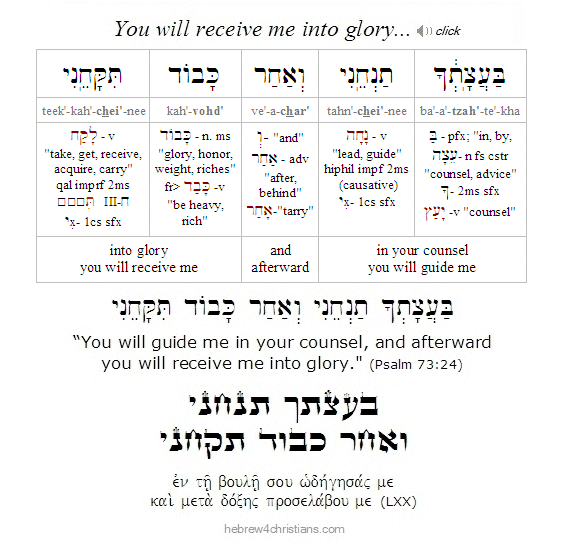 |
Noah and Yeshua...

[ The following entry concerns this week's Torah reading, parashat Noach... ]
10.27.22 (Cheshvan 2, 5783) The name "Noah" (i.e. Noach: נֹחַ) comes from the root nacham (נָחַם), meaning to comfort. Other Hebrew words that use this root include nichum (compassion), nuach (rest), and menuchah (rest from work). Noach's very name foreshadowed the coming of Yeshua. His father Lamech (meaning "powerful one") regarded Noach as a deliverer who would comfort us from the ravages of the curse (Gen. 3). In like manner it was prophesied that Yeshua would give us everlasting rest: "His rest shall be glorious" (Isa. 11:10), and He offers rest to the weary (Matt. 11:28, Heb. 4:9). His sacrifice on the Cross at Moriah undoes the kelalah (curse) over the children of Adam. Indeed, His life, sacrifice, and resurrection was like a "magic spell" that "spoke backwards" the sin of the "First Adam" - and by means of His deliverance the power of the curse was forever broken (Gal. 3:13, John 3:14, 2 Tim.1:10; Heb. 2:14; Heb. 9:27-28; 1 John 3:8, Rev. 22:3). By means of His Spirit we are given an everlasting comfort (John 14:16).
In the days of Noach "all flesh had corrupted his way upon the earth" (Gen. 6:5, 11), but Noach "found grace in the eyes of the Lord" (Gen. 6:8). This is yet another foreshadowing of the Father's choice of Yeshua as the uniquely Righteous Deliverer of the world (Matt. 3:17). Noach was from the godly line of Seth of whom would descend the Promised Seed of the Woman (see the Gospel in the Garden and the Seed of Abraham). Of Noach it was said that he was ish tzaddik (a righteous man) who was tamim (blameless) in his generation: Et-haElohim hithalekh-noach - "Noah walked with God" (Gen. 6:9). Likewise Yeshua was entirely tzaddik (Rom. 5:19, Heb. 4:15, 1 Pet. 3:18; 1 John 2:1), blameless (Heb. 4:15, 1 Pet. 3:18), and One who walked with God (John 5:19, John 8:28, etc.). For this reason the New Testament calls Noah a "herald of righteousness" (2 Pet. 2:5).
Just as Noach's obedience to God saved a remnant from all the earth, so did Yeshua's obedience result in "the saving of his house" (Heb. 11:7). And just as God "blessed Noach and his sons" (Gen. 9:1) and with them established His covenant, so in greater measure was this fulfilled in the Person of Yeshua, who provides all spiritual blessings to those whom He calls his brethren (Eph. 1:3, Heb. 13:20; Heb 2:11). Yeshua is indeed the "righteous man" who saves us in the true teivah (ark), the shelter of God's grace.
"Everyone then who hears these words of mine and does them will be like a wise man who built his house on the rock. And the rain fell, and the floods came, and the winds blew and beat on that house, but it did not fall, because it had been founded on the rock. And everyone who hears these words of mine and does not do them will be like a foolish man who built his house on the sand. And the rain fell, and the floods came, and the winds blew and beat against that house, and it fell, and great was the fall of it." - Yeshua (Matthew. 7:24-27)
Noach's teivah ("ark") had God Himself as its designer (Gen. 6:15f), and salvation in Yeshua is by God's design (Jonah 2:9; Eph. 1:9, 1:11). Noach's ark contained only one door (Gen. 6:16), just as Yeshua is the only door to salvation (John 10:9). Noach's ark contained three levels (Gen. 6:16) and salvation has three own experiential levels (2 Cor. 1:10): past, present, and future. In the past (at Moriah) Yeshua delivered us from the penalty of sin; in the present, He is delivering us from the power of sin; and in the future He will deliver us from the very presence of sin. From Noach's hand was given the sign of the dove, a symbol of peace and the abiding presence of the Spirit of God.
Hebrew Lesson:
Isaiah 40:1 reading (click):
The Greatness of Noah...
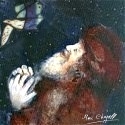
[ The following is related to our Torah reading for this week, parashat Noach... ]
10.26.22 (Cheshvan 1, 5783) The Torah describes Noah as אִישׁ צַדִּיק / ish tzaddik: "a righteous man," who was "blameless in his generation" (תָּמִים הָיָה בְּדרתָיו), and a man who "walked with God" (אֶת־הָאֱלהִים הִתְהַלֶּךְ־נחַ). Noach matza chen be'einei Adonai: "Noah found grace in the eyes of the LORD" (Gen. 6:8).
Moreover the New Testament affirms Noah's greatness as a tzaddik: "By faith Noah, when he was warned about things not yet seen, with reverent regard constructed an ark for the deliverance of his family. Through faith he condemned the world and became an heir of the righteousness that comes by faith" (Heb. 11:7). Noah is called a "preacher of righteousness" (δικαιοσύνης κήρυκα) who faithfully completed the incredible task of constructing an enormous place of refuge to deliver life from God's judgment (2 Pet. 2:5).
The "ark" (i.e., teivah: תֵּבָה) that Noah built was not a ship that had a rudder but rather a box-shaped vessel designed simply to rise above the deluge of the flood (mabbul: מַבּוּל) to be carried up by God's providence. Spiritually understood, then, an "ark" represents a vessel completely surrendered to God's care, and the "Torah of the Ark" (תּוֹרַת הַתֵּבָה) teaches that we must cast ourselves upon the waters of the Father's great mercy (אֲבִי הָרַחֲמִים) and completely trust that He will guide our passage through the storms of this life (1 Pet. 5:7). It is a great example of faith in God during these days of "Covid" and political unrest...
Noah trusted in the unseen love and care of his Heavenly Father, despite circumstances that were incomprehensibly dreadful... Like all the other tzaddikim, Noah "walked by faith, not by sight" (2 Cor. 5:7) while looking forward to a "new heavens and earth" (2 Pet. 3:11-15). Yes, of course father Abraham was a marvelous tzaddik who was greatly tested when he offered his beloved son of promise during the Akedah, trusting in the LORD's heart and good will to rectify all things, but we should not underestimate the greatness of Noah's faith, as he labored for over 100 years building the ark without any physical evidence that the great cataclysm would come. Moreover, it would do well for the rabbis to celebrate Noah's example and to remember that Abraham himself owes his life to Noah's obedience of faith, since Abraham is a direct descendant from him through his son Shem (Gen. 11:10-32).
The story of Noah reminds us that the great Day of the Lord (יוֹם־יְהוָה הַגָּדוֹל) will surely come (2 Pet. 3:10) and indeed is drawing near (Zeph. 1:14). Yeshua himself forewarned that the spiritual condition of the world would be one of anarchy and moral chaos wherein the wickedness of humanity would be great, and that "every design of the thoughts of people's minds would be full of evil continually" (Gen. 6:5). As in the days of Noah, in the midst of worldwide corruption, our Messiah will return in final judgment (Matt. 24:37-38; Luke 17:26-27). Maranatha - Even so, come Yeshua Adoneinu...
Hebrew Lesson:
Genesis 6:9b Hebrew reading (click):
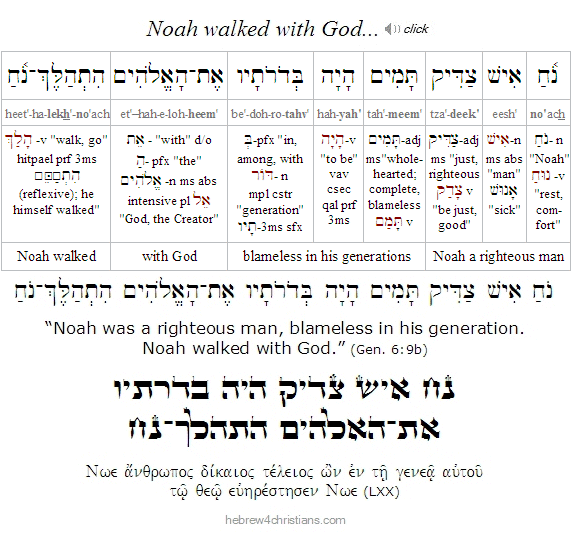 |
Note: For more information, see "The Greatness of Noah" article.
Light of the Conscience...

[ "For when the Gentiles, who have not the law, do by nature the things contained in the law, these, having not the law, are a law unto themselves: Which shows that the work of the law is written in their hearts, their conscience also bearing witness, and their thoughts either accusing or else excusing them..." - Rom. 2:14-15 ]
10.26.22 (Cheshvan 1, 5783) In the Torah we discover a special verse that identifies the struggle we all have with sin in our lives. It appears early in the book of Genesis concerning God's appeal to Adam and Eve's firstborn son Cain, who was envious of his brother Abel. When Cain was upset that God had "looked upon" (i.e., accepted) Abel's offering of a lamb but had overlooked his own offering of fruit, he was angry and became downcast. We then read: "So the LORD said to Cain, 'Why are you angry? and why is your face fallen? If you do well, will you not find acceptance? But if you do not do well, sin lurks at the door; its desire is for you, yet you must rule over it" (Gen. 4:6-7). Sadly Cain did not learn how to rule over the anger that lurked at the door of his heart, and later murdered his brother Abel...
And God makes the same appeal to each of us: "Why are you so angry? Why are you downcast? If you do well, will you not find acceptance? But if you do not do well, sin lurks at the door; its desire is for you, yet you must rule over it." Amen, we say, but how are we to understand this admonition? How can we learn to overrule sin within our own hearts?
Let's think this through a bit. First of all we know that sin is doing what is contrary to God's will (1 John 3:4), and we also know that God has endowed the soul with a "conscience" that convicts us when we do something wrong (Rom. 2:15). When we realize that we have sinned we feel down, or have a "fallen face" (פָּנִים נָפלוֹת). When we feel ashamed when we do something wrong, we should understand that this painful feeling is meant to correct us and turn us back to the good. The conscience is a great gift from heaven because it serves as an intuitive or inner guide that instructs us about what is right and what is wrong -- and how we should live our lives. Indeed, both the Hebrew word for "conscience" (i.e., matzpun: מַצְפוּן) and the word for "compass" (i.e., matzpen: מַצְפֵן) come the root idea of a hidden source of guidance (צפן) that will direct the way we should go. The Greek word for "conscience" used in the New Testament is "sun-eideisis" (συνείδησις), a word that means perceiving something in relation to a known standard of measurement, particularly knowing the rightness or wrongness of an action in light of God's moral law that is revealed within the heart (Rom. 2:15). Conscience is the awareness of moral truth; it is part of the image of God within us that is grounded in logic and reason. The Apostle Paul testified that he relied upon the "inner light" of conscience to guide his behavior: "And herein do I exercise myself, to have always a conscience void of offence toward God and toward men" (Acts 24:16). The conviction of the conscience bears witness to the spirit of truth (Rom. 9:1).
Conscience serves as an inner witness of the LORD God our Creator, who demands that we live as righteous people according to the direction (i.e., torah) of his moral authority. All people intuitively know they are morally accountable for what they do, but not everyone lives consciously before the divine Presence, in dialog with his or her conscience. Disregarding the voice of conscience is to disregard God, and conversely listening to its voice is to related to him. In this connection Kierkegaard said: "To have a conscience is to have a relationship in which you, as a single individual, relate yourself to yourself before God," by which he meant that our consciousness of moral reality, and our inner dialog within ourselves, is the mode by which we come to know ourselves before God.
When moral truth is suppressed or denied, however, or when conviction for sin is dismissed or ignored, a terrible thing begins to happen. The soul itself goes into exile and becomes deranged. If one good deed leads to another, so one sin leads to another, but a life of ongoing sin that is repeatedly denied or suppressed produces a spiritually lethal state wherein God may "give the soul over" to its godless desires and its chosen inner darkness. A "seared conscience" is one that is no longer able to detect the prompting of the inner voice of moral truth. Such a conscience is "cauterized" and made dead to the truth.
Tragically we see the effect of a seared conscience in our world every day. Hatred, rage, acts of murder; mass shootings, sexual perversion and violence, addictions, obsessions, and so on, are all prevalent in a godless world that has lost its ability to know what is right and what is wrong. The ongoing deception of political, educational, scientific, and other leaders inevitablly evokes divine judgment on cultures that do not promote godly virtue. It is hardheartedness and inner depravity that seeks to justify the extinguishment of shame at the price of honesty and truth... The Bible warns us of false teachers who are mouthpieces of evil, and the world system is filled with such teachers who suppress the truth for the violence of the lie. Think of the deceptive mass media and its systematic practice of disseminating lies...
Sin "lurks at the door" waiting for the heart to open to its lying seductions. In Jewish thinking, the inner urge to sin, what Christians sometimes call the "sin nature," is personified as an alien force that desires access to your soul. This evil impulse to do what is wrong is called the "yetzer ha'ra" (יֵצֶר הַרַע), or the imagination of evil. The sages came up with the term as they discussed the phrase "the imagination of the heart of man [is] evil" (יֵצֶר לֵב הָאָדָם רַע) during Noah's generation (Gen. 6:5, Gen. 8:21). The phrase "yetzer lev" refers to the urge the imagination uses to incline the will, whether to do good or to do bad. For instance, yetzer lev can refer to both the imaginative urge of a potter before he forms a vessel, or it can refer to the form of a graven image or idol. The Jewish concept of yetzer ha'ra is often thought to be a weakness of the soul that is liable to the urge to do something evil. This is similar to Christian thinking regarding our inherited "sin nature," or the indwelling desire to sin that is the result of our guilt and shame. In the New Testament, however, we read that the devil walks about as a roaring lion, seeking to "devour" human souls (1 Pet. 5:8), and this picture goes beyond the idea that evil is the result of fallen sinful nature alone. Recall that our verse reads: "sin lurks at the door; its desire is for you, yet you must rule over it," and this personification suggests that there exists an alien force that seeks access to the human heart in order to entice its sinful nature in contempt of God's moral law. "It's desire is for you" can also be read as "his desire is for you" (אֵלֶיךָ תְּשׁוּקָתוֹ), and that is what the devil does, after all: he "devours souls" -- he hungers for them to join him in his lost estate of perdition...
The Lord promises us victory over our own inclination to sin as well as the outright temptations of the devil if we will sincerely yield to him: "Submit yourselves therefore to God. Resist the devil, and he will flee from you. Draw nigh to God, and he will draw nigh to you" (James 4:7-8). Put on the armor of God (Eph. 6:11-18). "No temptation has overtaken you that is not common to man, but God is faithful, who will not permit you to be tempted above what you are able to bear; but will with the temptation also make a way to escape (τὴν ἔκβασιν), that you may have strength (i.e., δύναμις) to endure it" (1 Cor. 10:13).
If a "seared conscience" is one that is unfeeling and dead to moral truth, a godly conscience is one that is tender, sensitized, and fully alive to moral reality. We can learn to heighten our awareness of moral truth by means of the study of Scripture, as it says "All Scripture is given by the breath of God (i.e.,θεόπνευστος) and is profitable for teaching, for conviction, for correction, and for instruction in righteousness" (2 Tim 3:16). Of course Yeshua is our Lord, our Master and our guide, and therefore we should study his words about the righteousness of the law, the rule of the kingdom, our duty to practice works of love, and so on. The traditional study of Jewish ethics, called "musar," can also provoke us think about how to live our lives as tzaddikim, or righteous people (Psalm 1:1-3).
The Hebrew word "chinukh" (חִנּוּךְ), "education," shares the same root as the word "chanukah" (חֲנֻכָּה), meaning "dedication." Unlike the Greek view that regards education as a pragmatic process of improving one's personal power or happiness, the Jewish idea implies dedication to God and the willingness to be partners with Him on the earth. Disciples of Yeshua are therefore called "talmidim" (תַּלְמִידִים) -- a word that comes from "lamad" (לָמַד) meaning "to learn" (the Hebrew word for teacher is "melamad" (מְלַמֵּד) from the same root). In the New Testament, the word "disciple" is μαθητής, a learner or a pupil of a διδάσκαλος, or a teacher. I mention all this because true education is foundational to being a disciple of the Messiah, and moral education is a large part of that education.
Let us go back to where we started: "If you do well, will you not find acceptance?" The Hebrew for "do well" here (i.e., yahtav: יָטַב) means to be glad or joyful, to have inner peace and confidence because our conscience attests that we are approved of God. We will then find "acceptance," or she'eit (שְׂאֵת), a word that comes from the verb "nasa" (נָשָׂא) meaning to be lifted up or elevated. When we honor God's truth, we will experience true self-acceptance because God himself will lift up our hearts. And that is the source of our power to withstand temptations of sin, namely knowing that God has accepted us and gives us his shalom. We turn to God and know him as the "friend of sinners" who loves us with everlasting love...
O precious Lord, "cause me to me hear your lovingkindness in the morning, for in You do I trust; cause me to know the way I should go, for I lift up my soul to you." Amen.
Hebrew Lesson
Psalm 143:8 Hebrew reading (click):
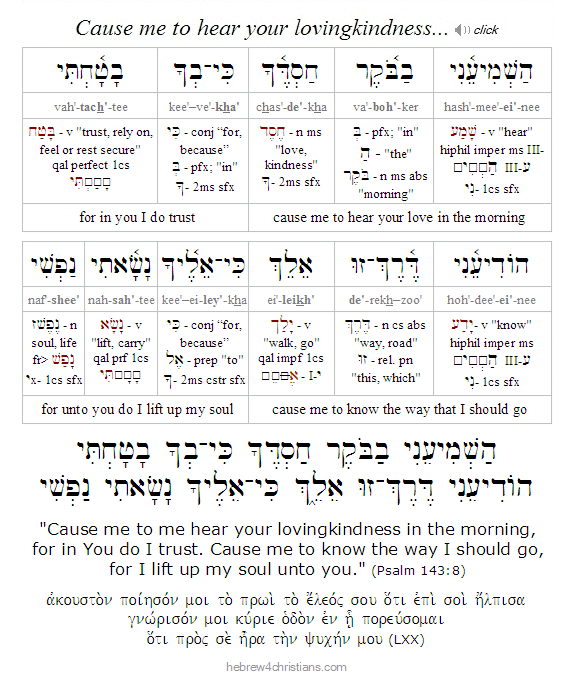 |
Breath of your Life...
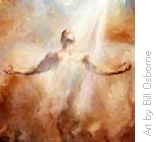
10.25.22 (Tishri 30, 5783) "And the LORD God formed man of the dust of the ground, and he breathed into his nostrils the breath of life (i.e., nishmat chayim: נִשְׁמַת חַיִּים); and man became a living being" (Gen. 2:7). We learn from this verse that man's neshamah (soul) comes from the very breath of God. Just as the body returns to dust, so the neshamah returns to God. The neshamah - not the body - is what is essential to our being, and that is why the sages regard the day of one's death as better than the day of one's birth (Eccl. 7:1). The Apostle Paul also regarded the godly discipline of the soul to be of greater value than discipline of the body: "For bodily exercise profits a little, but godliness (i.e., chassidut: חֲסִידוּת) is profitable for all things, having promise of the life that now is and of that which is to come" (1 Tim. 4:8).
The 613 commandments of the Torah are distilled to the principle: "A righteous person finds life through faith" (Hab. 2:4), which means that education of our soul in matters of faith is the essential task of our life in this world, and indeed, it is education for eternity!
Hebrew Lesson
Prov. 4:23 Hebrew reading (click):
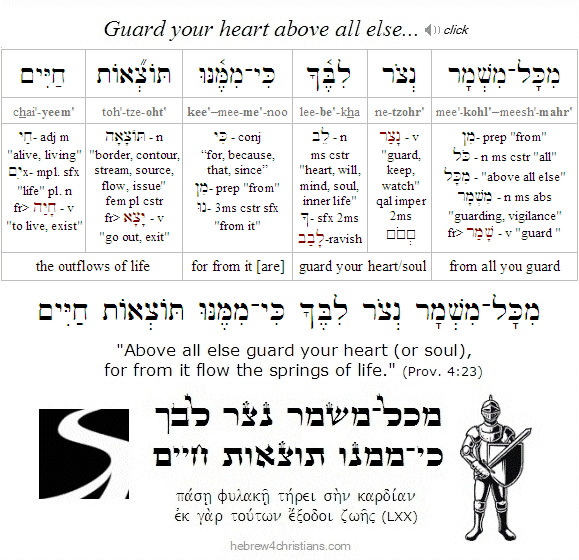 |
Personal Update: Please remember this ministry in your prayers, friends. It has been a sore battle the last few years, and it is challenging to keep the momentum going. I take comfort that the Lord sees and knows what we are up against, though I appeal for prayers that this ministry will persevere, according to God's will. Thank you and shalom.
The Secret Blessing...
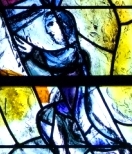
[ "We know that if God should put to the test our faithfulness to him, we know well that at the moment of testing, he himself must hold on to us, that is, we know that at bottom we are unfaithful, and that every instant it is he who at bottom holds us." - Kierkegaard ]
10.25.22 (Tishri 30, 5783) "But you, when you pray, go into your room, and when you have shut your door, pray to your Father who is in the secret place; and your Father who sees in secret will reward you openly" (Matt. 6:6). Yeshua did not want outward shows of spirituality or religion (Matt. 15:8; Luke 18:10-14). The rabbis called for public displays of repetitive prayers, but Yeshua taught that true prayer is a matter of intimate passion within the heart, and that the most powerful intercessions were made with ruach ha'koshesh - "groanings that cannot be uttered"(Rom. 8:26). Instead of reciting prayers for the sake of ceremony or man's approval, he instructed us to pray "secretly" to our Father who "sees in secret" (ὁ βλέπων ἐν τῷ κρυπτῷ). Indeed, Yeshua taught that the LORD is "τῷ ἐν τῷ κρυπτῷ," the one who is in the secret place, that is, hidden from outward forms, and that is why he himself came to the world in disguise (Isa. 53:2). Since there is no merit in begging God for help, the Father rewards those who pray in their brokenness and poverty of heart, and his reward is revealed divine grace expressed openly - "ἐν τῷ φανερῷ" - unhidden to heart of faith (Deut. 29:29; Dan. 2:22). God rewards those who believe and seek Him (Heb. 11:6). "He who dwells in the secret place of the Most High shall abide under the shadow of the Almighty" (Psalm 91:1).
Ἐν τῷ κρυπτῷ - God both is, and sees, "in secret." He is in secret because he dwells in unapproachable light, whom no one has ever seen or can see" (1 Tim. 6:16), and yet he calls us to believe in the light, to walk in the light, and to be children of light (John 12:36; 1 John 1:7). We see the light in the teaching of Yeshua, by means of the Holy Spirit, though we see through a glass darkly, by analogy and riddle (1 Cor. 13:12). Some things are clear to us in this life, but much awaits to be revealed (1 John 3:2). "I have many more things to say to you, but you cannot bear them now" (John 16:12), though the Holy Spirit will give enough illumination for us to know the truth that sets our hearts free (John 16:13). "The secret of the LORD is for those who fear him, and he will show them his covenant" (Psalm 25:14).
But why does God hide this way? And why does he attend to that which is hidden or concealed (Heb. 4:13). The eye of faith sees the "invisible" things, the unseen blessing that lies behind the phenomenal realm of existence (Heb. 11:27). As Blaise Pascal said, "there is enough light for those who want to believe, and enough shadows to blind those who don't." In this present world, God "hides" so that people may seek him, for once he openly reveals his Presence, there is no longer the issue of faith (Rom. 8:24). This is part of the "mysteries of the kingdom" (τὰ μυστήρια τῆς βασιλείας), after all (Matt. 13:10-15) which presents a "two-tiered" reality, the heavenly realm of God's Presence, and the earthly realm of transience. Upon reflection we may sometimes feel lonely and bewildered in this duality, not knowing how to "mediate" or bring together the opposite poles of our experience... On the one hand life in this present world is fading away, and finitude, dissolution, and the "dust of death" seem omnipresent to our physical senses, nevertheless our hearts yearn for eternity, for unending life, and God's presence and the manifestation of everlasting significance. We long for meaning, wonder, greatness, and the peace of unconditional love, yet we find ourselves trapped within a diseased and moribund world that is filled with thwarted dreams, painful losses, harrowing vexations, and death... We hunger and thirst for real life, for salvation from our misery, but the cosmological visions of mechanistic science reveal an immense emptiness that has no goal or end, no explanation for its existence, and therefore no meaning or real hope.
God hides so that we will seek him (Jer. 29:13). This seeking involves all our heart, since we will not seek God until we understand the inner crisis. It is not enough to know right words of theology, since we must learn to think the right way, and this comes at the cost of struggle, wrestling, and testing. We cannot rely on reason alone to guide us, for that relegates beauty, mystery, and hope into oblivion; nor can we dismiss reason, for then faith becomes absurd and ridiculous. We must find a delicate balance: "faith seeking understanding," knowing when it is right to question, to doubt, and to analyze, and when it is right to affirm, to submit, and to surrender. Reason is a servant of something more fundamental, namely the heart or the will; it is activated at the stir of the soul's desire.
Hebrew Lesson
Psalm 19:12 reading (click):
Seeing the yet-unseen...

[ The following entry concerns this week's Torah reading, parashat Noach... ]
10.25.22 (Tishri 30, 5783) Just as Noah foresaw the great cataclysm to come, so we are to understand that the world above our heads and under our feet is destined to destruction, as we likewise await the promised world to come: "Lift up your eyes to the heavens, and look at the earth beneath; for the heavens vanish like smoke, the earth will wear out like a garment, and they who dwell in it will die in like manner; but my salvation will be forever (וישׁוּעָתִי לְעוֹלָם תִּהְיֶה), and my righteousness will never be dismayed" (Isa. 51:6).
This idea is repeated in the New Testament: "For as were the days of Noah, so will be the coming of the Son of Man" (Matt. 24:37). "But the Day of the LORD will come like a thief, and then the heavens will pass away with a roar, and the heavenly bodies will be burned up and dissolved, and the earth and the works that are done on it will be exposed. Since all these things are thus to be dissolved, what sort of people ought you to be in lives of holiness and godliness, waiting for and hastening the coming of the Day of God, because of which the heavens will be set on fire and dissolved, and the heavenly bodies will melt as they burn? But according to his promise we are waiting for new heavens and a new earth in which righteousness dwells. Therefore, beloved, since you are waiting for these, be diligent to be found by him without spot or blemish and at peace" (2 Pet. 3:10-14).
In light of all this, we look not to the things that are seen but to the things that are unseen. "For the things that are seen are transient, but the things that are unseen are eternal... For the invisible things of Him from the creation of the world are clearly seen, being understood by the things that are made, even his eternal power and Godhead. Therefore we are strangers and exiles on the earth, looking forward to the city that has foundations, whose designer and builder is God" (2 Cor. 4:18; Rom. 1:20; Heb. 11:10,13).
Faith sees the unseen; it reckons and thereby apprehends God's promise as a present reality. Our father Abraham was promised descendants as numerous as the stars in the sky or sand on the seashore, despite the fact that he was an old man and his wife had long past the age of bearing children. Abraham believed in the One who gives life to the dead and - καλοῦντος τὰ μὴ ὄντα ὡς ὄντα - "calls into existence the things that do not exist as existing" (Rom. 4:17). "He staggered not at the promise of God through unbelief but was strong in faith, giving glory to God; and being fully persuaded that, what He had promised, He was able also to perform: And therefore it was imputed to him for righteousness" (Rom. 4:19-22).
Hebrew Lesson:
Genesis 15:6 reading (click):
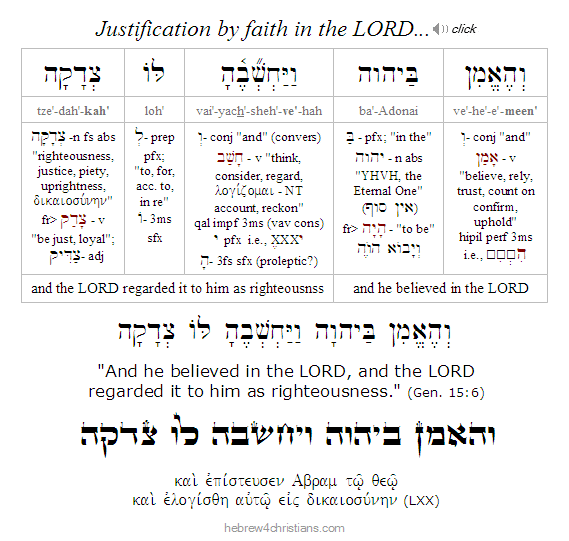 |
Be Anxious for Nothing...

10.25.22 (Tishri 30, 5783) If you are anxious over the latest rumor (or outrage) of the day, remind yourself that there is far more to life than what's going on in this world... "Look up into the heavens. Who created all the stars? He brings them out like an army, one after another, calling each by its name" (Isa. 40:26). The invisible things of Him are "clearly seen" by the eye of faith (Rom. 1:20; Psalm 19:1). Therefore let us refuse to agree with this world's way of seeing and its darkened visions; let us abandon the godless news of this age; and let us take every thought captive to the truth of Messiah. As it says in our Scriptures: "Do not be conformed to this world, but be transformed by the renewal of your mind, that by testing you may discern what is the will of God, what is good and acceptable and perfect" (Rom. 12:2).
Hebrew Lesson:
Psalm 146:8 Hebrew reading (click):
Midst of the Whirlwind...
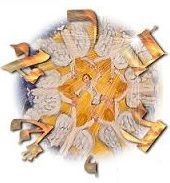
[ "When I look deeply at the world I see a vast desert. People are like trees, yet the only one I really see is the Proprietor of all, the Almighty Himself" - Simcha Bunim ]
10.24.22 (Tishri 29, 5783) For reasons not explicitly explained in Scripture, God chose to begin creating the world in apparent chaos: תֹהוּ וָבֹהוּ וְחֹשֶׁךְ עַל־פְּנֵי תְהוֹם / tohu va'vohu ve'choshekh al-penei te'hohm: "formlessness and emptiness and darkness was upon the face of the deep" (Gen. 1:2). The Torah commentator Rashi here notes that the word tohu (תֹהוּ) signifies amazement, for a person would be utterly astonished were he present at that moment, whereas the word bohu (בֹּהוּ) signifies the inconceivable void surrounding the face of the watery depths. But note that the Spirit of God (רוּחַ אֱלֹהִים) was hovering over the depths: "The throne of Divine Glory was standing in space, hovering over the face of the waters by the breath of the mouth the Holy One, blessed be He, and by His command, even as a dove hovers over its nest" (Rashi). From such mystery and darkness God speaks and calls forth divine light, the first of all God's creations evoked by the Word of God (דְּבַר אֱלֹהִים). "And God said: יְהִי אוֹר וַיְהִי־אוֹר - yehi ohr, vayhi-ohr -"Let there be light, and there was light" (Gen. 1:3). God's handiwork in creation, then, first involved demonstrating His creation and mastery of the primordial and elemental forces: earth, water, wind, and light.
One thing we note from these dramatic opening words of Torah is that God our blessed Creator (הַיוֹצֵר הַמְּבוֹרַךְ שֶׁלָנוּ), speaks from the midst of inscrutable winds (סְעָרָה, "tempest"), demonstrating that He is the Sovereign over the seemingly chaotic world (Job 40:6, John 3:8). "Greek-minded" theology is often more comfortable with the idea of "Apollo" (the pagan ideal of harmony and order) than the apparently obscure and inexplicable ways of the LORD God of Israel. The rational mind wants some sort of "systematic theology" so that God may be explained in an orderly and logical way. The idea of mystery and equivocal language is considered problematic. There is danger here that we forget that God is called Esh Okhlah (אֵשׁ אכְלָה), a "consuming Fire" (Deut. 4:24, Heb. 12:29). His thoughts are not our thoughts, neither are His ways our ways (Isa. 55:8-9). As the prophet Isaiah also said: "I form light and create darkness (יוֹצֵר אוֹר וּבוֹרֵא חֹשֶׁךְ), I make peace and create woe (עֹשֶׂה שָׁלוֹם וּבוֹרֵא רָע); I the LORD do all these things (אֲנִי יְהוָה עֹשֶׂה כָל־אֵלֶּה)" (Isa. 45:7).
We live in fearful times, chaverim. People are afraid of losing their money, their health, their freedom, and so on. But we must be careful here. The fear of "losing control" can move us to anger, yet the sages liken anger to idolatry since it denies the providence of God in our lives (i.e., hashgacha partit: השגחה פרטית). Anger over the apparent chaos of life implies that we don't really believe (or accept) that God is in control -- that He is speaking "from the midst of the whirlwind" -- and therefore we feel aggrieved and even embittered by what might happen to us. We must look to God as the Master of the storms of life and draw closer to Him in trust. The Scriptures affirm that for those who love God "all things work together for good" -- even if the present hour seems incomprehensible and even dangerous (Rom. 8:28-39).
Yeshua warned us not to live in fear of man, but rather to live in awe of God (Matt. 10:28). The worst that man can do is "kill the body" but he has no real power over the soul... Tribulation - the "squeezing of grapes" - is part of the life of faith, but we are invited to come "boldly" before the Throne of Grace (παρρησίας τῷ θρόνῳ τῆς χάριτος) to find help for our lives (Heb. 4:16). Note that the word translated "boldly" in this verse (παρρησίας) means that we can speak freely to God from the center of the chaos of our own hearts -- without fear or shame. We don't need to conceal ourselves from the Divine Light, since this is the very Light that overmasters the "tohu va'vohu" chaos of creation! Those who accept that God is in complete control of their lives are set free from the terrible burdens of fear and outrage. Abiding in ahavah shlemah (אַהֲבָה שְׁלֵמָה, God's "perfect love") means that you can let go.
May God help us all remember: חֶרְדַּת אָדָם יִתֵּן מוֹקֵשׁ וּבוֹטֵחַ בַּיהוה יְשֻׂגָּב / "The fear of man lays a snare, but whoever trusts in the LORD will be made safe" (Prov. 29:25). Note that this "fear of man" is not just the fear of external dangers but more deeply is the fear we embrace within our hearts - our own insecurity that undermines our faith.... May the LORD help us abide in His perfect love, free from the ravages of fear, anger, and anxiety. Amen.
Hebrew Lesson:
Prov. 29:25 reading (click):
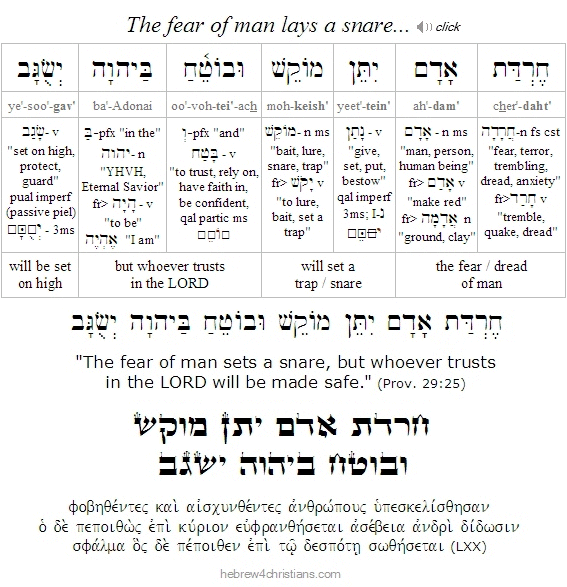 |
Stages of Judgment...

[ The following entry concerns this week's Torah reading, parashat Noach... ]
10.24.22 (Tishri 29, 5783) Some of the sages have said that God's judgment comes in stages. The Great Flood was preceded by four successive generations of prophets that warned of the coming cataclysmic judgment: Enoch, Methuselah, Lamech, and finally Noah. It is fascinating to understand that Adam himself was alive when Noah's grandfather Methuselah was born, so the original message of teshuvah (repentance) was an echo that came from Eden itself; moreover, consider that Abraham personally knew of Noah (Abraham was 58 years old when Noah died), and undoubtedly Noah's son Shem told him of his grandfather Lamech, who had seen and spoken with Adam himself - the man who was directly created by God alone. Later, Abraham's son Isaac also came to know Shem, Noah's firstborn son, and the legacy of the "gospel of the garden" was thereby passed on...
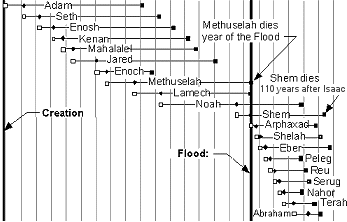 |
The first stage of judgment occurred when people disregarded the inherent dignity of others created in the image and likeness of God. This negation of the divine characteristics of people (i.e., the image of God) led to sexual promiscuity that became rampant upon the earth: "The sons of God saw the daughters of man that they were fair, and they took for themselves wives, whomsoever they chose" (one midrash claims that the Dor HaMabul, the generation of the flood, would regularly exchange marital partners). God then gave mankind 120 years to repent from his sexual corruption or be faced with apocalyptic destruction (Gen. 6:3). Despite Noah's 120 year public building project and the preaching of his grandfather Methuselah, God's patience finally ran out (1 Pet. 3:20). God then "saw that the wickedness of man was great in the earth and that every imagination of the thoughts of his heart was only evil continually" (Gen. 6:5). Mankind refused to repent and turn to God....
There is a tragic progression at work here. The practice of "casual" acts of lawlessness eventually led to the acceptance and practice of sexual promiscuity. This, in turn, resulted in the loss of mankind's sanctity (kedushah), since this comes from man's ability to subordinate his instinctual/emotional desires to his intellectual/spiritual life. Genuine sanctity refuses to exploit others as means to an end. Disregarding this truth cheapens and impairs the sense of self, causing disintegration of the spiritual life. As humanity became more and more fractured and stupefied, God's "like for like" judgment resulted in "giving them over" (paradidomi) to the lusts of their hearts (Rom. 1:26). (In our culture of unbridled pornographic expression and sexual immorality, we mirror such an antediluvian world view. Indeed, it is a mark of our age to be enamored with "degrading passions," with gender confusion and regularly practiced idolatry (i.e., fornication, adultery, homosexual relationships, and so on)). The final verdict of this practiced chamas (lawlessness) was the bestowal of a "depraved mind" (αδοκιμον νουν), a condition of being unable to reason properly at all. Since truth is essentially grounded in a sense of value, and value is a function of conscience, a depraved mind is literally insane from a spiritual perspective... People who are devoid of conscience are unable to reason along the lines of ethical truth at all. This promoted a cultural collusion to suppress the truth, to silence the truth-tellers, to kill the prophets, and to gag advocates for justice. Lawlessness squelches the inward voice of right and wrong within the human heart.
Hebrew Lesson:
Psalm 14:3 Hebrew reading (click):
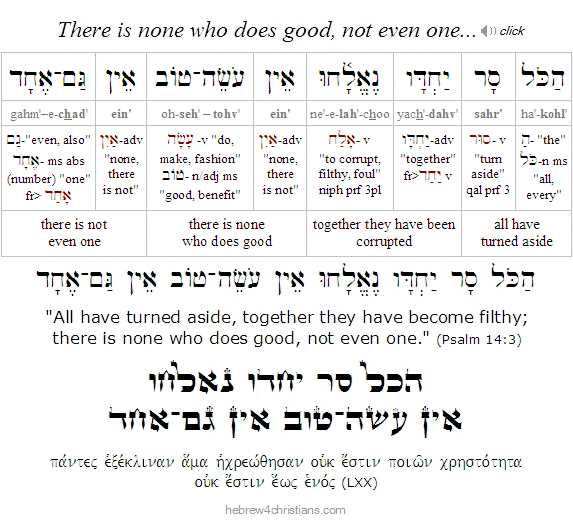 |
Enduring to the End...
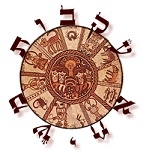
10.23.22 (Tishri 28, 5783) Shalom friends. Our Lord foretold that in the "end of days" there would be perilous times -- moral, political, ethnic, and spiritual chaos throughout the world, "as it was in the days of Noah." Of Noah's generation the Torah says: "The LORD saw that the wickedness of humanity was great in the earth, and that every intention of the thoughts of his heart was only evil continually, so that it grieved the LORD to his heart" (Gen. 6:5-6). Indeed, Paul's description of the character of people before the time of the end is chillingly accurate of our present generation (see 2 Tim. 3:1-7).
With the increasing rise of anarchy and lawlessness throughout the nations, the Scriptures further foretell the rise of a governmental system that would oppress and subjugate the entire world, using surveillance systems and devices to control every aspect of life, so that no one would be able to buy or sell without being tagged as an compliant member of the system. Once a global (cashless) currency system has been established, the prophesied "man of sin" would then arise to embody the presence of Satan on the earth, in mimicry of the advent of the true Messiah.
At first this "man of sin" (איש החטא) will seem to be a man of peace but after his reign is secured, he will reveal his malice by persecuting those who still believe in the one true God, causing great tribulation, especially for the Jewish people. The rise of this "Messiah of Evil" or the "anti-Christ" will be in accordance with the great vision of the prophet Daniel, wherein the final "week" of "seventy weeks of years" is fulfilled...
Presently we are living in the "gap" between the 69th week and the 70th week of years, but we see signs that the gap is now closing, and soon the world will enter into the "tribulation" period... As things get closer to the time of great judgment (יום יהוה), followers of Messiah will be forcefully removed by God's hand (i.e., raptured) either before the tribulation proper begins ("pre-trib"), or perhaps just before the Great Tribulation period ("mid-trib"), the later view being argued because followers of Yeshua will see the advent of the man of sin (2 Thess. 2:3-4). Either way, however, God has not appointed his followers to undergo the unleashing of his wrath upon the world system during the last half of the seventieth week (1 Thess. 5:9), so "post-trib is not a sound eschatological option. The rapture will occur as we are gathered together with the LORD to meet him in the air (1 Thess. 4:16-17).
The 70th week of the vision will begin when the "man of sin" appears to make a "covenant" with the people of the world, though he will later set up an "abomination" and force all world citizens to bow down to its image (perhaps similar to Nebuchadnezzar's insanity to force people to bow down before the golden image of himself; at this time the rapture of followers of Messiah may occur). Like Daniel's three friends who refused to bow down before the image, many will refuse to comply and outright worldwide persecution of the Jewish people will take place. This is called the "time of Jacob's trouble" and the "Great Tribulation." Satan will rule only "until the end that is decreed is poured out on him" and then the great Day of LORD will seal his doom with the second coming of Yeshua (as described in Rev. 19:11-21).
So, in light of this (very brief) sketch of what is coming -- and as the world system becomes more and more tyrannical as it prepares for the arrival of the "messiah of evil" -- how are you walking out your faith? Spiritual warfare is not an option for the life of a follower of Yeshua. How are you keeping free of fear or anger? How are you preparing for the days ahead?
Remember that the evil one "lives to devour souls," as it is written: "Be sober-minded; be watchful. Your adversary the devil prowls around like a roaring lion, seeking someone to devour" (1 Pet. 5:8). The apostle Paul lists the panoply of armor required for our struggle: "Put on the whole armor of God, that you may be able to stand against the schemes of the devil. For we do not wrestle against flesh and blood, but against the rulers, against the authorities, against the cosmic powers over this present darkness, against the spiritual forces of evil in the heavenly places. Therefore take up the whole armor of God, that you may be able to withstand in the evil day, and having done all, to stand firm. Stand therefore, having fastened on the belt of truth, and having put on the breastplate of righteousness, and, as shoes for your feet, having put on the readiness given by the gospel of peace. In all circumstances take up the shield of faith, with which you can extinguish all the flaming darts of the evil one; and take the helmet of salvation, and the sword of the Spirit, which is the word of God, praying at all times in the Spirit, with all prayer and supplication" (Eph. 6:11-18).
James the Righteous gives us remedy by saying: "Submit yourselves therefore to God. Resist the devil, and he will flee from you" (James 4:7).
We are to walk "in truthful speech, and the power of God; with the weapons of righteousness for the right hand and for the left" (2 Cor. 6:7). Let us wear the armor of light (ὰ ὅπλα τοῦ φωτός), being sober (i.e., νήφω, "calm and of sound mind") putting on the breastplate of faith and love; and for an helmet, the hope of salvation" (1 Thess. 5:8). "Therefore, preparing your minds for action, and being sober-minded, set your hope fully on the grace that will be brought to you at the revelation of Yeshua the Messiah" (1 Pet. 1:13).
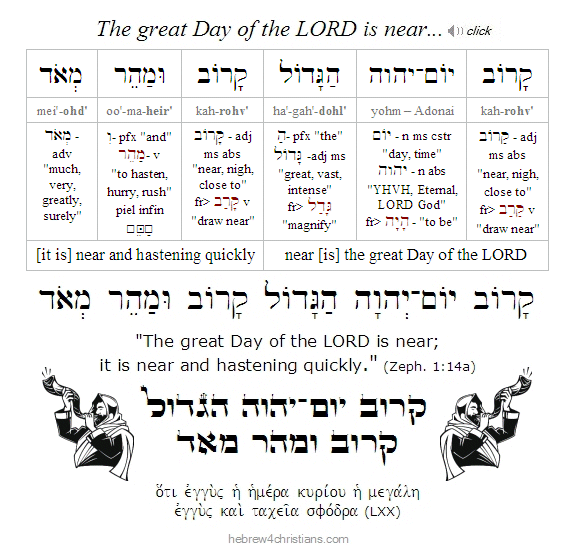 |
The Month of Cheshvan....
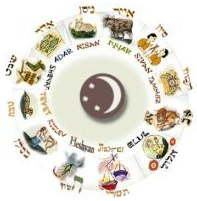
10.23.22 (Tishri 28, 5783) On the Biblical calendar, the month of Cheshvan (חֶשְׁוָן) immediately follows the "holiday month" of Tishri, and begins Monday, October 24th (at sundown) this year. The Torah records that God brought down the Great Flood that destroyed the world on Cheshvan 17 (Gen. 7:10-11), which lasted until Cheshvan 27 of the following year (Rashi notes that the 11-day discrepancy between the 17th and 27th represents the 11-day difference between the solar and lunar calendar year). Because Noah's Flood began and ended during this month, Cheshvan is generally regarded as "mar" (bitter) and a time of judgment, especially regarding water (rain). Cheshvan always has a two-day Rosh Chodesh. Because rain is central to the health of the spring crops, on the 17th of the month those living in Israel begin requesting rain by adding ve'tein tal u'matar librakha ("and grant dew and rain for blessing") to the Amidah prayer.
יְהִי רָצוֹן מִלְּפָנֵיךָ יהוה אֱלהֵינוּ
וֵאלהֵי אֲבוֹתֵינוּ שֶׁתְּחַדֵּשׁ עָלֵינוּ חדֶשׁ טוֹב
בַּאֲדנֵינוּ יֵשׁוּעַ הַמָּשִׁיחַ אָמֵן
ye·hee · rah·tzohn · meel·fah·ney·kha · Adonai · E·loh·hey·noo
vei·loh·hey · a·voh·tey·noo · she·te·kha·deish · ah·ley·noo · khoh·desh· tohv
ba'a·doh·ney·noo · Ye·shoo·a' · ha·mah·shee·akh · ah·mein

"May it be Your will, LORD our God and God of our fathers,
that you renew for us a good month in our Lord Yeshua the Messiah. Amen."

Download Study Card
Parashat Noach (פרשת נח)

10.23.22 (Tishri 28, 5783) Last week's Torah portion (Bereshit) showed how the mutiny of Adam and Eve caused humanity to plunge into idolatrous chaos. The subsequent generations lost sight of the LORD and became progressively steeped in moral anarchy and bloodlust, so that "every intention of the thoughts of man's heart was only evil continually" (Gen. 6:5). After just nine generations, the LORD had grown so weary of humanity that he "regretted" (i.e., yinchem: יִּנָּחֶם) creating man and "his heart was grieved" (Gen. 6:6). However, God recognized Noach (from the godly line of Seth) as a tzaddik (צַדִּיק), a righteous man of faith, and graciously made provision to save him from the wrath to come....
Noah's father Lamech (לֶמֶךְ, "powerful one") regarded his son as a deliverer who would comfort humanity from the ravages of the original curse. Noach would give rest (נוּחַ) from the toil and vexation of life (Gen. 5:29). Symbolically Noah was a "type" of the Savior to come who would rebirth the world by giving lasting comfort and rest (for more on this, see "Noah and Jesus"). In like manner it was prophesied that Yeshua would give us everlasting rest: "His rest shall be glorious" (Isa. 11:10), just as He offers rest to the weary (Matt. 11:28, Heb. 4:9). His sacrifice on the Cross at Moriah undoes the kelalah (curse of work) over the children of Adam. Indeed, His life, sacrifice, and resurrection was like a "magic spell" that "spoke backwards" the sin of the "First Adam" - and by means of His deliverance the power of the curse is forever broken (see Gal. 3:13, John 3:14, 2 Tim.1:10; Heb. 2:14; Heb. 9:27-28; 1 John 3:8, Rev. 22:3). Yeshua is Adam ha-Sheni (האדם השני) - the "Second Adam" - the promised Son of Man. By means of His Spirit we are given an everlasting comfort (John 14:16).
Eschatologically, the "days of Noah" (יְמֵי נֹחַ) present a picture of the idolatrous conditions of the world that will prevail just before the calling up of the followers of Yeshua before the time of Great Tribulation upon the earth: "As were the days of Noah, so will be the coming of the Son of Man" (Matt. 24:37). The generation of the Flood was said to be "filled with violence" (i.e. chamas: חָמָס) caused by ignorance -- literally the "state of ignoring" moral and spiritual truth (Gen. 6:13). Because people willingly disregarded God from their midst, they arrogated to themselves divine prerogatives: אִישׁ הַיָּשָׁר בְּעֵינָיו יַעֲשֶׂה - "every man did what was right in his own eyes." The resulting moral corruption and anarchy led to divine and catastrophic judgment: the world returned to its primordial state of tohu va'vohu v'choshekh: "confusion and emptiness and darkness" (Gen. 1:2). Notice, however, that despite the godlessness and lawlessness that prevailed, the "days of Noah" were not marked by overt "tribulation," since people were eating and drinking, marrying and giving in marriage, until the day that Noah entered into the ark, "and they were unaware" (καὶ οὐκ ἔγνωσαν) until the flood came and swept them all away -- so will be the coming of the Son of Man (see Matt. 24:38-39). In other words, the "end of the world" judgment fell suddenly and took them by surprise...
The seven day warning given to Noah further suggests the seven year tribulation period to come (i.e., Daniel's 70th week), and also the supernatural gathering of the people of God who will be carried above the prophesied worldwide cataclysm. Just as God protected Israel during the time of judgment upon Egypt, so He will protect His people from the wrath of the "great Day of the LORD" (וֹם־יְהוָה הַגָּדוֹל). But please note that "the LORD shut him in" (Gen. 7:16). Noah's teivah (ark) had God Himself as its designer (Gen. 6:15), just as salvation in Messiah is exclsuively by God's design (Jonah 2:9; Eph. 1:9, 1:11). It contained only one door (Gen. 6:16), just as Yeshua is the only door to salvation (John 10:9; 14:6). Noah's ark contained three levels (Gen. 6:16) and salvation has three own experiential levels (2 Cor. 1:10): past, present, and future. In the past (at Moriah) Yeshua delivered us from the penalty of sin; in the present, He is delivering us from the power of sin; and in the future He will deliver us from the very presence of sin. Baruch Hashem - may that day come soon!
Hebrew Lesson:
Genesis 6:9b Hebrew reading (click):
Note: Secular scholars often scoff at the story of Noah and the great flood (המבול הגדול), suggesting it is a myth, but several ancient documents reveal striking parallels to the account given in the Torah (the most famous of these is the Babylonian "Gilgamesh Epic"). Moreover, sea archaeologists have discovered numerous ancient "submerged cities" throughout the world that lend credibility to the description found in this parashah.
Moreover, the Torah describes the "floodgates of the deep" that broke and overwhelmed the surface of the earth -- the "fountains of the depths" (מַעְיְנֹת תְּהוֹם רַבָּה) from underground oceans (Gen. 7:11) that today have been confirmed to exist.
The Blessing of Divine Rest...
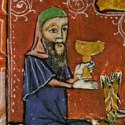
10.21.22 (Tishri 26, 5783) Our Torah reading for this week (Bereshit) includes the famous words recited every Friday night at the outset of the Kiddush ceremony: "Thus the heavens and the earth were finished, and all the host of them. And on the seventh day God completed his work which he had made; and he rested on the seventh day from all his work which he had done. And God blessed the seventh day, and called it holy, because on it God rested from all his work which He created and made" (Gen. 2:1-3).
The phrase "on the seventh day God completed his work" bothered the Torah commentator Rashi, since it says in another place that all the work of creation was completed during the first six days (Gen 1:31). Rashi then asks, "What was lacking at the end of the sixth day?" And he answers: menuchah (מְנוּחָה), a word that means "rest" (from a root [נוּחַ] that means to repose, comfort, etc.). In other words, God created rest as the consummation of the creative process. Rest is something more than the cessation of activity; it is a means of renewal and reconnecting with what is most important, namely, the goal, purpose, and reason for our lives. Instead of focusing on doing things ("work"), we focus on our being and what we mean before the eyes of heaven. And that is why we "sanctify" the Sabbath day -- to set it apart as a time we attune ourselves to God and to recover the meaning why he created us in this world.
The Sabbath is therefore not a time of passive rest but rather the climax of God's creation itself. It is a picture of heaven itself, the rest and blessing of eternal life. All creation is for the sake of Messiah, which is to say, is for the sake of our salvation and union with God given through him. When Yeshua cried out "It is finished!" he signified that the work for our salvation was complete. There is a therefore a "Sabbath rest" for the people of God, for those who have entered His rest have also ceased from their works as God did from His (Heb. 4:9-10). And that's the deeper principle of Sabbath, after all: to cease from our works and to be sustained by God's grace. Shabbat Shalom chaverim.
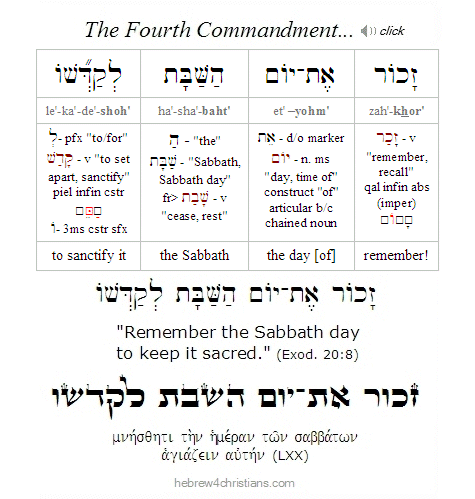 |
The Dust of God....
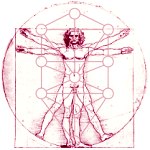
10.21.22 (Tishri 26, 5783) In our Torah portion for this week (i.e., Bereshit) we read more about God's creative glory: "Then the LORD God (יְהוָה אֱלֹהִים) formed the man from dust of the ground (עָפָר מִן־הָאֲדָמָה) and breathed into his nostrils the breath of life (נִשְׁמַת חַיִּים), and the man became a living soul" (Gen. 2:7).
We tend to think of "dust" in self-effacing terms; for example, repenting in "dust and ashes" expresses unworthiness and sinfulness. Yet the dust God used to form Adam was not worthless, but instead represented very fine particles of creation, a substance suspended midway between heaven and earth, almost a "spiritual matter." It is a "precious dust." This is suggested by the fact that God first intended man to be his image bearer and only then used dust as the material for that higher end.
The sages note that regarding the creation of animals, God said, "Let the earth (eretz) bring forth according to their kinds" (Gen. 1:24), but regarding man he said, "Let us make him be'tzelmeinu - in our image and after our likeness" (Gen. 1:26), suggesting that the human being is an analogy of God. Therefore God brought forth the lower animals in groups, but he created Adam as the only one of its kind, the son of God and prince of God's creation. God breathed into Adam nishmat chayim (נִשְׁמַת חַיִּים), "a living soul" (the word neshamah [נשָׁמָה] is used to describe life breathed into humans, not to animals). The LORD breathed "out of himself" to share his own spirit with mankind... Therefore your soul does not come from nature, but from God; your inner essence originates directly from the LORD. Yeshua breathes out and says to you, "Receive the Holy Spirit" (John 20:22).
The first occurrence of the Name YHVH (יהוה) concerns the creation of Adam, when the LORD breathed into him the gift of life... When Adam first opened his eyes and human consciousness was born, he immediately understood that the LORD created all things, including himself. According to midrash, Adam's first words were, יהוה מֶלֶךְ עוֹלָם וָעֶד / Adonai malakh olam va'ed: "The LORD is King for ever and ever" (Exod. 15:18). God then said, "Now the whole world will know that I am King," and He was very pleased. This was the "tov me'od" (טוֹב מְאד) moment of creation, when God saw all that He had made "and found it very good" (Gen. 1:31). Amen, this is true for us, even after the fall of humanity into sin, for Yeshua our LORD restores the lost image of God within the believing heart, as it is says: "And as we have borne the image of the man of dust, we shall also bear the image of the heavenly Man" (1 Cor. 15:49). Therefore "let everything that has breath praise the LORD! Praise ye the LORD! (Psalm 150:6).
Hebrew Lesson:
Psalm 150:6 Hebrew reading (click):
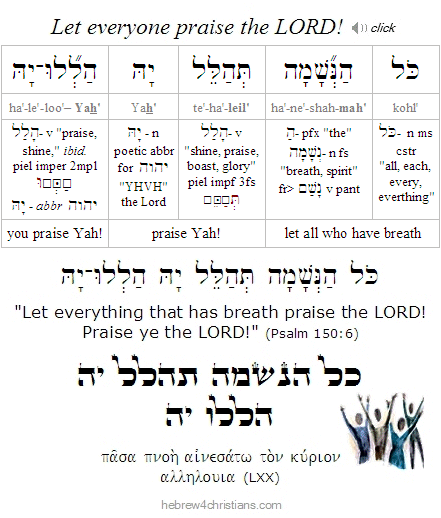 |
Note: From the statement, "for the LORD God had not caused it to rain on the land, and there was no man to work the ground" (Gen. 2:5), the early sages inferred that without man, the physical world itself would be pointless... Though there was mist physically present, the providential rains of blessing needed for the cultivation of plant and animal life would be given solely for the benefit of man... The LORD God planted the garden in the east for the sake of Adam (Gen. 2:8). From the very beginning the LORD is the Fountain of living water (מְקוֹר מַיִם־חַיִּים) poured out for us.
Daily Perush Audio Podcast:
In God's Image and Likeness...
Click the graphic below to listen to an audio lesson on the Hebrew text of Genesis 1:26 and what is meant by the "image and likeness" of God:
Lingering on Bereshit...

10.21.22 (Tishri 26, 5783) Torah is an ocean, chaverim; it overflows with life and truth! I have so much I want to share with you all regarding this week's Torah portion, since it is foundational to everything else that we read in the Scriptures, but alas, time is short, especially just following the High Holiday season. There are several additional articles I have written over the years on the Hebrew for Christians web site that you can read on Bereshit, though I hope to share some more on this topic next week as well, since I don't have time to post much more before Shabbat begins. Thank you for your understanding. So let's linger for awhile on the marvels of God's creation, the tragic fall of humanity into the lethal grip of sin, and how Yeshua, the Lamb of God, redeems us from the curse and restores the glory of the original paradise by means of God's great salvation!
Temptation in the Garden...

10.20.22 (Tishri 25, 5783) When Adam was settled in the Garden of Eden (גן עדן), God instructed that he was free to eat from any tree in the Garden except from "the Tree of the Knowledge of Good and Evil" (עֵץ הַדַּעַת טוֹב וָרָע), which logically implies that evil existed before that time. After all, the knowledge of something assumes the existence of that thing, and if there was knowledge of evil, then evil would exist, at least potentially... If we understand evil (in this context) as a volitional act of disobedience to God's will, the existence of moral agency that could disobey the divine imperative must be assumed. And since the angels were created before the earth was created (Job 38:4-7), then Satan - understood to be an angelic being - had rebelled against God some time before the original prohibition was given to Adam and Eve. Good and evil are therefore terms defined in relation to the person and nature of God: that which is "good" is what God reveals as good, and that which is evil is the negation (or privation) of that good. God's inherent goodness is non-derived and absolute, however, and therefore there is no standard "above" God that determines his judgment about what is good and what is evil. God is the source of all goodness, whereas the "sitra achra" (סִטְרָא אָחֳרָא), or the "other side" of God's will, is the realm of evil or demonic powers. This is implied in the first verse of Scripture. "In the beginning God created" reveals that the basis for all truth is that God is the sole Creator of everything:
 |
Now some time after Adam and Eve were created, then, a mysterious being called "the serpent" (i.e., ha'nachash: הַנָּחָשׁ) appeared in the Garden tempting them to do evil by disobeying God. In the Torah we read: "Now the serpent was more "subtle" or "cunning" (i.e., arum: עָרוּם) than any other beast of the field that the LORD God had made" (Gen. 3:1). Notice that while the serpent was described as "cunning," he had carefully disguised himself as a "beast of the field" (חַיַּת הַשָּׂדֶה). In his ploy to sabotage God's crowning act of creation, he slyly pretended to be a humble animal that was curious about God's appointed king and queen over the earth. "Was it really true," the serpent began, "that God said you shall not eat from any tree of the garden?" Undoubtedly the serpent deliberately misrepresented God's will in order to set his bait. Eve responded to the question by correcting the beast, teaching him that they were allowed to eat fruit from any of the trees in the garden except for the tree in its midst. She then recalled God's commandment, saying: "You must not eat from it, and you must not touch it, or else you will die" (Gen. 3:2-3). In this connection note that Eve had misquoted the commandment by adding the prohibition not to touch the tree, something God did not say (Gen. 2:16-17). (See "Fences and Distance.")
At any rate, the serpent, seizing the opportunity to exploit Eve's overstatement, directly contradicted her understanding of the matter: "No, you shall not surely die!" He then insinuated that God's ulterior motive was to restrict access to the Tree because it would cause their eyes to be opened so they would become like God, knowing the difference between good and evil. It is telling that the serpent accused the Creator with being envious, since that is how he rationalized his own decision to turn away from God, cynically thinking that God did not want to share his glory with any other being than himself (Isa. 14:14).
The trap having been set, Eve became ensnared by doubt. First she began looking the tree over and saw that it bore pleasant fruit; then she recalled the serpent's praise of the fruit of the tree as the means of gaining god-like insight about good and evil, and finally, in her desire, she took some of the fruit, ate it, and gave some to her husband who was with her. The effect of their transgression was apparently immediate: "The eyes of both were then opened, and they knew that they were naked (i.e., arom: עָרוֹם); and they sewed fig leaves together and made themselves coverings" (Gen. 3:7).
The serpent had spoken a partial truth: their eyes were opened, but when they saw their own inner evil, they were ashamed. They went dark; they withdrew into lonely and fearful exile. They wanted to hide the truth from themselves and from God himself.
Later, when Adam and Eve heard the sound of God walking toward them in the garden, they attempted to hide themselves among the trees. The Lord then called out, אַיֶּכָּה - "Ayekah?" Where are you?, though of course he knew exactly where they were hiding. God was calling out to his lost children, asking them to turn back to him. Adam then stepped out from among the trees, covered with fig leaves, and anxiously said, "I heard your voice but I was afraid because I was naked..." (Gen. 3:10).
Recall that when God had created Adam and Eve they were "naked but not ashamed" (Gen. 2:25), but now, after their transgression, their nakedness became a source of fear. Their innocence was lost and this led them into a shattered state of anxiety and self-awareness.
The "original sin" (i.e., ha'kedamon ha'chet: הַקְּדָמוֹן הַחֵטא) is depicted as eating from the fruit of the "Tree of the knowledge of good and evil," the access of which was gained by means willful disobedience to God, and the consequence of which was separation from God, or "spiritual death." The original sin was the rejection of God as the moral Authority of reality by usurping His prerogative to define what is good and what is evil. Note that the effect of the judgment (i.e., curse) of spiritual death was "passed down" to the progeny of Adam and Eve as a lethal condition judicially derived from the original transgression in the Garden. In other words, since Adam and Eve functioned as "federal heads" of the human race, their sin was consequently imputed and transmitted to the rest of humanity, as it is written: "Therefore, just as sin came into the world through one man, and death through sin, so death spread to all men because all sinned" (Rom. 5:12).
It is interesting that the same Hebrew root (i.e., ערם) is used to describe both the "cunning" of the serpent (Gen. 3:1) and the "nakedness" of Adam and Eve after their sin (Gen. 3:7). In Satan's case, God exposed his pride which resulted in exile from the heavenly realm (Isa. 14:12-15; Ezek. 28:12-14). After his fall, the "nakedness" of Satan led to the shameless "celebration" of lawlessness and the cunning devices of evil. In the case of Adam and Eve's fall, however, the "uncovering" resulted in exile from the Garden and the shame and fear derived from their own wicked hearts. In both cases, however, the root cause of evil was pride that exalted the will of creature above that of the Creator, and in both cases the consequence of usurping God's authority resulted in judgment and spiritual death. God's judgment upon Satan, however, was irrevocable, since Satan had "nakedly" sinned before the Divine Presence in the realm of the eternal, whereas Adam's judgment was provisional until the coming of the Savior, who would overthrow Satan's claim to be the federal head of fallen humanity by means of the perfect obedience and sacrifice of the "Last Adam," the Son of Man, who would withstand the temptation of the evil one and gain the victory on our behalf. God signified the promised ransom to come by graciously clothing Adam and Eve with the skin of the first sacrificed animal, offered by God himself, in anticipation of the Lamb of God who would take away the sins of the world (Gen. 3:21).
Hebrew Lesson:
Psalm 119:37 Hebrew reading (click):
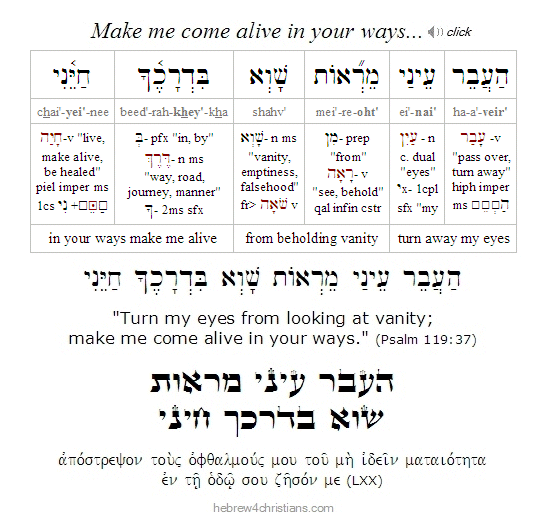 |
The Root of Sin and Death...

[ The following is related to this week's Torah portion, parashat Bereshit... ]
10.20.22 (Tishri 25, 5783) The very first commandment prohibiting eating from the Tree of Knowledge of good and evil (עֵץ הַדַּעַת טוֹב וָרָע) contained all other Torah commandments by implication (Gen. 2:17). The commandments not to worship idols, not to curse God, not to steal, not to kill, not to commit adultery, not to covet, and to enforce justice all derive from this primary commandment given in the garden. After all, Adam lost awareness of God by focusing on himself (idolatry) and failed to express love and reverence for God (profanity); he took from the Tree what was forbidden (coveting/stealing) which led to his own death (killing) and his own inner promiscuity (adultery). He failed to be vigilant and exercise justice by removing the presence of the tempting snake... Notice how these implications form the basic categories of the Ten Commandments, as well as the 613 commandments given later at Sinai. Looked at the other way, all of the commandments of Torah were concentrated into this single prohibition, since had Adam refrained from eating, he likewise would have refrained from all the other sins derived from this first great transgression. Moreover, since the essence of Torah is to trust God (i.e., "the righteous shall live by his faith"), when Adam sinned, he lost faith and the exile began... The Tree of Knowledge of good and evil is really the tree of the knowledge of sin and death. Just as the law defined sin to reveal our lethal spiritual condition, so the Tree of Knowledge led to the consequence of death and the revelation of our need for healing and deliverance given by Yeshua. "The law of the Spirit of life sets you free in Yeshua the Messiah from the law of sin and death" (Rom. 8:2).
The root of sin and death is found in the desire for "the knowledge of good and evil," that is, by defining "the good" in one's own terms. It is the attempt to transcend God's authority for something beyond his sovereign good for us, and as such it denies reality and leads to exile and death. In this connection we note that the Hebrew phrase that warns of the dreadful consequence of eating from the Tree is mot tamut (מוֹת תָּמוּת), meaning "in dying you will die," which both implies the spiritual nature of death as separation from the divine life, but also the repeated experience of death – the ongoing knowledge of decay, dissolution, and loss...
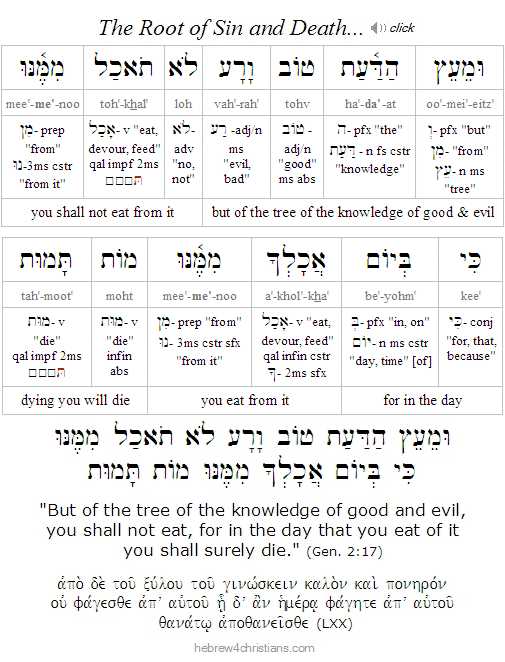 |
Creation and Rest...

10.20.22 (Tishri 25, 5783) The general account of creation ends: "So God blessed the seventh day and set it apart as as holy (וַיְבָרֶךְ אֱלֹהִים אֶת־יוֹם הַשְּׁבִיעִי וַיְקַדֵּשׁ אֹתוֹ), because on it God rested (i.e., shavat: שָׁבַת) from all his work that he had created to do" (Gen. 2:3). Here we note that rest (i.e., shevat: שָׁבַת) should not be thought of as idleness, that is, the mere cessation of work, since the divine rest is blessed and introduces a higher-level of existence, above the natural realm.
This is likened to the "hidden blessing" that no manna fell on Sabbath so that what had been accrued could be used at that time (Exod. 16:25). The midrash says here that God rested only from the "work of this world," but not from the work of heaven, that is, the ongoing work of sustaining creation by the word of his power, caring for the righteous and judging the wicked, feeding the birds and watering the lilies of the field (Matt. 6:26-29, Heb. 1:3; Col. 1:16-17). "Yea, He that keeps Israel shall neither slumber nor sleep" (Psalm 121:4). Therefore it was on the Sabbath day that Yeshua asked the paralytic man, "Do you want to be healed?" and then instructed him to take up his mat and walk (John 5:1-9). To those religious gatekeepers who accused him of "breaking the Sabbath" because he did this, Yeshua said, "My Father is working until now, and I am working too," a statement that enraged them, since they understood that Yeshua was making himself equal with the LORD God Himself (John 5:17-18).
Hebrew Lesson:
Deut. 5:12 Hebrew reading (click):
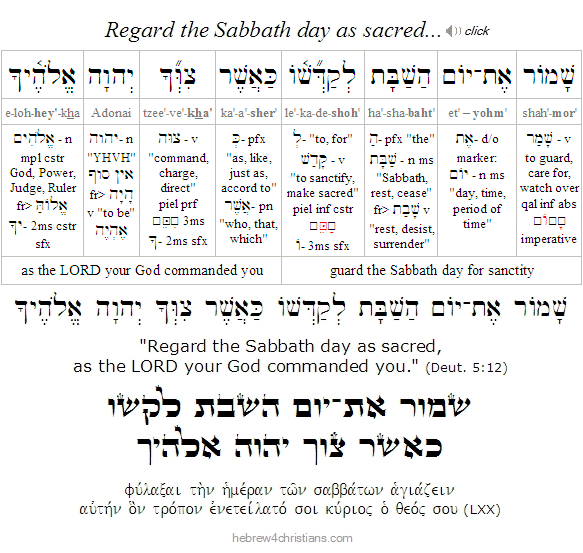 |
But what about the matter of Sabbath observance? Did Yeshua "break the Sabbath" as he was accused or did he rather have a different understanding of its true meaning? When he was criticized by the Pharisees for allowing his disciples to pick some grain from the fields on the Sabbath, he responded that the Scriptures themselves testified that King David "broke the commandment" by eating the sacred bread reserved for the priests (i.e., the "showbread"), and noted that the priests likewise "profaned" the Sabbath by performing their avodah (service) at the Temple (Matt. 12:1-5). Yeshua then stated that "someone greater than the Temple is here" and went on to chastise his accusers by pointing out that the deeper principle of the Torah is to show mercy before sacrifice (see Hos. 6:6, Psalm 51:16-17, Prov. 15:8, Matt. 9:13, etc.). As the very "Lord of the Sabbath" (i,e., אֲדוֹן הַשַּׁבָּת, Matt. 12:8), Yeshua sanctioned acts of mercy and compassion to be performed on the consecrated day of rest. Indeed, just as the law permitted a male to be circumcised or an animal to be pulled out of a well on this day, for all the more reason should a person be healed on the Sabbath (Matt. 12:11-13). The Sabbath is therefore not a day of (static) rest (or "non-doing") but is a means of providing rest for others by doing gemilut chasadim, that is, acts of chesed and mercy.
Again, the Pharisees and religious authorities had confused the "inner" with the "outer" and made a category mistake, and therefore Yeshua axiomatically said: הַשַּׁבָּת נֶעֶשְׂתָה לְמַעַן הָאָדָם וְלֹא הָאָדָם לְמַעַן הַשַּׁבָּת - "the Sabbath was made for man, and not man made for the Sabbath" (Mark 2:27). Of our Savior it was prophetically said: "Out of the ground that the LORD has cursed, this one shall bring us comfort (נָחַם) from our work and from the painful toil of our hands" (Gen. 5:29).
Design and Substance...

10.20.22 (Tishri 25, 5783) The Torah begins: "In the beginning God created the heavens and the earth, and the earth was tohu va'vohu (תֹהוּ וָבֹהוּ) - without form and empty - and darkness was over the face of the deep..." (Gen. 1:1-2). The sages comment that knowing that God created the heavens and the earth makes us realize that by themselves earthly things are without purpose and substance, since life in the natural world is havel havalim (הֲבֵל הֲבָלִים), "vanity of vanities," apart from the design (i.e., form) and the substance of God. Faith in the upper "world" of God, that is, the heavenly realm, therefore evokes a sense of discontent and longing within the soul, and the temporal world and its pleasures will seem distracting and empty by comparison. This lack of form and emptiness was part of the original design of creation, however, since it was after God had created the universe that "he saw everything that he had made, and behold, it was very good" (Gen. 1:31).
Just as we cannot see light but by means of it we see other things, so with Yeshua, the Light of Life, the Form and Substance of God... By His illumination we are able to see the spiritual reality of God's Presence and invincible love... Yeshua is "the radiance of the glory of God and the exact imprint of his nature, and he upholds the universe by the word of his power" (Heb. 1:3). He is the Fountain of Life: by his light we see light (Psalm 36:9). Amen, God is light, and in Him is no darkness at all (1 John 1:5).
Hebrew Lesson:
Psalm 36:9 Hebrew reading (click):
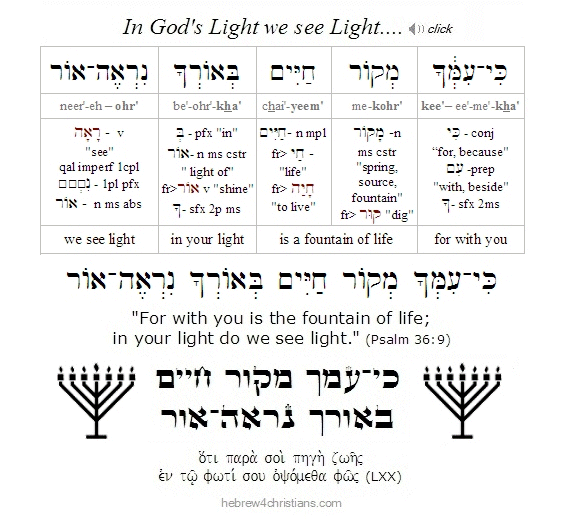 |
Note that some Torah teachers claim that there was a "gap" in time between Gen. 1:1 and 1:2 in which the devil rebelled and a cosmic war between good and evil occurred that resulted in the fall of Satan. According to this view, God "started over" by saying yehi ohr, "Let there be light" (Gen. 1:3). There is no textual evidence for such a gap, however, and indeed there are reasons to reject this view as mistaken. First, the Ten Commandments state that God created all that existed - including time, space, angels - in six days (Exod. 20:11; John 1:3). Second, the devil could not have fallen before the creation since he was created "an anointed covering cherub" while in the original paradise (see Ezek. 28:13-15). Third, the taunt of the fall of the King of Babylon prefigured the fall of Satan, where the pride of the evil one was exposed: "You said in your heart, 'I will ascend to heaven; above the stars of God I will set my throne on high; I will sit on the mount of assembly in the far reaches of the north; I will ascend above the heights of the clouds; I will make myself like the Most High' (Isa. 14:13-14). Notice that the desired ascent was above the stars, above the clouds, and so on, all of which were created when God made the expanse (Gen. 1:14-18). Finally, the Scriptures state that there was no sin or death until man brought them into the world (Rom. 5:12), and, since Torah tells us that God declared everything was "very good" (הִנֵּה־טוֹב מְאֹד) at the end of the sixth day of creation (Gen. 1:31), it seems clear that Satan must have fallen after Adam was created.
The Song of Desire...

10.20.22 (Tishri 25, 5783) The midrash says that the first word of the Bible, the Hebrew word "bereshit" (בְּרֵאשִׁית), can be arranged to spell shir te'ev (שִׁיר תְּאֵב), meaning the "song of desire." This is the holy plea sounded by all of creation to be made whole, healed, and ultimately perfected. As it says in our Scriptures: "For the creation was subjected to futility, not willingly, but because of him who subjected it in hope" (Rom. 8:20). Therefore when we take hold of Yeshua's heart, vision, and mission, we partake in the repair of the world (תיקון עולם) by testifying of God's healing love given in Messiah. We begin and end our journey to life with the "song of desire" on our lips – that is, with our heart awakened to its need for God. As it says: "The LORD is near to all who call on him, to all who call on him in truth. He fulfills the desire of those who fear him; he also hears their cry and saves them" (Psalm 145:18-19).
Hebrew Lesson:
Song 7:10 Hebrew reading Lesson (click):
The Gospel in the Garden...

[ We always read parashat Bereshit on the Sabbath following the holiday of Simchat Torah, and therefore it begins Torah reading for the new Jewish year.... Right at the outset of the narrative of the Torah, then, we will read about the "proto-euangelion," or the "first gospel" message of God's redemption given through the Promised Seed of Eve... ]
10.20.22 (Tishri 25, 5783) The very first prophecy of the Torah concerns the promise of the coming "Seed of the woman" who would vanquish the serpent (nachash) that had originally tempted and deceived Eve (Gen. 3:15). This prophecy is sometimes called the proto-euangelion ("first gospel"), since it is the starting point of all subsequent prophecy and redemptive history revealed in the Scriptures. Indeed, since the mystery of the Incarnation of God the Son (the "Son of Man") is foreshadowed here, this prophecy is linked to the original woman, Eve. Just as Eve became a carrier of the corruption of human nature by heeding the voice of the tempter, so she would be the carrier of God Himself for the deliverance of mankind through the advent of the Redeemer. In the tragic aftermath of the transgression of the first man and woman, then, God first announced His unfailing redemptive love for the human race that would culminate in the birth, sacrifice, and resurrection of Yeshua our Savior and Deliverer - "born of a woman, born under the law" (Gal. 4:4).
Our restoration begins with God's love and passion. God's first question to Adam after he broke covenant was: "Where (אַיֶּכָּה) are you?" - the voice of a loving Father in search of his son (Gen. 3:9). Of course God knew exactly how his son was attempting to hide, though He almost acted as if He was unwilling to believe that he would betray his love by disobeying His commandment. Therefore God's poignant question was directed to Adam's heart: "Oh my son, how did you get to this place?" God was giving Adam an opportunity to turn back to Him, to confess the sin, to undergo teshuvah, to become reconciled... This is the necessary prelude to any honest relationship with God.
Recall that the original promise of the coming Savior was given within the context of the curse and judgment upon Satan: "I will put enmity between you and the woman, and between your seed and her seed; he shall crush your head, and you shall crush his heel" (Gen. 3:15). That God's promise was first directed to Satan is surely by design, since he "left his first estate" by becoming the "monster in the garden" and was therefore primarily responsible for the transgression of Adam and Eve in the first place (Ezek. 28:13-15,19). The promise delivered to Satan was therefore one of coming retribution and divine judgment: Evil would not have the last word in the matter of mankind, and therefore Satan's schemes would be avenged by God in the fullness of time (Gal. 4:4-5). Notice, however, that Adam and Eve were not yet judged for their sin when the LORD God gave the promise of the coming of the Redeemer. Before a word of judgment was directed toward them, God's love and light was already revealed. Indeed, immediately after their judgment was pronounced, "the LORD God made tunics of skin for Adam and his wife and clothed them" (Gen. 3:21) - a clear picture of being compassionately "robed in righteousness" imparted by an innocent sacrifice. The very first sacrifice recorded in the Torah - performed by God Himself - prefigured the coming redemption by the "seed of the woman" who would die as a substitutionary sacrifice for their sins, and therefore Yeshua is rightly called "the Lamb slain from the foundation (or beginning) of the world" (Rev. 13:8). This further explains why Eve's son (Abel) offered a blood sacrifice that was accepted by the LORD, whereas Cain's offering the "fruit of the earth" was rejected.
The very first prophecy of Torah therefore describes - in the most succinct form - the coming of the Savior and the great conflict of the ages. First, God declares that He would put enmity (אֵיבָה) between Satan and the woman. This enmity, or "hostile hatred," was based on the memory of Eve's misguided trust she evidenced in the garden. When Eve first sympathetically listened to the lies of the nachash (serpent), she immediately began her descent into exile and became a temptress herself. Her first step toward sin was a gullibility or openness that ultimately resulted in a lack of trust of God (which is part of the reason why we must be saved by trusting, as a "like-for-like" reversal of the original sin). At the very dawn of human history, then, we see that "truth" (אֱמֶת) apart from God (א) leads to death (מֵת). Eve was deceived because of Satan, but Adam deliberately chose to disobey God (2 Cor. 11:3; 1 Tim 2:14). In response to her teshuvah (repentance), God blessed Eve before He judged her by imparting to her a God-given hatred for Satan and his lies, as well as the promise that she would take part in the birth of the Savior of mankind. The first promise of the gospel, then, focused on the woman and her role in the coming redemption. Notice that Adam later renamed his wife Eve (i.e., Chavah: חַוָּה, the "mother of life") as an expression of his faith that the promised seed would come through her.
וְאֵיבָה אָשִׁית בֵּינְךָ וּבֵין הָאִשָּׁה
וּבֵין זַרְעֲךָ וּבֵין זַרְעָהּ
הוּא יְשׁוּפְךָ רֹאשׁ
וְאַתָּה תְּשׁוּפֶנּוּ עָקֵב
ve·ey·vah a·sheet be·ne·kha oo·vein ha·ee·shah
oo-vein zar·a·kha oo-vein zar-ah
hoo ye·shoof-kha rosh
ve·a·tah te·shoo·fen'·noo a·keiv

I will put enmity between you and the woman,
and between your offspring and her offspring;
he shall crush your head, and you shall crush his heel."
(Gen. 3:15)
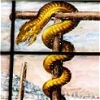
Hebrew Lesson:
Genesis 3:15b Hebrew reading (click):
Eve might have initially believed that her firstborn son Cain (קַיִן) was the promised Seed himself. After all, the miracle of birth surely came as a great shock to her, and Eve's faith in God's promise that through her seed would come the deliverer was doubtlessly upon her heart at this time. When Eve called her son "Cain" (wordplay from the verb kana (קָנָה), "to get"), she was expressing her faith in God's promise: קָנִיתִי אִישׁ אֶת־יהוה / kaniti ish et-Adonai, "I have gotten a man - namely, the LORD" (Gen. 4:1). Eve's faith was obscured by the translators, however, who rendered the Hebrew as "I have gotten a man with the help of the LORD" (i.e., they inserted the idea of "help" and translated the particle et (את) as "with" rather than as the direct object marker for the verb). The ancient Jewish targums, however, agree with the original Hebrew. For example, Targum Yonatan reads: "I have gotten a man - the Angel of YHVH." Surely Eve, the first mother of humanity, was endowed with great wisdom from God, especially after she turned to Him in repentance after her disobedience. The straightforward reading of her words, then, expressed her hope that the LORD Himself would be made a man...
Despite her hope that Cain was none other than the God-Man and promised Deliverer, Eve's hopes were dashed when it became clear that her son was of the seed of Satan (1 John 3:12). His younger brother Abel (הֶבֶל) was a shepherd who evidenced faith in the promise of the coming redeemer by offering blood sacrifice (Gen. 4:3-5). Abel was persecuted and finally murdered by his brother Cain "because his own deeds were evil and his brother's righteous." Their spiritual conflict is indicative of the ongoing warfare between the "sons of darkness" and the "sons of light."
The murder of Abel necessitated that the coming seed would descend through another child, and therefore the Torah describes the birth of Seth (שֵׁת, lit. "appointed"), the third son of Adam and Eve. The Scriptures further state that it was the descendants of Seth who "began to call upon the Name of the LORD" (לִקְרא בְּשֵׁם יהוה), indicating that they had faith in God (אֱלהִים) as the Compassionate Covenant Keeper (יהוה) who would redeem humanity by means of the coming seed. Seth called his firstborn son Enosh ("man"), perhaps in the hope that his child would be the promised Savior (interestingly, bar enosh (בַּר אֱנָשׁ), or "Son of Man," is the name for the Savior (Dan 7:13).
To continue reading see:
"The Gospel in the Garden: Further thoughts on parashat Bereshit."
Shavuah Tov Audio Podcast:
The Gospel in the Garden...
Our Sukka this year (click for larger photos):
Olam Malei - An Entire World...

[ "The day you were born is the day God decided the world could not exist without you." - Nachman of Breslov ]
10.19.22 (Tishri 24, 5783) God made you entirely unique, and no one else was created for the special role that you have in the overarching plan of Almighty God... Jewish tradition says that God created Adam alone as "olam malei" (עוֹלָם מָלֵא), "an entire world," to teach that each individual is of great value and significance. "Thus anyone who sustains one individual has sustained the world; and anyone who destroys one individual has destroyed an entire world" (Sanhedrin 37a). In addition, God created man as a solitary creation to remind all people that they descend from a common source: No one has a greater or better lineage or "pedigree" than anyone else. Moreover, each of us is created with a radical sense of "aloneness," a built in "hunger" for relationship and especially for God's presence. Therefore the very first commandment to Adam and Eve comes in the form of a blessing: "And God blessed them and said, פְּרוּ וּרְבו / pru urvu: "be fruitful and multiply" (Gen. 1:28). People were created to be in fellowship with others and with God, and when this is lacking, there is a profound soul hunger and need....
When you feel discouraged or anxious because of difficult times, remember how the LORD God created the world and sustains it for the sake of the revelation of his love for you... You may not understand the present moment, though you can assuredly trust that God's salvation given in the Messiah Yeshua heals you forever and ever. Declare at all times, then: "The world was created for my sake, though I am but dust and ashes." God is faithful, the great Amen of the human heart's cry. Your inner being is redeemed by God for you to experience and know the blessing of eternal life (John 17:3).
בָּרוּךְ אַתָּה יְהוָה אֱלהֵינוּ מֶלֶךְ הָעוֹלם
שֶׁהַכּל נִהְיָה בִּדְּבָּרוֹ
bah·rookh · a·tah · Adonai · E·loh·hey'·noo · me'·lekh · ha'·oh·lahm
she'·ha·kohl · nee·he·yah · bee'·de·vah·roh

"Blessed are you LORD our God, King of the Universe,
who brings about everything by His Word."

Because you are made in the image of God, you are mikdash me'at, a small sanctuary or "temple" for the LORD (Luke 17:20-21; Rom. 14:17; 1 Cor. 6:19).
Hebrew Lesson
Isaiah 43:1b Hebrew reading (click):
The Divine Light...
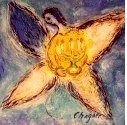
[ "And there was evening and there was morning, the first day" (Gen. 1:4). The sages note that the Jews start the day at night when there is darkness and fear, but when daylight comes, there is light and salvation. The wicked, however, begin with light and end in darkness. ]
10.19.22 (Tishri 24, 5783) The Divine Light (האור האלוהי) of the first day of creation (Gen 1:3) is not the same as the light issuing from the cosmic spheres. God created the sun, moon, and stars on the fourth day to demonstrate that everything in the universe was created through the light of His Word (Gen. 1:14-19). If the sun had been created before everything else (big bang), it could have been said that the world was without beginning, and the earth produced life through the influences of astronomical bodies. The Torah states that plants were created before the sun and moon to indicate that nothing can exist apart from God's sovereign will. וַיְהִ... יְהִי, yehi...vaihi: God called everything into being by the Word of His Power (בִּדְבַר גְּבוּרָתוֹ). Therefore we recite the blessing: Barukh atah Adonai Eloheinu melekh ha'olam shehakol niyah bidvaro, translated as: "Blesssed are You, LORD our God, Master of the Universe, who brings forth all things by His Word."
וַיּאמֶר אֱלהִים יְהִי אוֹר וַיְהִי־אוֹר
וַיַּרְא אֱלהִים אֶת־הָאוֹר כִּי־טוֹב
וַיַּבְדֵּל אֱלהִים בֵּין הָאוֹר וּבֵין הַחשֶׁךְ
וַיִּקְרָא אֱלהִים לָאוֹר יוֹם וְלַחשֶׁךְ קָרָא לָיְלָה
וַיְהִי־עֶרֶב וַיְהִי־בקֶר יוֹם אֶחָד
vai·yoh'·mer · E·loh·heem · ye·hee · ohr · vai·hee · ohr
vai·yahr · E·loh·heem · et - hah·ohr · kee- tohv
vai·yav·deil · E·loh·heem · bein · hah·ohr · oo·vein · ha·choh'·shekh
vai·yeek·rah · E·loh·heem · lah·ohr · yohm · ve·la·choh'·shekh · kah'·rah · lai'·lah
vai·hee - e'·rev · vai·hee - voh'·ker · yohm · e·chad

"And God said, "Let there be light," and there was light.
And God saw that the light was good.
And God separated the light from the darkness.
God called the light Day, and the darkness he called Night.
And there was evening and there was morning, the first day."
(Gen. 1:3-5)
Notice that the word "light" (אור) appears five times in this passage, which prompted the sages to say there are five kinds of light, each corresponding to a book of the Torah. "Let there be light" (יְהִי אוֹר) refers to the Book of Genesis and the Divine Light of Messiah; "and there was light" (וַיְהִי־אוֹר) refers to the Book of Exodus, when during their deliverance from Egypt Israel had the redemptive light of Messiah within their homes; "God saw the light" (וַיַּרְא אֱלהִים אֶת־הָאוֹר) refers to the Book of Leviticus, which deals with the light of Messiah's sacrifice and atonement - the light of teshuvah; "God separated the light from the darkness" (וַיַּבְדֵּל אֱלהִים בֵּין הָאוֹר וּבֵין הַחשֶׁךְ) refers to the Book of Numbers, when God judges evil by the truth of King Messiah; and finally, "God called the light Day" (וַיִּקְרָא אֱלהִים לָאוֹר יוֹם) refers to the Book of Deuteronomy, which enlightens the eyes of the one who loves the Messiah b'khol levavkha, with all of the heart...
Hebrew Lesson
Genesis 1:3 Hebrew reading lesson (click):
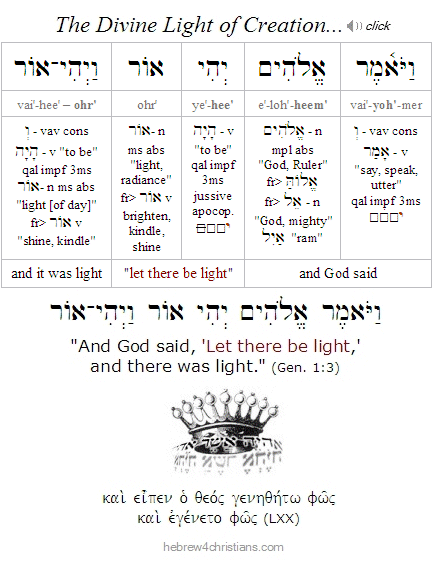 |
Seedbed of Creation...
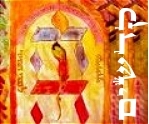
10.19.22 (Tishri 24, 5783) The Scroll of Genesis (סֵפֶר בְּרֵאשִׁית) is truly the "beginning," the "root," and the "seedbed" of all the subsequent Scriptures - including the message of the gospel and the revelation of the New Testament. In Genesis we see the creation and ruin of man through sin, but we take hold of the promise of deliverance through the coming Seed of the woman; in the Book of Exodus (שְׁמוֹת) we see God's powerful redemption secured through the blood of the Lamb; in the Book of Leviticus (וַיִּקְרָא) we encounter communion and atonement in the holy sanctuary; in the Book of Numbers (בַּמִדְבַּר) we experience the leading of God through desert places, and in the Book of Deuteronomy (הַדְּבָרִים) we are renewed by God's faithfulness before we take hold of our inheritance. Ultimately, the concluding book of the Bible, the Book of Revelation, serves as a climactic "final chapter" of the story begun in Genesis, where the Tree of Life (עֵץ הַחַיִּים) is restored to the midst of the paradise of God, and the presence of sin and death have been forever eradicated....
Everything begins with the foundational truth that Almighty God is our personal Creator (הַבּוֹרֵא). This is the first principle and axiom of all rational thinking: "In the beginning (בְּרֵאשִׁית), God created the heavens and the earth" (Gen. 1:1). Notice that the word "beginning," i.e., bereshit, comes from the word reishit (רֵאשִׁית), meaning first or best (Psalm 111:10), which does not necessarily mean "the beginning" in a temporal sense (הַרִאשׁוֹן), but rather primacy or rulership over all that exists. Indeed, the word includes the root idea of "head" (ראשׁ), which suggests the "head of all things," that is, to the Messiah, the Creative Word of God who is the "head of all beginning and authority" and through Whom and for Whom all things were created (Col. 1:16; 2:10).
Many of the traditional sages state that "in the beginning" (בְּרֵאשִׁית) refers to the wisdom of the Torah. Quoting Proverbs 8:22, these sages actually say that God created the world for the sake of Torah, what they call "reshit darko" (רֵאשִׁית דַּרְכּוֹ). In other words, wisdom (i.e., chokhmah: חָכְמָה) is personified as the Torah, the Agency of Power that created the universe. In light of the New Testament, we understand the divine wisdom personified as Yeshua our Messiah - the expression of God's will in creation... the manifestation of the "strong arm" of the LORD and his mighty power that created the enormous complexity of the universe yesh ma'ayin, "out of nothing..." Indeed, Yeshua is the "Living Torah" (ha'Torah ha'chayim: התורה החיה) and the Lamb slain before the foundation of the world - the One revealed before creation as its source and end. As it says in the New Testament: בְּרֵאשִׁית הָיָה הַדָּבָר - "in the beginning was the Word," וֵאלהִים הָיָה הַדָּבָר - and God was the Word... הַכּל נִהְיָה עַל־יָדוֹ - All things were made by Him, and without Him was not anything made that was made (John 1:1,3). Followers of the Messiah Yeshua do not worship a book, though the LORD our God is indeed the faithful Lawgiver, the Source of all truth and therefore he can never contradict the perfections of his own inner nature. Only the LORD God Almighty receives the glory of creation forever and ever (Rev. 4:11).
God "emptied himself" by freely choosing to create the universe in order to share his wisdom, glory, and love with other beings he created... All this was for the sake of the Messiah, who built the world in chesed (חֶסֶד) and who forever reigns as the King of eternal life and love.
Hebrew Lesson
Prov. 8:22 Hebrew reading (click):
Alphabet and Creation...

[ "A person has two eyes—one to see the greatness of G-d and the other to see his own smallness." - Menachem Mendel of Kotzk ]
10.18.22 (Tishri 23, 5783) The Torah begins with the letter Bet (בּ) rather than the letter Aleph (א) to denote God's humility. The letter Aleph is the first letter, the king of the alphabet, and the letter that begins "I AM" (i.e., אנכי) - the first word of the Ten Commandments. The letter Bet, on the other hand, is the second letter that means "house" or "home" (בּית). This suggests that the Torah begins with the focus not on the "I" but on creation, the household of God. And though God did not wish to be the center of attention, so to speak, Aleph and Bet together spell the word "father" (אב), that is, the One who oversees the household of the world in love. As it is written, "Every good gift and every perfect gift is from above, coming down from the Father of lights (אֲבִי הַמְּארוֹת) with whom there is no variation or shadow due to change" (James 1:17).
Aleph is a silent letter, representing God in His ineffable glory and life (אֶהְיֶה) that forever precedes all things (Isa. 44:6, cp. Rev. 22:13). Yeshua described Himself as the "Aleph and the Tav, the First and the Last" (הָאָלֶף וְהַתָּו הָראשׁ וְהַסּוֹף), the One who encompasses all Reality and gives out its strength (Aleph) before the house (Bet) of creation in sacrificial love.
Hebrew Lesson:
Psalm 100:5 Hebrew reading (click):
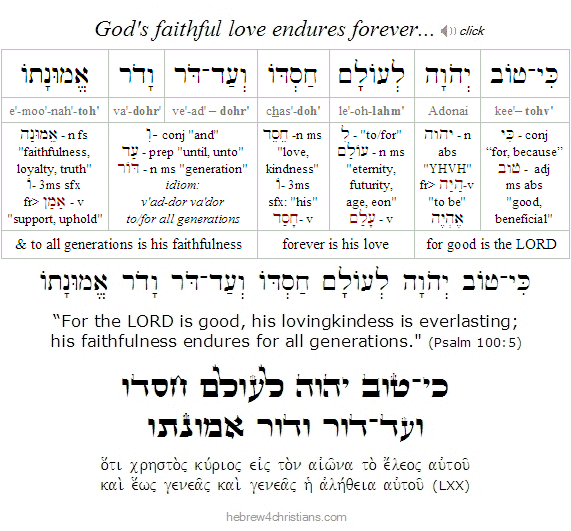 |
It may be wondered why we would say that God is humble... Well, it is certainly true that the LORD is self-effacing, self-forgetting, utterly unselfish, absolutely noble of heart, and so on. Moreover we are commanded to emulate God, who is merciful, gracious, slow to anger, abounding in steadfast love, etc. (Exod. 34:6-7). Most of all we are to follow the example of Yeshua, YHVH in the flesh, who willingly emptied Himself and took the role of a humble servant (Phil. 2:6-7). Yeshua himself said, "Take my yoke upon you, and learn from me, for I am gentle and lowly in heart, and you will find rest for your souls" (Matt. 11:29).
Creation and Faith...

[ "It is absurd for the Evolutionist to complain that it is unthinkable for an admittedly unthinkable God to make everything out of nothing and then pretend that it is more thinkable that nothing should turn itself into everything." - G. K. Chesterton ]
10.18.22 (Tishri 23, 5783) The idea that a personal God created the universe "out of nothing" (i.e., yesh me'ayin: יֵשׁ מֵאַיִן ) is a matter of special revelation that is not directly known through the operation of unaided natural reason. Of course human reason may (rightly) infer that since "every effect requires a cause," and since the universe itself is an effect, there must be a cause sufficient in power and greatness to effect the existence of the universe. Likewise, human reason may again (rightly) infer that the universe itself must have had a beginning, since it is impossible to traverse an infinite number of causes to arrive at a present effect, and therefore there must have been an immensely powerful and transcendental "First Cause" that started the chain of causation itself. (This "First Cause" answers the metaphysical question, "Why is there something [at all] rather than nothing?") However, human reason, by itself, can only take us so far, and something more is needed to apprehend the nature of reality.
In philosophical theology, an argument that God is the Cause of the universe is sometimes offered to invoke the possibility that the God of the Jewish Scriptures exists, though strictly speaking this inference is not warranted given the premises and logic of "cosmological" arguments alone. Indeed, the ancient Greek philosophers used this kind of reasoning to justify their own speculations about the cosmos (e.g., Plato's Form of the Good, Aristotle's Unmoved Mover, etc.), and yet their philosophical systems never connected the First Cause with a morally perfect personal Creator (אֱלהִים) who made mankind in His image and who therefore requires loving trust to know Him. The Greek conception of God (θεὸς) was abstract, impersonal, and essentially a theoretical construct employed to make sense of the physical cosmos. Nowhere in their speculations will you find the idea that the First Cause has revealed Himself as the author of all moral truth in the universe and who therefore functions as mankind's Eternal Judge. And nowhere in their thinking will you find the Covenant-Making God (יהוה) who redeems humanity from sin and judgment by means of the atoning sacrifice of Yeshua on the cross... Beyond the abstract awareness that the universe is the effect of an immensely powerful and transcendental First Cause, unaided human reason has precious little to say. As the French philosopher and mathematician Blaise Pascal once wrote, "The God of the philosophers is not the God of Abraham, Isaac, and Jacob."
To the Hebrew mind, reality is the handiwork of a single all-knowing, all-powerful, and morally perfect Creator who has personally revealed Himself to key individuals in the drama of human history. As such, reality is intensely, overwhelmingly, and even hauntingly personal... Truth therefore is a matter of trust -- not abstract knowledge -- whereas "knowledge" is primarily about practical ethics, moral obligation, and cult practices (i.e., Temple worship). For the Hebrew mind, truth is more akin to moral fidelity than it is to propositional correspondence; it is more a matter of the heart than of the head (see: "Theology and the Greek Mindset").
A Roman emperor once asked Rabbi Joshua if the universe had a ruler. The sage answered, indeed, the LORD is the Creator of all things, as it is written, "In the beginning, God created the heavens and the earth." The emperor then asked, "Why then is God not like the emperor of Rome, who is seen twice a year so that people may know and worship him?" Rabbi Joshua said that unlike human kings, the LORD was too powerful for people to see; as it is written in the Torah: "No person shall see Me and live." The emperor was skeptical, however, and insisted that unless he could physically see God, he would be unable to believe. Rabbi Joshua then pointed to the sun high in the sky: "Look into the sun and you will see God." The emperor tried to look into the sun, but was forced to cover his eyes to keep them from burning: "I cannot look into the sun," he said. Rabbi Joshua then replied: "Listen to yourself: If you cannot look into the sun which is but one of God's creations, how can you expect to look at God?" (adapted from Sefer HaAggadah)
The New Testament affirms that knowing that the First Cause of the universe is the personal God revealed in the Jewish Scriptures is the result of faith in God's direct revelation: "By faith (בָּאֱמוּנָה) we understand that the universe [lit. "worlds"] were created by the utterance of God (בִּדְבַר אֱלהִים), so that what is seen [i.e., the "effect" of the universe] did not come into being out of existing phenomena [i.e., was made yesh me'ayin - 'out of nothing']" (Heb. 11:3). Again, this is a matter of special revelation directly imparted by God's grace so that the soul may apprehend the Divine Light that preceded the creation of the worlds. Faith "looks not to the things that are seen but to the things that are unseen. For the things that are seen are transient, but the things that are unseen are eternal" (2 Cor. 4:18). This "collision" with the world of everydayness creates a restlessness or homesickness for our true home in heaven... (May God help each of us persevere.)
The very first phrase of the Scriptures, "In the beginning God created..." (Gen. 1:1), is therefore the starting point of all true and right thinking about the universe itself. Everything else follows from this revealed truth which natural (i.e., human) reason can merely approximate. God alone can create yesh me'ayin - "out of nothing" (the Hebrew verb bara (בָּרָא) is used exclusively to refer to God's power in this way), and therefore God stands exaltedly apart from the universe as its unique Creator and personal Master. This is the guiding thought that overshadows all that follows in the pages of Scripture. God is holy - separate - and entirely unique. He is the Personal God who loves, wills, speaks, intends, etc., and to whom human beings owe their allegiance and life. The God of Israel is not some indifferent deity that functions as a theoretical construct to explain the universe: He is the Source of all life, the personal Judge and Redeemer of all people. Bless His great name.
Hebrew Lesson
Genesis 1:1 Hebrew reading (click):
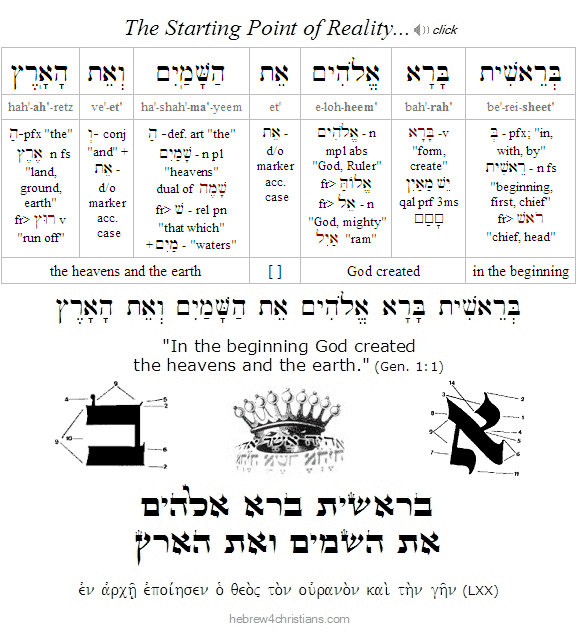 |
Descending to Ascend...

10.18.22 (Tishri 23, 5783) We naturally seek life on our own terms, yet this mercifully leads us to disappointment, sorrow, and loss. God calls us to change our direction and turn to him because he knows that what we really need is only found in relationship with him.... Since the blessing is found by connecting with him, he calls us away from the vanity of our idols to know him as our ultimate concern, our highest good, our deepest love...
Like walking upon a plank that stretches out before the fathomless sea, teshuvah is an abandonment of yourself to God's care - the surrender of all that you are - the good as well as the bad, in trust of his personal love for you (Psalm 139:8). It is not about reforming your character or becoming a "good" person; indeed, it is really not about you at all. Turning to God means losing sight of yourself altogether by being caught up in the glory of the Divine life.
Of course life is a messy business for us. We are weak. We are tempted, and we regularly fail. We are filled with ambivalence; we contradict ourselves; we struggle; we falter, we sin. At times we may even feel lost and inconsolably alone. But faith is a gift from heaven - the gift of God's presence, and as such the miracle attests that "God is with us," even in our times of darkness, in moments of sadness, heartache, confusion, anger, and fear. Where is God in our sorrows, our losses, our nightmares? He is with us. Despite the blindness of our hearts, the Spirit whispers: "I am with you." Yea, God never leaves us; he never forsakes us. He cares. His heart spans "the breadth and length and height and depth" of all that we are, expressed in his eviscerated groans for our deliverance, in drops of blood sweat out in his passion, in the forsakenness and utmost anguish of the cross... Faith believes and then sees.
God is with us, yet in the busyness (and forgetfulness) of the everyday we often lose sight of him. We forget. We go dark. We go into exile. And then in "the mercy of our misery" we sense the call of his heart once again: "Come unto me, you who labor and are heavy laden, and I will give you rest..." We slow down and again seek his "hidden" Presence, remembering his greatness and turning our thoughts back to what is ultimately real... What we thought was so big -- the dramas of this world -- suddenly seems small and insignificant. We remember the LORD our God; we revisit what matters most of all. And as we do so, the Spirit of God begins to flow within us as we reconnect with our true identity as God's beloved child. We come back to the open arms our Savior. He is alive; Jesus is real; we belong to him and he will lead us into the depths of his love forever and ever... Amen.
Hebrew Lesson
Psalm 63:3 Hebrew reading (click):
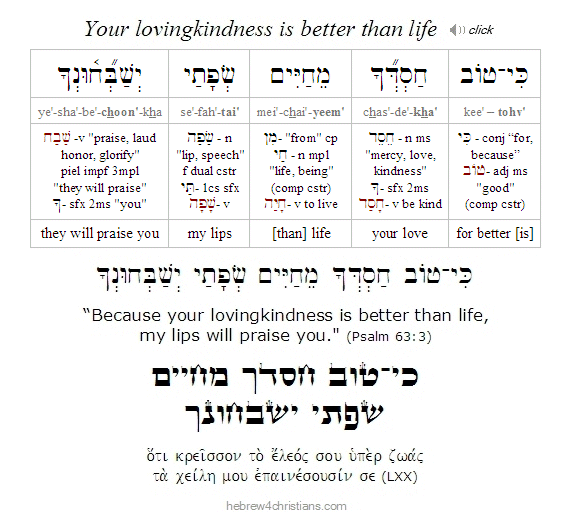 |
Our Creator and Redeemer....
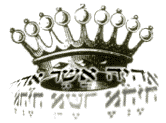
[ The following concerns this week's Torah reading, parashat Bereshit... ]
10.18.22 (Tishri 23, 5783) When Adam first opened his eyes and human consciousness was born, he immediately understood that the LORD created all things, including himself. According to midrash, Adam's first words were, יהוה מֶלֶךְ עוֹלָם וָעֶד / Adonai malakh olam va'ed: "The LORD is King for ever and ever." God then said, "Now the whole world will know that I am King," and He was very pleased. This was the "tov me'od" (טוֹב מְאד) moment of creation, when God saw all that He had made "and found it very good" (Gen. 1:31). The birthday of humanity is therefore the Coronation Day for the King of the Universe...
The implication that God is our Creator is enormous and pervades everything else in our lives. God's creative power is witnessed by all conscious life. The Divine Light that was created before the sun and the stars represents God's immanent presence that "lights up" all of creation - including our minds (Gen. 1:3). Since we were created b'tzelem Elohim, "in the image of God," the witness of God's truth is foundational to all of our thinking as well. The revelation (not the invention) of logical first principles is part of God's "signature," if you will, of how the mind is wired to reality. Likewise we have intuitive awareness regarding the existence of moral truth (i.e., the standard of justice and moral law), aesthetic truth (i.e., ideals of beauty, goodness, worth, and love), and metaphysical truth (i.e., cause and effect relationships). "The heavens are recounting the glory of God, and the expanse is proclaiming his handiwork" (Psalm 19:1). God's power and presence can be clearly inferred from the tremendous effect of the universe itself. As Paul stated, "the invisible things of Him (τά ἀόρατα αὐτοῦ) from the creation of the world are clearly seen (καθοράω), so that people are without excuse" (Rom. 1:19-20). It is the fear of the LORD (יִרְאַת יהוה) that is truly the beginning of wisdom and knowledge (Psalm 111:10; Prov. 1:7; 9:10). The Hebrew word for fearing (ירא) and seeing (ראה) share the same root. We cannot truly see reality apart from reverencing God as the Lord and King of Creation.
 |
It is important to emphasize that God is not some impersonal "First Cause" or "Unmoved Mover" of the universe. He is not some "cosmic big bang" that started the universe only to be indifferent to its functioning, nor is God a "Cosmic Egg" or "Self-Absorbed Mind" that contemplates the navel of reality... No, God is an entirely awake and morally perfect Being who created everything "very good" and who actively engages and sustains His creation. God is a personal Creator and Ruler of all that exists. In theological jargon, God is both "immanent" (sustaining and upholding creation) and "transcendent" (exalted over creation). This God has a Name (YHVH), a mind, and a moral, purposive will that imbues all of creation. God is LORD over all time and space, the King of Glory, who is Master of all possible worlds. He is therefore intimately concerned with the rule of His law, expressed both in the "natural" world (i.e., the laws of physics, chemistry, etc.), the mental world (i.e., the laws of logic, mathematics, etc.), the ethical world (i.e., the laws of morality, ethics, etc.), and the spiritual world (the laws of spirit and of spiritual beings).
Of course the New Testament identifies the "Voice of the Creator" (קוֹל יְהוָה אֱלהִים) as the all-powerful Word of God: בְּרֵאשִׁית הָיָה הַדָּבָר / "in the beginning was the Word" (John 1:1,14). Yeshua is the Source of all life in the universe: כָּל־הַמַּעֲשִׂים נִהְיוּ עַל־יָדוֹ / "All things were made by Him (John 1:3). The "Word made flesh" is the "image of the invisible God" and the "radiance of the glory of God and the exact imprint (χαρακτήρ, 'character') of his nature" (John 1:14, Col. 1:15). All of creation is being constantly upheld by the word of His power (Heb. 1:3): "All things were created by Him (i.e., Yeshua), and for Him" and in Him all things consist (συνεστηκεν, lit. "stick together") (Col. 1:16-17). Creation begins and ends with the redemptive love of God as manifested in the Person of Yeshua our Messiah... He is the Center of Creation - it's beginning and end. As it is written: אָנכִי אָלֶף וְתָו רִאשׁוֹן וְאַחֲרוֹן ראשׁ וָסוֹף / "I am the 'Aleph' and the 'Tav,' the First and the Last, the Beginning and the End" (Rev. 22:13). Every knee shall one day bow before Him (Isa. 45:23; Rom. 14:11; Phil. 2:9-11). Indeed, Yeshua is מֶלֶךְ מַלְכֵי הַמְּלָכִים / Melech Malchei Hamelachim: The "King of kings of kings." He is LORD of all possible worlds -- from the highest celestial glory to the dust of death upon a cross... יְהִי שֵׁם יהוה מְברָךְ / yehi shem Adonai mevorakh: "Let the Name of the LORD be blessed" forever (Psalm 113:2). Amen.
Our Sukka this year (click for larger photos):
Spelling out "Bereshit"...

[ The following is related our Torah portion for this week, parashat Bereshit... ]
10.17.22 (Tishri 22, 5783) The 18th century Torah sage Vilna Gaon taught that the Hebrew word "bereshit" (בְּרֵאשִׁית), which is the very first word of the Bible, may be thought of as an acronym for meaningful spiritual life. The first letter, Bet (בּ), stands for bittachon (בִּטָּחוֹן), a word that means complete trust in God's love for your life; the next letter, Resh (ר), stands for ratzon (רָצוֹן), or the desire to live according to God's will; the central letter Aleph (א) stands for ahavah (אַהֲבָה), which is the love for God and for our fellow man (Deut. 6:5; Lev. 19:18); and the letter Shin (שׁ) is for shetikah (שְׁתִיקָה), or "keeping silent," which is the cardinal virtue of godly self-control and wisdom (James 1:26; 3:1-18; Psalm 34:13; Prov. 13:3, etc.). The letter Yod (י) is for yirah (יִרְאָה), or reverence for God's authority and dignity; and finally, the letter Tav (ת) is for Torah (תּוֹרָה), the study of which brings transformation and sanctity to your life (Psalm 19:7; Psalm 119:105; Prov. 6:23; Matt. 5:17-19; 2 Tim. 2:15-16).
Torah begins with the word 'bereshit' (בְּרֵאשִׁית), which may also be understood to say 'God created the world for the sake of the beginning.' All the Creator asks is that you make a beginning, that you turn in the right direction." Repent and believe -- what? Believe that you are loved, you need God's compassion and healing in your life... Indeed, we never really get past the first steps made in earnestness toward God. In that sense we are "always beginning," since we never get beyond the need of the heart to turn to God. We are all incomplete, awaiting the end for which we were created, and therefore we are always calling on the LORD, always abiding in Him, always seeking His face... We begin, we end, and in everything Yeshua is the Center of our hearts...
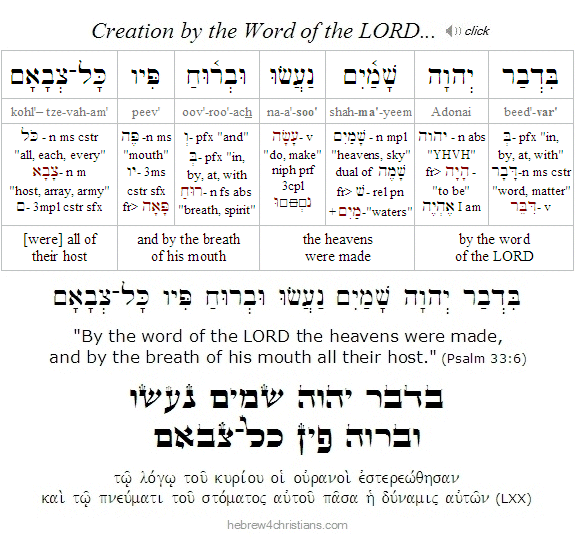 |
Click for larger photo:
Returning to the beginning:
Shabbat Bereshit...

[ The Sabbath that immediately follows Simchat Torah is called Shabbat Bereshit... ]
10.17.22 (Tishri 22, 5783) In Jewish tradition, the word "Bereshit" can refer to either the first Torah portion of the Bible (i.e., Gen. 1:1-6:8) or to the first book of the Torah itself. When it is used to refer to the Torah portion, it is called "parashat Bereshit" (פָּרָשַׁת בְּרֵאשִׁית) and the text covers the creation of the universe, including Adam and Eve, the subsequent transgression of Adam and Eve, the murder of Abel by humanity's firstborn son Cain, and the increasing depravity of the generations until the time of the calling of Noah. When it is used to refer to the book, however, it is called "sefer Bereshit" (סֵפֵר בְּרֵאשִׁית) or the "Book of Bereshit," and the text covers everything from the creation of the universe to the descent of Jacob's son Joseph into Egypt in anticipation of the great Exodus. Note that the ancient Greek translation of the Bible (i.e., the Septuagint) called this book "Genesis," (Γένεσις: "birth", "origin"), a name that was carried over in subsequent Latin and English translations.
The first Torah portion of Bereshit opens with this succinct statement about the creative activity of God: "In the beginning (i.e., "bereshit") God (i.e., Elohim) created the heavens and the earth." Note immediately that the Scriptures therefore begin - not from the first person perspective of some man's understanding of God - but from an omniscient third person perspective, a divine Voice that reveals the Glorious Power that created the entire cosmos by means of His Word. The very first verse of the Bible, then, alludes to the triune nature of God, as further indicated by the use of the plural form of the name Elohim with the singular verb bara (he created). Indeed, the word bereshit itself includes the root idea of "head" (i.e., rosh), which suggests the "head of all things," that is, to the Messiah, the Creative Word of God who is the "head of all beginning and authority" and through Whom and for Whom all things were created (Col. 1:16; 2:10).
Hebrew Lesson:
Genesis 1:1 Hebrew reading (click):
After its astounding opening line, shrouded as it is in mystery, the Torah describes how God created the universe yesh me'ayin (יֵשׁ מֵאַיִן) - "out of nothing" (Heb. 1:3) over a six "day" period. On the first day God created darkness and light; on the second day He created the atmosphere, dividing the "upper" from the "lower" waters. On the third day He set the boundaries of land and sea and seeded the earth with trees and vegetation. On the fourth day He fixed the position of the sun, moon and stars as timekeepers and illuminators of the earth. Fish, birds and reptiles were created on the fifth day; and land animals, and finally the human being, on the sixth. God ceased from His creative work on the seventh day, and sanctified it as a day of rest: the very first Shabbat...
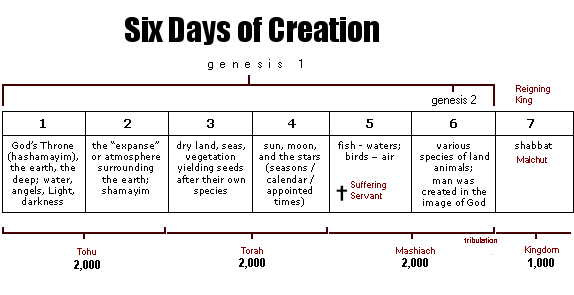 |
In addition to this general, "day by day" account of the creation of the universe by God, the Torah provides a more focused account about how God formed Adam's body from the dust of the earth and blew into his nostrils the "breath of life" (נשׁמת חיים) so that he became a "living soul" (נֶפֶשׁ חַיָּה). Notice that the more detailed account includes reference to the LORD God, the first time the name YHVH (יהוה) is used in the Scriptures. Interestingly, in this second account the earth is described as a sort of "desert." The earth was barren of vegetation, no rain had yet fallen upon the earth, and the LORD formed the man from the "dust from the ground." After breathing into him so that he became a living soul, God planted a garden (or orchard) in Eden, "in the east," and there caused every tree that was pleasant to the sight and good for food to spring up from the ground. In the very midst of this orchard were two special trees: "the Tree of Life" (עץ החיים) and "the Tree of the knowledge of good and evil" (עֵץ הַדַּעַת טוֹב וָרָע). God then instructed the man to tend the orchard and to eat from whatsoever tree he desired, though he was warned not to eat from the tree of knowledge of good and evil, "for in the day that you eat of it you shall surely die" (Gen. 2:17).
For more information about this essential Torah reading, see the Torah summary page.
Sanctifying our Days...
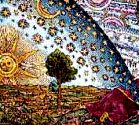
[ "When you seek truth, you seek God whether you know it or not." - Edith Stein ]
10.17.22 (Tishri 22, 5783) The "appointed times" of the LORD (i.e., mo'edim: מוֹעֲדִים) were given by God to help us turn away from the omnipresent urge within the human heart to embrace vanity: "Every one of you shall revere his mother and his father and guard (שָׁמַר) my Sabbaths (שַׁבְּתתַי)... Do not turn to worthlessness (i.e., אֱלִיל) or make for yourselves any molten gods" (Lev. 19:3-4). In other words, the Biblical holidays - including Shabbat, Passover, and so on - were intended to help us to sanctify ("set apart," "make holy") the times and seasons in order to remind us of God's Presence (Psalm 104:19). Therefore they are called mikra'ei kodesh (מִקְרָאֵי קדֶשׁ), "times in which holiness is proclaimed" (Lev. 23:2). The Torah's declaration that these days are holy implies that they are set apart for special activities, such as commemorating God as our Creator (Shabbat), our Redeemer (Passover), our Resurrection (Firstfruits), our Lawgiver (Shavuot), our King (Rosh Hashanah), our High Priest (Yom Kippur), our Sustainer (Sukkot), and so on. In this connection it should be noted that it is a mistake to assume that the divine calendar was somehow abrogated with the cross of Yeshua, since all of the Jewish holidays center on Him, and indeed the advent of the Ruach Ha-Kodesh (Holy Spirit) occurred after the resurrection of Yeshua, precisely during the prescribed 50th day jubilee of Shavuot or "Pentecost" (Acts 1:8; 2:1-4).
Presently our lives "suspended" between two worlds - this world with its illusions (olam ha'sheker: עוֹלָם הַשֶּׁקֶר), and the real world of spiritual substance and meaning (olam ha'emet: עוֹלַם הַאֱמֶת). We exist in an "already-not-yet" state of expectation and yearning where we must consciously mediate the truth of heaven by bringing it "down to earth" by means of our faith (emunah: אֱמוּנָה). This is a truth war, and by truth I do not mean intellectual knowledge as much as the living truth that marks the lifestyle and vision of a follower of Messiah. We consciously remember Torah truth; we choose to always "set the LORD before us," and take "every thought captive to the passion of Messiah..." May God help each of us heed the call to walk in holiness by the power of His love and grace. Amen.
Hebrew Lesson:
Psalm 104:19 Hebrew reading:
Strangers in this world...
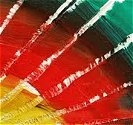
[ Chag Sukkot Sameach my fellow sojourners in Messiah's hope... ]
10.17.22 (Tishri 22, 5783) Among other things, the holiday of Sukkot reminds us that God's people are "strangers" in this world; they are literally estranged and live as "resident aliens" -- here, yet not here.... We wander; we are lonely; we yearn for our heavenly home. Life in this world is "olam ha'sheker" (עוֹלָם הַשֶּׁקֶר) the false world -- full of deception, troubles, and struggle. Thus Abraham said to the sons of Chet: "I am a 'stranger and sojourner' (גֵּר־וְתוֹשָׁב) among you; sell me a burial site" (Gen. 23:4), and likewise David said: "For we are strangers with You, mere transients like our fathers; our days on earth are like a shadow without abiding (1 Chron. 29:15).
Faith affirms that underlying the surface appearance of life is a deeper reality that is ultimately real and abiding. It "sees what is invisible" (2 Cor. 4:18) and understands that the "present form of this world is passing away" (1 Cor. 7:31). The life of faith therefore calls us to live as toshavim - sojourners - who are at an infinite "distance" from the world of appearances and who seek the Eternal. Sukkot means we ache with a divine "homesickness" as we look forward to our real home in heaven (Heb. 11:9-10). "O You who are at home deep within my heart, enable me to join you deep in my heart." Amen.
Hebrew Lesson
1 Chron. 29:15 Hebrew reading:
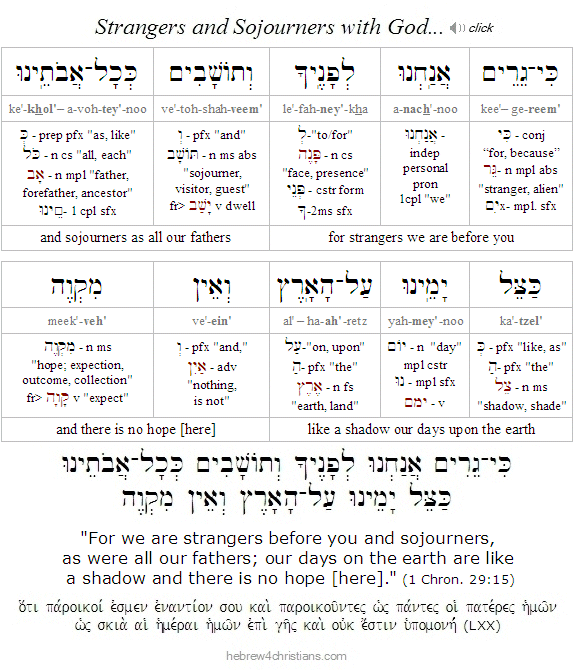 |
The Circle of Torah...
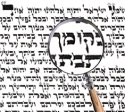
[ Simchat Torah begins Monday, Oct. 17th at sundown and runs through the following day. ]
10.16.22 (Tishri 21, 5783) Each week in synagogues across the world a portion from the Torah (called a parashah) is studied, discussed, and chanted. Jewish tradition has divided the Torah into 54 of these portions - roughly one for each week of the year - so that in the course of a year the entire Torah has been recited during services. The final reading of this cycle occurs on the holiday of Simchat Torah ("Joy of the Torah"), which immediately follows the holiday week of Sukkot. On Simchat Torah, we celebrate both the completion of the year's Torah Reading cycle as well as the start of a brand new cycle. Each Jewish year, then, we "rewind" the scroll and begin again. The sages have wisely said that you cannot compare studying Torah for the 49th time to studying it for the 50th time....
Our spiritual inheritance is bound up with the Torah: it is part of our story, our history, our heritage (Gal. 3:7; Rom. 4:16; Luke 24:27). The stories of Torah serve as parables and allegories that inform the deeper meaning of the ministry of Messiah: "Now these things happened to them as an example, but they were written down for our instruction, on whom the end of the ages has come (1 Cor. 10:11). "For whatever was written in former days was written for our instruction, that through endurance and through the encouragement of the Scriptures we might have hope" (Rom.15:4). "All Scripture is inspired by God..." which refers first of all to the Torah, the Writings, and the Prophets which attest to the Messiah (2 Tim. 3:16-17). You are therefore no longer a stranger or outsider to the heritage of the LORD but a partaker of the covenantal blessings (Eph. 2:12,19). Disciples of Yeshua are called talmidim (תַּלְמִידִים) -- a word that comes from lamad (לָמַד) meaning "to learn." Among other things, then, following the Messiah means becoming a student of the Scriptures He loved and fulfilled (Matt. 5:17-18; Luke 24:44-45). Only after learning from Yeshua as your Teacher will you be equipped to "go to all the nations and teach" others (Matt. 28:19).
We read V'zot HaBerakhah ("this is the blessing") at the end of Simchat Torah, which is the final portion of the entire Torah itself... After reading this portion, we "rewind the scroll" back to the beginning to begin reading parashat Bereshit. We do this every year because Talmud Torah - the study of Torah - is an ongoing venture in the life of a Jew. In this connection, it is interesting to note that the very first letter of the Torah is the Bet (בּ) in the word bereshit (בְּרֵאשִׁית), and the very last letter of the Torah is the Lamed (ל) in the word Israel (יִשְׂרָאֵל). Putting these letters together we get the word lev (לֵב), "heart," suggesting that the entire Torah - from the first letter to the last - reveals the heart and love of God for us... Moreover, the first letter of Scripture is a Bet (בּ), as explained above, and the last letter is a Nun (ן) in the word "Amen" (אָמֵן), so the whole Bible - from beginning to end - reveals the Person of God the Son (בֶּן) for us...
Since we are about to begin the Torah again for a new year, it is worthwhile to remind ourselves about how the Torah itself begins... In this connection we note that it speaks from an omniscient, "third person" perspective. When we read, "In the beginning, God (אֱלהִים) created the heavens and the earth," we must ask who exactly is speaking? Who is the narrator of the Torah? The very next verse states that the Spirit of God (רוּחַ אֱלהִים) was hovering over the face of the waters (Gen. 1:2), followed by the first "direct quote" of God Himself: i.e., "Let there be light" (Gen. 1:3). The creative activity of Elohim (God) and the presence of Ruach Elohim (the Spirit of God) are therefore narrated by an omniscient Voice or "Word of God." Obviously the Spirit of God is God Himself (who else?), just as the Word of God is likewise God Himself, and therefore the first verses of the Torah reveal the nature of the Godhead. God is One in the sense of echdut, "unity," "oneness," and and so on, though not "one" in the monistic sense of a solipsistic mind (νοῦς). God is beyond all predications: there can be no sense of "person" apart from relationship, and therefore God's Personhood entirely transcends all our finite conceptions - and yet God forever is One....
Hebrew Lesson
Psalm 19:17 Hebrew reading (click):
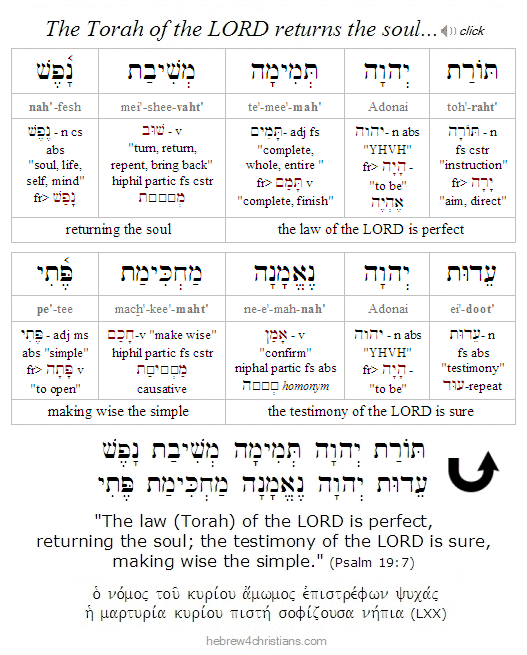 |
The Vapors of Time...
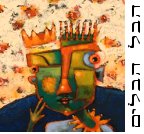
10.14.22 (Tishri 19, 5783) The scroll of Ecclesiastes (מגילת קהלת) is always read during the festive holiday of Sukkot, though you might be surprised to learn that many of the early sages did not want it included as part of the Jewish Scriptures. After all, the philosophy of Kohelet - that we are incapable of fully understanding the purposes of the world, and therefore much of what we think is important is really havel havalim (הבל הבלים), "vanity of vanities" - is contrary to the theology of reward and punishment found in the writings of Moses. This question is not unlike the Book of Job and the mysterious question as to why the righteous suffer....
It is to their great credit that the Jewish sages finally decided to include Ecclesiastes as part of the accepted canon, however, since it takes humility to admit that we must continue to seek God, despite uncertainty in this world. After surveying the emptiness of "life under the sun," Solomon concludes his reflection as follows: "Fear God and keep his commandments: ki zeh kol-ha'adam (כי־זה כל־האדם), "for this is the whole man" (Eccl. 12:13).
For more on this subject, see Sukkot and Vanity...
Hebrew Lesson
Ecclesiastes 1:2 Hebrew reading (click):
Yeshua the Hidden Guest...
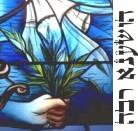
[ The following is related to the holiday of Sukkot, or the Feast of Tabernacles... ]
10.14.22 (Tishri 19, 5783) The Aramaic word "ushpizin" (אוּשְׁפִּיזִין) refers to the seven "guests" whom we remember and honor during the week-long festival of Sukkot, namely: Abraham, Isaac, Jacob, Joseph, Moses, Aaron, and King David, respectively. According to Jewish tradition, on each night a different guest (i.e., ushpiz: אוּשְׁפִּיז) enters the sukkah, and we are to symbolically welcome them by offering them a place at our table (this is similar to the tradition of putting Elijah's Cup on the table during the Passover seder). On the first night comes Abraham; on the second, Isaac, and so on.
Now in the Gospel of John we read that Yeshua said he go up to the Feast of Tabernacles "in secret" (ἐν κρυπτῷ), like an ushpiz (John 7:10). During the "middle of the festival," perhaps on the fourth day (the "Day of Joseph"), Yeshua went to the Temple and began teaching the people (John 7:14), and on the last great day, called Hoshana Rabba (הוֹשַׁעְנָא רַבָּא), when the High Priest led a parade to the pool of "Siloam" (שִׁלֹחַ) during the water libation ritual, Yeshua stood up and cried out, "If anyone thirsts, let him come to me and drink" (John 7:38).
Finally, on the morning following the festival, called Shemini Atzeret (שמיני עצרת), Yeshua returned to the Temple and said, "I am the light of the world. Whoever follows me will not walk in darkness, but will have the light of life" (John 8:12), recalling the words of the prophets: "On that day there shall be no light... and living waters shall flow out of Jerusalem; And the LORD will be king over all the earth. On that day the LORD will be one and his name one" (Zech. 14:6,9; Isa. 13:10; 30:26).
Hebrew Lesson:
Isaiah 55:1a reading (click):
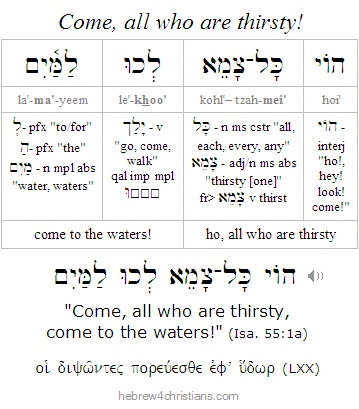 |
 |
Note: For more on this see, "The Seven Ushpizin: Yeshua as the Hidden Guest."
Think on these things...
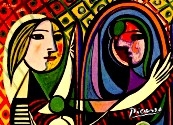
10.14.22 (Tishri 19, 5783) Yeshua taught us a great principle of spiritual life when he said: "Be merciful, just as your Father is merciful. Do not judge, and you will not be judged; do not condemn, and you will not be condemned; forgive, and you will be forgiven. Give, and it will be given to you: A good measure, pressed down, shaken together, running over, will be poured into your lap. For the measure you use will be the measure you receive" (Luke 6:36-38).
The image of a measure "pressed down, shaken together, and running over" comes from the marketplace where it was customary to bring a vessel that would be filled with grain. A generous seller would pour the grain into the vessel, shake it thoroughly to level the contents, and then add in more until it was "running over" or overflowing... Those who are generous in their giving will likewise receive back an overflowing supply.
Know then the spiritual principle: As we are to others, so we are to ourselves: "middah keneged middah" (מִדָּה כְּנֶגֶד מִדָּה), "like for like." As we freely give, so we will freely receive; as we show mercy, so we will be shown mercy; as we forgive, so we will be forgiven; as we bless others, so we invoke God's blessing upon our own lives.
On the other hand, as we withhold kindness, so kindness will be withheld from us; as we condemn others, so we will be condemned; as we refuse to forgive, so we will be unforgiven; and as we curse others, so we will be cursed. As we are to others, so we are to ourselves: "middah keneged middah" (מִדָּה כְּנֶגֶד מִדָּה), "like for like" (Psalm 18:25-26).
It is a very sobering thought that as we do to others, so will be done to ourselves. Indeed, how we think and act toward others reveals more about ourselves than them. As the Baal Shem Tov once said, "Sinners are like mirrors. When we see faults in others, we must understand that they only reflect the evil within ourselves." On the other hand, when we despise ourselves we violate the principle as well. Hating yourself is forbidden because you are made in the image of God and you do not have the right to desecrate God's Name.
Use "the good eye" to search for the good in others, and soon you will see the good imparted to your own heart by God's grace. Look upon others as you would wish them to look upon you. "Blessed are the merciful, for they shall have mercy" (Matt. 5:7). Amen, Shabbat Shalom, and think on these things, chaverim (Phil. 4:8).
Hebrew Lesson
Matthew 5:7 Hebrew reading (click):
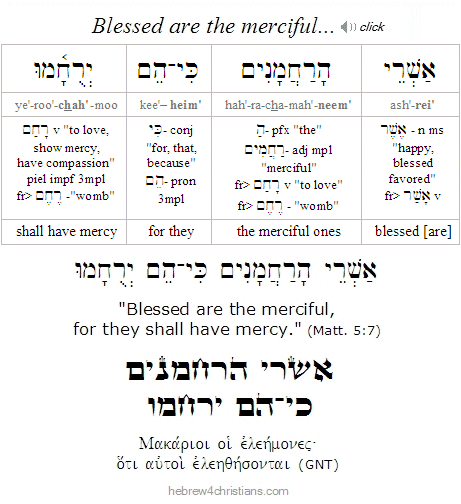 |
Shavuah Tov Audio Podcast:
Final Portion of Torah...
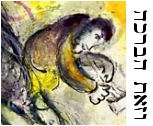
10.14.22 (Tishri 19, 5783) V'zot HaBerakhah ("this is the blessing") is the very last portion of the Torah, recording Moses' last words to the people just before his death. It is always read just after the festival of Sukkot on the holiday called "Simchat Torah." After reading this portion, we will "rewind the scroll" back to Parashat Bereshit to begin reading the Torah all over again. We do this every year because Talmud Torah - the study of Torah - never ends! A true student of Scripture cannot claim to have completed the study of the Torah, for the implications of such study extend forever. And so the cycle continues, over and over in a continuous chain of study, ever widening, and all encompassing.
Willingness to Believe...
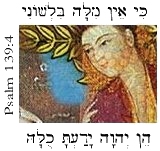
10.13.22 (Tishri 18, 5783) We are all on the "road of life," and each passing day draws us closer to our destination... Therefore we should treasure our time, the remains of our day. "Any time you are with anyone or think of anyone you must say to yourself: I am dying and this person too is dying, attempting the while to experience the truth of the words you are saying. If every one of you agrees to practice this, bitterness will die out, harmony will arise" (de Mello). Amen. The sages say, "Repent one day before you die." But who knows the day of one's death in advance? Perhaps your name will be called today, ending your lease on life in this world. Are you ready? Are you prepared to appear before your Creator to account for your life (Rev. 22:12)?
The Scriptures admonish: "Find God or die..." (Deut. 30:19). We cannot choose not to choose; we cannot "opt out" of our sacred responsibility to live before God. Every human being faces the holy dilemma, and there is no way to avoid the "either/or" by attempting to somehow unite heaven and hell. Spiritually this means that we must learn to "choose to choose," since denying the power of our choice (e.g., by rationalizing, blaming others, playing the victim) means forsaking our identity as a soul made in the image of God, and this results in being inwardly "disfigured" and fragmented...
Henri Nouwen wrote, "I am beginning to see that much of praying is grieving," that is, realizing the fracture between the "is" and "ought" of our lives. Kierkegaard said that the purpose of prayer is not to influence God but rather to change the nature of the one who prays. When we get past our words -- our chatter, the insecurities that rise from our hearts, the cares of the day, even our hopes and dreams -- then we are sufficiently quieted to encounter God. It is then that we can truly listen and grieve over our lives in naked dependence upon God.
Psalm 139 has the tone of "hitbodedut" (הִתְבּוֹדְּדוּת) – a spontaneous prayer of intimacy and earnestness that flows from personal experience. For David, God is contemporaneous and infinitely concerned with his personal life. The great psalm begins with "O Lord, you have searched me and known me" (v.1) and paradoxically ends with "Search me, O God, and know my heart" (v.23-24). But why would David pray this way when he already understood that God knew his every thought?
There is a saying that we are "only as sick as the secrets we keep." God is sovereign and knows everything about us. We have nowhere to hide. David's desire is to live transparently before the LORD without self-deception. We must abandon, therefore, the "fig leaf" attempts to cover the truth about our lives and to welcome His examination of our hearts (Psalm 7:9; 11:5; 26:2, Prov. 17:3). When we do so, we can trust that He will lead us "in the way everlasting" (בְּדֶרֶךְ עוֹלָם).
The central issue of genuine spiritual life is the willingness to do God's will, or the willingness to believe, since these amount to the same thing.... Believe what? That God is real, that He has (personally) called you by name, that he has particularly redeemed you by Yeshua's own blood poured out for your sins, and that therefore that your identity and life are bound up with his mercy and truth... The spiritual danger is always being "pulled apart" in opposite directions, dissipating the soul so that it will not be unified, focused and directed.
The stakes are nothing less than everything, friends. May the Lord give us the willingness to do His will and the courage to believe in His love. And may God deliver us from doubt and from every other fear. May we all be strong in faith, not staggering over the promises, but giving glory to God for the miracle of Yeshua our LORD. May we all be rooted and grounded in love so that we are empowered to apprehend the very "breadth and length and height and depth" of the love of God given to us in Messiah, so that we shall all be filled with all the fullness of God (Eph. 3:14-19). Amen.
Hebrew Lesson
Psalm 139:4 reading (click):
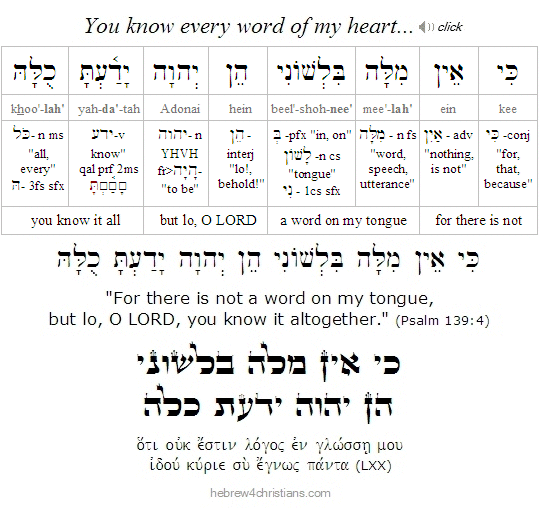 |
The Beginning of Knowledge...

10.13.22 (Tishri 18, 5783) A thematic verse of the Book of Proverbs reads: "The fear of the LORD is the beginning of knowledge, but fools despise wisdom and instruction" (Prov. 1:7). The sages teach that the fear of the LORD (i.e., yirat Adonai: יִרְאַת יְהוָה) should not be regarded as a feeling of apprehension or dread but instead is known through wisdom (i.e., chochmah: חָכְמָה) and moral instruction or "correction" (i.e., musar: מוּסָר). As Moses told Israel, we learn to fear the LORD by walking in his ways (לָלֶכֶת בְּכָל־דְּרָכָיו), by loving him (לְאַהֲבָה אֹתוֹ), and by serving him (לַעֲבֹד אֶת־יְהוָה) with all our heart (see Deut. 10:12).
Recall that the LORD commended father Abraham and trusted him with his revelation when he said, "I know him, that he will command his children and his household after him to keep the way of the LORD, and to do righteousness and justice" (Gen. 18:19; Prov. 2:9).
So gaining wisdom and moral instruction is a synonym for godly knowledge (i.e., da'at: דַּעַת), which is foundational for walking with God. Such wisdom is given in the Torah (Deut. 4:5-6) which "returns the soul to God" (Psalm 19:7). The source of all wisdom is God, "for the LORD gives wisdom" (כִּי־יְהוָה יִתֵּן חָכְמָה), and from his mouth comes knowledge and understanding" (Prov. 2:6). Wisdom is connected with musar by being transmitted (i.e., מָסוּר) by a parent or sage to his son or disciple. "For the commandment is a lamp, and Torah is light; and reproofs of instruction are the way of life" (Prov. 6:23).
Musar is the practical instruction of moral values and the admonition to obey God which is the basis for a happy and blessed life (Psalm 1:1-3). Musar teaches that God examines the heart and that all our actions will be judged accordingly (Prov. 11:5; Jer. 17:10). There is a moral order to the world, and knowing the moral law of God is the basis of the fear of the Lord. The wise person (chacham: חָכָם) is one who observes and guards the Torah which is a "Tree of Life" to those who lay hold of it, and happy are those who retain its truth (Prov. 3:18).
The fool, or evil person, is one who mocks and spurns the authority of God. He repudiates the "yoke of heaven" and exalts his own will as of supreme importance. The difference between the wise and the foolish is not one of intelligence but of moral character. The wise person practices righteousness and possesses the heart qualities (middot) of mercy, graciousness, patience, and loyalty (Exod. 34:6). "The heart of him that has understanding (i.e., binah: בִּינָה) seeks knowledge, but the mouth of fools eats babbling" (Prov. 15:14).
The sages note that the word "binah," which derives from the word "bein" (בִּין), meaning "between," implies the ability to make distinctions and to draw inferences (Prov. 4:7), whereas the word "da'at" (knowledge) primarily involves being close to something or someone, for example, the closeness of love or friendship, as well intimacy from focused intellectual activity. The knowledge of God (דַעַת אֱלֹהִים) is a cleaving of heart (דְּבָקוּת) that apprehends the will of God and acts accordingly. It is a special grace given to the heart of faith, since faith is a necessary condition for any knowledge whatsoever, and knowledge of God comes from receiving the revelation of God through trust (Jer. 9:23). The knowledge of God is bound up with mercy and humility (Hos. 6:6; Isa. 57:15; Isa. 66:2), and therefore the fear of the LORD is expressed as reverence and respect shown to all of God's creation.
It is clear, then, that we have a duty to become wise people, and indeed, the LORD wants us to be "wise of heart" and to know the depths of his love. He has promised us that if any of us lacks wisdom, "let him ask of God, who gives to all liberally and without reproach, and it will be given to him" (James 1:5). As Yeshua said: "Ask, and it shall be given you; seek, and ye shall find; knock, and it shall be opened unto you: For every one that asketh receiveth; and he that seeketh findeth; and to him that knocketh it shall be opened" (Matt. 7:7-8).
Hebrew Lesson
Proverbs 1:7 reading (click):
Made Whole by Faith...

10.13.22 (Tishri 18, 5783) It says in our Scriptures: "A double-minded man is unstable in all his ways" (James 1:8). It is common to meet people who have acquaintance with the teachings of Yeshua but who hesitate when it comes to making the decision to believe in him... They may show some interest in matters of faith; they may even read the Bible and occasionally pray, and yet they continue on as before, even growing old without resolving whether or not to embrace the Lord. Sadly many remain unresolved as long as they live...
It is not easy to trust God in the midst of affliction, temptation, and sorrow. It may be easy to "profess" faith, but it's quite another to truly live it. On the other hand, it's harder still to be skeptical, to withhold the decision to believe, and to live in the chaos of being "two-souled" (δίψυχος) - a life of contradiction and instability. Indeed the "double-minded" person is lost to himself, uncertain of who he really is, why he was created, where he is going, and whether he is ultimately to find peace at the end of his wandering. Such a life is never at rest, "ever learning but unable to come to the full knowledge of the truth." As Soren Kierkegaard once wrote: "There are two ways to be fooled. One is to believe what isn't true; the other is to refuse to believe what is true."
God is near; he is not far from each one of us. "Draw near to God (ἐγγίσατε τῷ Θεῷ) and he will draw near to you; purify your hearts, you double-minded" (James 4:8). As it is written: "The LORD is near to all who call on Him, to all who call on Him in truth" (Psalm 145:18).
Hebrew Lesson
Psalm 145:18 Hebrew reading (click):
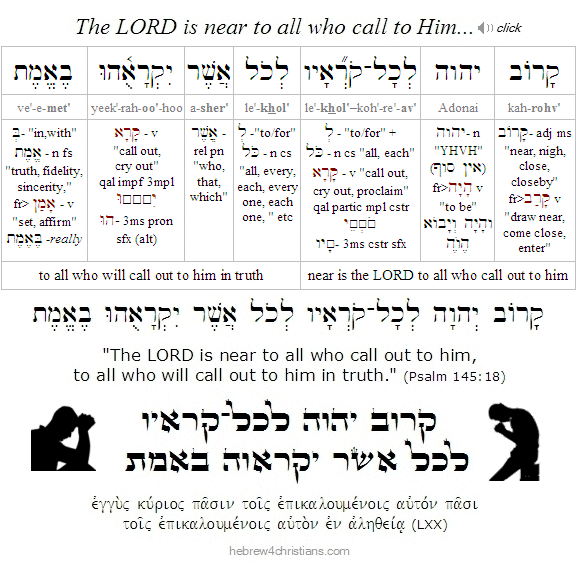 |
Trust from the Heart...
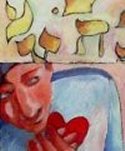
10.13.22 (Tishri 18, 5783) "Trust in the LORD with all your heart, and do not rely on your own understanding" (Prov. 3:5). Note the contrast between trusting and understanding in this familiar verse. Trust is a matter of heart, the decision to let go, whereas understanding is analytical, "objective," a matter of physical seeing. Human reason may help you discern the "what" of faith, but it is powerless to waken the soul, to breath life into heart, and to impart passion to seek God's Presence as your greatest need and your utmost good. That only comes through the sober awareness of your own sinful condition, the inner conviction that you are utterly undone and without hope apart from the intervention of God in your life, and the will to believe in the miracle...
בטח אל־יהוה בכל־לבך
ואל־בינתך אל־תשׁען
be·tach · el-Adonai · be·khol · lee·be'·kha
ve·el-bee·na'·te·kha · al-teesh·sha·ein

"Trust in the LORD with all your heart
and do not rely on your own understanding"
(Prov. 3:5)

Most commandments do not test how we comprehend our faith as much as they test the surrender of our heart. The test of faith requires bittachon (בִּטָּחוֹן) - that is, abandoning our need to understand so that we can hold fast to God's promise and blessing... "Fear not, for I am with you..." (Isa. 41:10). That's what we need most, to trust that we are safe in God's love, and that's the ultimate message of our atonement in Messiah.
The Future of Sukkot...
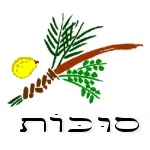
10.12.22 (Tishri 17, 5783) Our Torah reading for the holiday of Sukkot includes Leviticus chapter 23, the great chapter of the Bible that describes the mo'edim, or the appointed times of the LORD. The chapter begins: "The Lord spoke to Moses, saying, 'Speak to the people of Israel and say to them, These are the appointed times of the Lord (מוֹעֲדֵי יְהוָה) you shall proclaim as holy convocations (מִקְרָאֵי קֹדֶשׁ); they are my appointed times'" (Lev. 23:1-2).
The LORD then lists the eight appointed occasions for the redeemed people of God. First is the Sabbath day (v23), then the Passover and Unleavened Bread (v4-8), then Firstfruits (v9-14) followed by the Omer Count leading up to the jubilee of Shavuot (v15-21). These are the spring holidays, and for the most part Christian tradition has recognized these, albeit in an modified way, as "Good Friday," Resurrection day ("Easter"), and Pentecost, respectively.
The list of the appointed times in Leviticus chapter 23 continues, however, without a break in the Torah text, regarding the fall holidays, beginning with Yom Teruah ("Rosh Hashanah") (v23-25) on the first day of the seventh month, followed by the fast of Yom Kippurim on the 10th day of the month (v26-32), culminating in the holiday of Sukkot five days later (v33-43). Notice that the description of Sukkot is the longest of the holidays. This section of the Torah ends: "Thus Moses declared to the people of Israel the appointed feasts of the Lord" (v44).
There is a tension I feel within my heart during the Torah's appointed holidays, particularly regarding the fall holidays of Teruah, Yom Kippurim, and Sukkot (but also with the winter holidays of Chanukah and Purim). As mentioned above, Christian tradition has generally embraced the idea of the Sabbath ("Lord's Day") and the spring holidays, but it has disregarded the other Torah holidays (though some church traditions still mention them as part of their liturgical calendars). This creates a sense of alienation within me because it fails to acknowledge how Yeshua came to fulfill every "jot and tittle" of the Torah (Matt. 5:17-19).
Just as there is a veil presently over the eyes of the Jewish people regarding the deeper significance of Passover and the spring holidays, so there is a veil presently over the eyes of the Christian world regarding the deeper significance of the fall holidays... When Yeshua returns to restore Israel after the prophesied End of Days, the fall holidays will be realized and fulfilled: All Israel shall be saved, and all the nations shall come to Jerusalem to hear the Law and celebrate the festival of Sukkot (Isa. 2:3; Zech. 14:16). Amen. Halevai. Come, O Lord!
Hebrew Lesson
Zechariah 14:9 Hebrew reading (click):
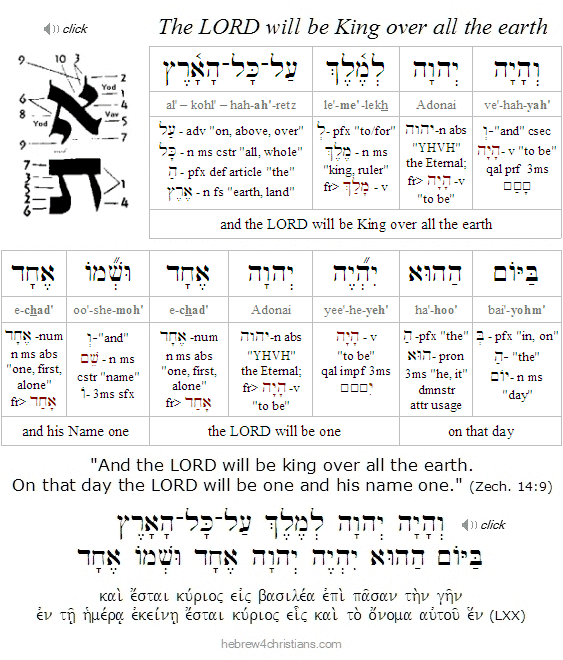 |
Facing the Fear of Death...
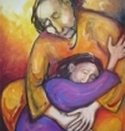
10.12.22 (Tishri 17, 5783) Some of us may fear death because we are unsure of God's heart for us... After all, life in this world is likened to a vapor or a passing shadow (Psalm 144:4). Nothing abides; good things here never last; and we labor under the unmentionable anxiety that death will separate us from everyone and everything we love. However, death is not the end for the us, for "love is stronger than death, passion fiercer than the grave; its flashes are flashes of fire, the very flame of the LORD" (Song 8:6).
"What will death be like?" they asked the Master. "It will be as if a veil is ripped apart and you will say in wonder, "So it was you all along!" (De Mello). Death is a most poignant homecoming, a place of joyful welcome, wherein all shall be well for ever. The righteous have an everlasting foundation in the faithful heart of God. Faith in the LORD believes that a single supreme, all-knowing, all-powerful and benevolent spiritual Power directs all things, and that Messiah is the beginning, middle, and end of all conscious meaning, truth, and substance, as it is written: כִּי הַכּל מִיָּדוֹ הַכּל בּוֹ וְהַכּל לוֹ הוּא, "for from him and through him and to him are all things" (Rom. 11:36). A life of faith in the one true God imparts the blessing of shalom (inner peace) and assures the heart that all shall be made well by the love of God.
So then, "whether we live, we live to the Lord, and whether we die, we die to the Lord. So then, whether we live or whether we die, we belong to the Lord" (Rom. 14:8). For the believer in Yeshua, death does not define us, and indeed, we trust that God will attend to us in the moment of our utmost extremity (John 5:24; 11:25-26). If we remember our true end before the Lord in heaven, we will be free of the fear of death.
Hebrew Lesson
Psalm 116:8 Hebrew reading (click):
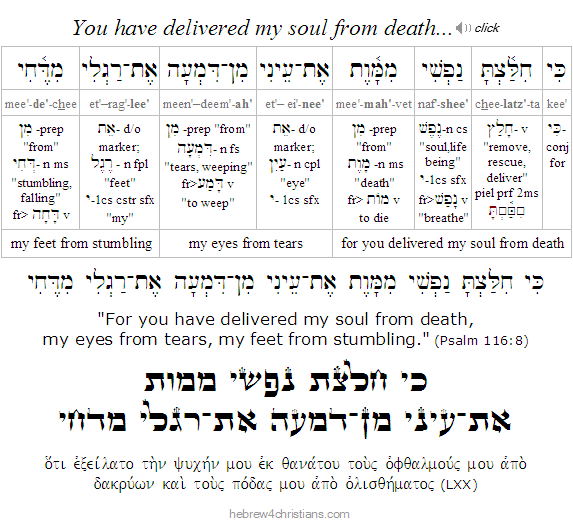 |
Celebrating God's Provision...

10.12.22 (Tishri 17, 5783) Though the LORD is forever enthroned in heaven as our Creator, our King, and our loving Deliverer, and though the heavens shout out his praise and the whole earth is filled with His glory (Isa. 6:3), nevertheless we must make a dwelling within our hearts. In great humility the LORD stands at the door and knocks (Rev. 3:20). Where does God dwell but where He is given a place, a sanctuary, a throne within the heart?
The Torah states, "On the first day [of Sukkot] you shall take to yourselves the fruit of the goodly tree (etrog), branches of palm trees (lulav), boughs of leafy trees (hadassim) and willows of the brook (aravot), and you shall rejoice before the Lord your God seven days" (Lev. 23:40). In Jewish tradition, after reciting the Hebrew blessing and shaking the bouquet around, it is customary to recite (or sing) the following antiphon from Psalm 136:
הודו ליהוה כי־טוב
כי לעולם חסדוֹ
hoh·doo la·Adonai kee-tohv
kee le·ho·lam chas·doh

"Give thanks to the LORD, for he is good,
for his steadfast love endures forever."
(Psalm 136:1)
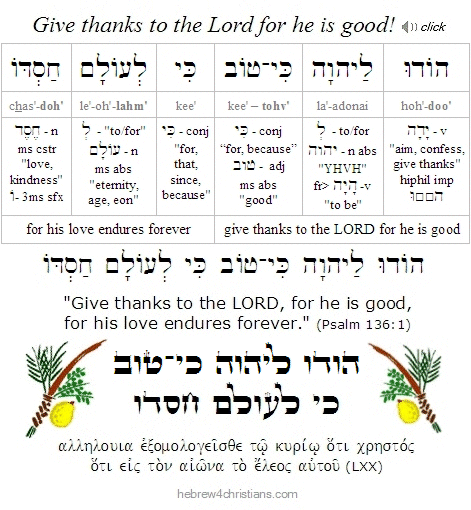
Indeed, is there any better reason to give thanks to the LORD than because of His steadfast love, i.e., His chesed (חֶסֶד)? Is there anything greater than God's love? Can anything overcome it? Can even the hardness of your own heart somehow veto or negate it's purposes? It was because of His great love that God himself (יהוה) "emptied Himself" of heavenly glory, clothed himself in human flesh and came to us, disguised as a lowly servant. God performed this act of "infinite condescension" in order to "sukkah" with us as our "hidden King" (John 1:1,14, Phil. 2:7-8). Your neshama (soul) is likened to the "Shulamite woman" he came to woo so that you might "come into His tent" -- willingly, from a heart that comes from trust (Song of Solomon).
When we receive Yeshua as the Lover of our souls, we abide in the hope of love that awaits future consummation in the world to come... Meanwhile, we are "suspended between worlds," though the veil of this world has been rent asunder and we may now appear before the LORD in the realm of the spirit by faith. We can come "boldly" before the Throne of Grace (παρρησίας τῷ θρόνῳ τῆς χάριτος) to find help for our lives (Heb. 4:16). Note that the word translated "boldly" in this verse (παρρησίας) comes from πᾶς (all) + ῥέω (to utter), suggesting that we can speak freely to God and share everything within our heart without fear or shame. We do not need to conceal ourselves from the Divine Light -- any more than we need to perform religious rituals or offer any "prescribed prayers" to access Him. We who are trusting in God's sheltering love understand the LORD to be our loving Savior and Redeemer. In our brokenness we can bare our souls before Him without fear ("there is no fear in love" - אין פַּחַד בָּאַהֲבָה). We can express "all our heart" to the LORD and be assured that He will help us in our hour of need (Heb. 4:16). "Trust in him at all times, O people; pour out your heart to him; God is a refuge for us" (Psalm 62:8).
 |
Lamentation and Healing...
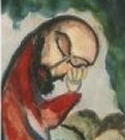
10.12.22 (Tishri 17, 5783) "My eye grows dim through sorrow; every day I call upon you, O LORD; I spread out my hands to you... Help me, O LORD my God; save me according to your love" (Psalm 88:9; 109:26). How long, O LORD, will you forget me forever? (Psalm 13:1). Such words pierce through the clichés and chatter about religion, theology, and so on, voicing the lament of a soul in trouble, desperately crying out to God for help...
The language of prayer is often quickened by affliction and trouble, for the heart senses it must find God or die. "The troubles of my heart are enlarged..." (Psalm 25:17). "Heal me, O LORD, and I will be healed..." for if you will not help, O Lord, then I will perish; I will be consumed in my grief, I will waste away in the void of darkness... "Why is my pain unceasing, my wound incurable, refusing to be healed? Will you be to me like a deceitful brook, like waters that fail?" (Jer. 15:18). O Lord, "I am poor and needy; my heart is pierced within me" (Psalm 109:22). "Have mercy upon me, O LORD; for I am weak: O LORD, heal me; for my bones are vexed. My soul is also sore vexed: but thou, O LORD, how long?" (Psalm 6:2-3).
During hours of pain or mental anguish prayer becomes spontaneous, raw, unscripted and devoid of empty words. Anguish moves us right to the point, bypassing other concerns, distilling the heart's cry for God's help. If you feel overwhelmed, pour out your heart in prayer... It is not the words of the prayer that matter as much as it is the fervor, the intensity of the heart, and the passion that yields itself before God. "Blessed are they that mourn, for they shall be comforted" (Matt. 5:4). "The LORD is near to the broken of heart and saves the contrite of spirit" (Psalm 34:18).
צָרוֹת לְבָבִי הִרְחִיבוּ
מִמְּצוּקוֹתַי הוֹצִיאֵנִי
tzah-roht · le-vah-vee · heer-chee'-voo
mee-me-tzoo-koh-tai · hoh-tzee-ei'-nee

"The troubles of my heart are enlarged;
O bring me out of my distresses."
(Psalm 25:17)

According to your faith...
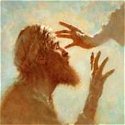
10.12.22 (Tishri 17, 5783) "The easiest thing in the world is self-deceit; for every man believes what he wishes, though the reality is often different" (Demosthenes, 4th century BC). True enough, and therefore one of the most sobering pronouncements of Jesus is simply: "According to your faith be it done unto you" (Matt. 9:29).
What an amazing responsibility each of us has to carefully discern and decide what we will believe. This is not a trivial pursuit but a matter of life and death for every soul! You cannot not choose to believe, for belief is psychologically necessary for any form of understanding or reasoning whatsoever.
Every soul therefore has faith, and that faith is prophetic: what you believe will be done unto you. As it says in the Talmud, "We don't see things the way they are; we see things the way we are," and yet the way we are determines how we will see things!
Hebrew Lesson
Proverbs 14:12 reading (click):
The Hope of Despair...

10.12.22 (Tishri 17, 5783) Our most serious struggles are inward, matters of heart, as we wrestle with dark emotions like fear, anger, disappointment, and guilt. We often despair over the contradiction between our ideals and our realities; we deny reality and then feel lost and unlovable in the hardness of unspoken shame...
On the deepest level, however, the presence of despair may be a sign of real hope, since it may express a holy "protest" over what the heart knows is wrong in its yearning for deliverance from its own wretchedness. The desperate heart knows it must find God or die. This sort of despair laments because it believes, and it believes in the midst of its lament.
As Yeshua said, "Blessed are those who are poor in spirit - the needy, the bankrupt, the powerless - for theirs is the Kingdom of heaven" (Matt. 5:3). The hidden life of the seed is not released until it first is broken and dies (John 12:24).
Hebrew Lesson
Matthew 5:3 Hebrew reading (click):
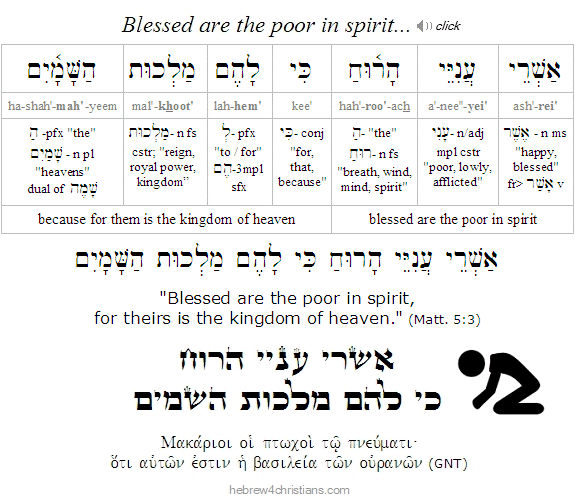 |
The fact that God knows the number of hairs on your head means that he knows you better than you know yourself... Your heavenly Father "sees in secret," and that also means that he can and will save you from whatever is hidden within you that still resists his love and touch... We have to trust in God's power to heal us, even when it seems that healing is not forthcoming, even when we still find ourselves divided, troubled, and anxious. We have to believe that God's help is always present. "Be strong, and let your heart take courage, all you who hope for the LORD" (Psalm 31:24).
God sees what He does within us, His "it-is-finished" work, the effect of His great salvation within our hearts, even if at this present hour this may be hidden from our eyes... There is appearance, and there is reality; and only God sees what is ultimately real. We have to trust in His promise to be transformed into the divine nature, even if today we find ourselves sinful, needy, and in disrepair... By God's grace we are what we are. So don't give up. We are saved by hope (ἐλπίδι ἐσώθημεν, Rom. 8:24), a hope for you today. Amen.
Note: The argument of the devil (i.e., "argumentum diaboli") is that your nightmare will not end, that change is impossible, and therefore hope is delusional. There is no way out of your self; love is lost; you are outcast, condemned, forever alone. For those who so struggle, know that God can intervene and save.
 |
Sukkah of the Heart...
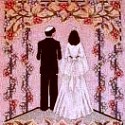
[ The following is related to the holiday of Sukkot, the "Feast of Tabernacles." Chag Sameach. ]
10.11.22 (Tishri 16, 5783) The word sukkot (סוכות) is the plural of the Hebrew word sukkah (סוכה), meaning a "booth" or "hut." In traditional Judaism, a sukkah is a temporary structure used for "living in" (i.e., primarily eating meals or entertaining guests) throughout the week-long holiday. The purpose of the sukkah is to remind us of how God tenderly cared for the Israelites as they made their trek through the dangers of the desert. God spoke endearingly to Israel: "Follow me into the wilderness, into an unsown land" (Jer. 2:2).
The Scriptures state, "The LORD upholds all who are falling and raises up all who are bowed down" (Psalm 145:14). It has been said that the word sukkah can be understood as an acronym formed from the words someikh Adonai (סוֹמֵךְ יְהוָה), "the LORD upholds," kol (כָּל), "all," and ha'nofe'leem (הַנּפְלִים), "the ones who fall." This suggests that those who make a sanctuary within their hearts, trusting in God's indwelling Presence, will be upheld and kept from falling (Jude 1:24). God knows many need this truth to be made real in this hour...
סומך יהוה לכל־הנפלים
וזוקף לכל־הכפופים
so·meikh · Adonai · le·khol - ha·noh·fe·leem
ve·zoh·keif · le·khol - ha·ke·foo·feem

"The LORD upholds all who are falling
and raises up all who are bowed down."
(Psalm 145:14)

Hebrew Study Card
The Kotzer Rebbe said that the verse, "this is my God, and I will praise him, my father's God, and I will exalt him" (Exod. 15:2), may be understood as, "this is my God, and I will make a dwelling for Him within me." Though the LORD is forever enthroned in heaven as our Creator, King, and Deliverer, we still must make a dwelling within us. He stands at the door and knocks. "Where does God dwell," it is asked, "but where He is given a dwelling place, a sanctuary, a throne within the heart?"
Sukkot and Salvation...
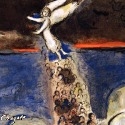
10.11.22 (Tishri 16, 5783) The holiday of Sukkot remembers the journey of the redeemed people of God - first from Egypt, then to Sinai, and then into the void of the desert places.... The repeated failures of the Israelites in the wilderness was meant to reveal the insufficiency of "Egyptian thinking" by demonstrating God's faithful love and ongoing care. The entire ordeal in the desert was a "Sukkot experience" that pointed beyond Sinai....
Sukkot symbolizes the journey of faith by means of erecting a sukkah - a flimsy shelter that we are to "live in" for seven days. The sukkah is meant to help us ask ourselves: Where is the true home we seek? Where is the true shelter of our lives? The first Jew (Abram) was called ha-ivri (הָעִבְרִי) - "the Hebrew," a term that means "one who has crossed over" (עָבַר) from another place. When he heeded the call Lekh lekha (לך־לך), "go for yourself," it was Abram's walk of faith that made him into a Jew.... He left the comforts of Ur to become a tent dweller who became a "stranger and sojourner" with God. Similarly, the Jewish people as a whole were forced to leave the "security" of Egypt and journey into the unknown in order to realize the promises of God. Sukkot reminds us that our security is neither found in political power structures nor in the concrete walls of our homes, but solely in the Presence of God. Our freedom as God's children is at stake in the matter of redemption, and God takes it very seriously when we exchange a supposed source of security for the venture of true faith....
Hebrew Lesson
Jonah 1:9a Hebrew reading (click):
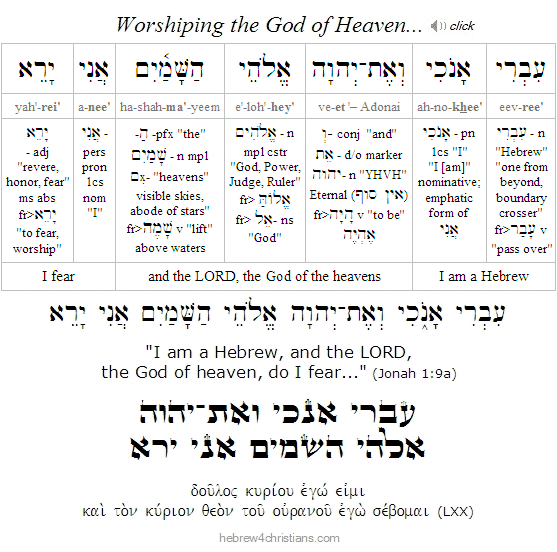 |
So where is the true home you seek? Are you clinging to hope in this world and its counterfeit security? Are you willing to sacrifice your dignity as a child of God for the protection of the "State"? When God redeemed Israel from Egypt, it was a rebirth experience. Passover represented the means of redemption (the blood of the lamb), Shavuot represented the revelation of the holiness of God (the Sinai experience), and Sukkot represented the walk of faith as reborn and redeemed children. God took Israel out of Egypt (i.e., out of the world) in order to reveal to them who He is -- and who they were in relationship with Him.... The pattern remains the same. The world system is a form of slavery, and Sukkot reveals how God bypasses the world to care for His people...
For more on this topic, see "Sukkot and Freedom." Chag Sukkot Sameach friends!
Why Sukkot Matters...

10.11.22 (Tishri 16, 5783) We learn about God through the witness of His Spirit as preserved in the Holy Scriptures, but to properly interpret the Scriptures we must read in context, and therefore we must endeavor to understand the New Testament in light of the Torah, not the other way around... Without the background of the Torah and the history of the Jewish people, the meaning and terms of the New Testament will be obscure and subject to misunderstanding (John 4:22; Rom. 9:4).
It is written in our Scriptures: "Yeshua the Messiah became a servant to the circumcised to show God's truthfulness, in order to confirm the promises given to the fathers" (Rom. 15:8). He came from heaven, "tabernacling with us," as Israel's promised Redeemer and the manifest revelation of God (John 1:14; 1 Tim. 3:16), his mother Miriam (Mary) being miraculously impregnated by the power of the Holy Spirit, Yeshua was he was born the "King of the Jews" in Bet-Lechem (Bethlehem), "born under the law" as the "Second Adam" (or "Son of Man"); and was circumcised according to the Torah on the eighth day, being given the Hebrew name "Yeshua," God's Salvation. Yeshua grew up as a faithful Jew, fluent in Torah reading and study (Luke 4:16-21; John 4:22). He observed all the Torah holidays as prescribed by the law of Moses. When he began his public ministry, he was baptized to identify himself as the "Son of Man," calling out to the lost sheep of the house of Israel to repent and believe the message of God's redemption revealed in him. Yeshua repeatedly taught that the Scriptures foretold of his coming and born witness of Him (John 5:39). He foretold his sacrificial death for our sins and his resurrection from the dead (Mark 10:32-34). After his crucifixion and resurrection, he told his disciples that he is the central meaning of all the Jewish Scriptures: "And beginning with Moses and all the Prophets, he interpreted to them in all the Scriptures the things concerning himself" (Luke 24:27; John 5:39; 8:58). He then instructed his followers to go to Jerusalem to receive the Holy Spirit on the very day of Shavuot ("Pentecost"), in fulfillment of the Scriptures. Later, when he miraculously called out to the Apostle Paul to follow him, Yeshua identified himself as the Jewish Messiah by using the Hebrew language (Acts 26:14).
We study Torah to know Yeshua, the "Living Torah" better, as he said: "Therefore every scribe who has been trained for the kingdom of heaven is like a master of a house, who brings out of his treasure what is new and what is old" (Matt. 13:52). Our Lord observed Sukkot (and all the holidays of Torah), and he wanted his followers to understand why (Luke 24:27; Luke 24:44; John 1:45; John 5:46; Gal. 4:4-5; etc.). After all, Yeshua wanted his followers to understand his ministry, but to do so, we must understand its context in Jewish history and tradition. Sukkot, or "Tabernacles" is part of our heritage as those who trust in the LORD God of Israel and his salvation given in Yeshua. Amen.
Hebrew Lesson
Psalm 119:97 Hebrew reading (click):
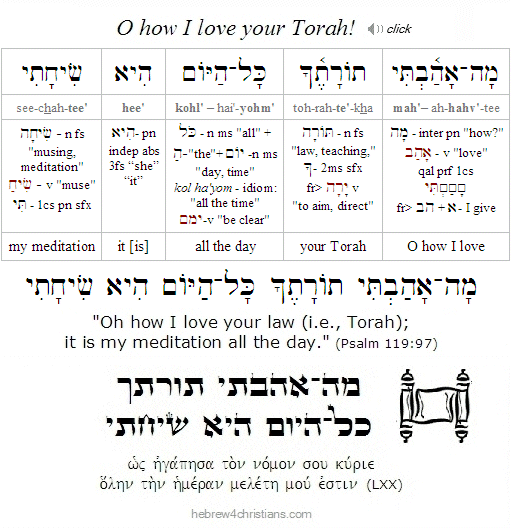 |
Substance of Hope...
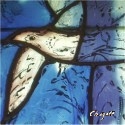
10.11.22 (Tishri 16, 5783) "Faith is the foundation (i.e., ὑπόστασις: the "substance," reality, underlying essence, etc.) of hope, the conviction of the unseen... Without faith it is impossible to please God, for whoever would draw near must believe that God exists and rewards (μισθαποδότης) those who seek him" (Heb. 11:1,6).
Note that God is pleased when we seek his presence, that is, when we when we look past the ephemera and ambiguity of the phenomenal world for the truth about spiritual reality (2 Cor. 4:18). For our part, faith resolves to confession (ὁμολογέω), that is, aligning our perspective and focus to agree with the revelation and message of divine truth and verballly declaring our conviction. We must say that we believe, and affirm it with all our heart (Rom. 10:9). As it says, "I will make Your faithfulness known with my mouth" (Psalm 89:1).
When you encounter tribulation, or experience some crisis of faith, reaffirm aloud: "I believe in God's promise..." Physically expressing your faith is itself an act of faith, and this encourages your soul to trust in God's healing reward even in the present struggle or darkness...
Hebrew Lesson
Psalm 105:4 Hebrew reading (click):
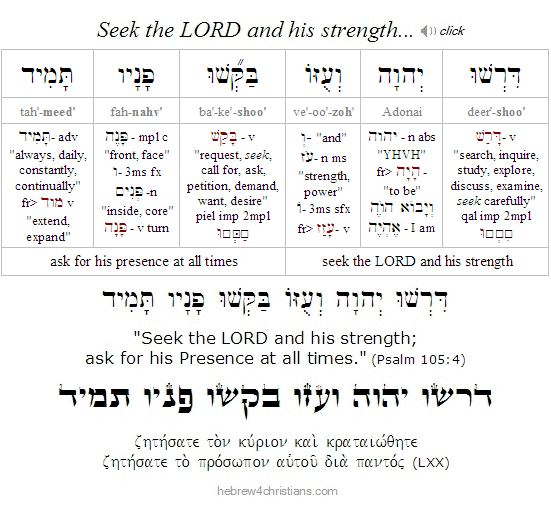 |
Surrounded by His Sukkah...

[ The following is related to the holiday of Sukkot, or the "Feast of Tabernacles"... ]
10.10.22 (Tishri 15, 5783) The root idea of the word "sukkah" (סוכה) means to cover or surround, as in hedge or cloud of protection. The Hebrew root is used when Moses asked to behold God's glory and the meaning of the name YHVH (יהוה), and God said, "Behold there is a place by me where you shall stand on the rock, and while my glory overtakes you I will cover you with my hand (וְשַׂכּתִי כַפִּי עָלֶיךָ) until I have passed by (Exod. 33:21-22). The hand of God (יַד־יְהוָה) is ultimately our sukkah, and indeed the LORD writes our names upon his palms and sets us as a seal upon his heart (Isa. 49:16; Sol. 8:6).
Hebrew Lesson
Exodus 33:22b Hebrew reading (click):
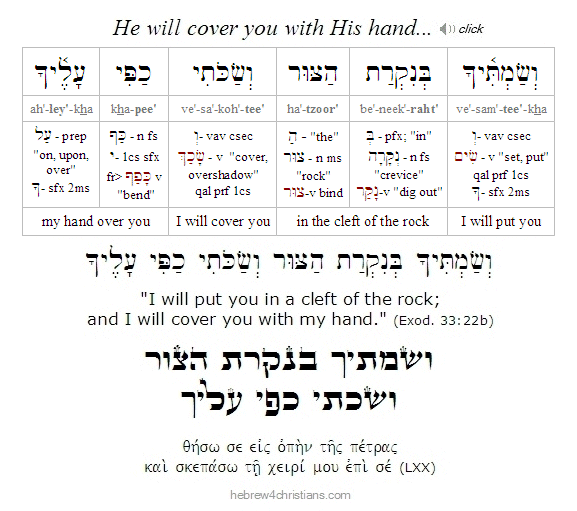 |
Likewise King David affirmed that God would hide him within his sukkah (סוכה) and elevate him upon the Rock that is Messiah: "For he will hide me in his sukkah (i.e., his cloud); in the time of trouble he will conceal me in the secret of his tent (i.e., his Presence): he will raise me up upon a Rock" (Psalm 27:5). Note that the Hebrew translated "he will hide me" (i.e., יצפנני) can also be translated as "he will treasure me," suggesting that God will overshadow and protect you from harm because you are his beloved (1 Cor. 10:4).
Hebrew Lesson
Psalm 27:5a Hebrew reading (click):
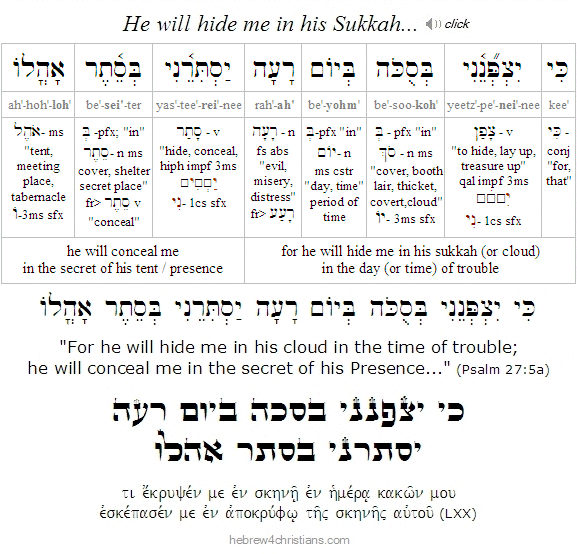 |
Since God's Name (יהוה) means "Presence," "Breath," "Compassion," "Love," "Healing," and so on, we are surrounded by his Sukkah at all times... As King David prayed: Where shall I go from your Spirit? Or where shall I flee from your presence? (Psalm 139:7). In other words, you don't have to be in a physical sukkah to be in His sukkah (though being in a physical sukkah is indeed a blessing of course ). May God open our eyes to see his glory! Amen and Sukkot sameach be'Yeshua (סוכות שמחה בישוע) - Happy Sukkot in Yeshua!
Sukkot Torah Readings...

[ Chag Sukkot Sameach, chaverim! For some family Sukkot pictures click here. ]
10.10.22 (Tishri 15, 5783) The weekly Torah Reading Cycle is suspended for the holiday week of Sukkot (referred to as "Tabernacles" in the Christian tradition), as well as for Shemini Atzeret (sometimes referred to as the "eighth day" of Sukkot). The Torah readings for the holiday are from Leviticus 22-23, Numbers 29, and Deuteronomy 14-16. These readings review the holidays or "appointed times" on the Jewish calendar, including the commandments regarding the festival of Sukkot.
In addition to the various passages we read for each day of the holiday, we will read the Book of Ecclesiastes (i.e., Kohelet) for the Sabbath day of Sukkot. We will also read both the very last portion of the Torah (i.e., V'zot HaBerakhah: Deut. 33:1-34:12) as well as the very first chapter of the Torah (i.e., Gen. 1:1-2:3) for the holiday of "Simchat Torah" (which immediately follows Shemini Atzeret). The upshot is that during this season of the year we will read the end of the Torah scroll and then "rewind" it to the beginning...
Note: For detailed information about Sukkot Torah readings, see the weekly Torah page.
God's Sheltering Love...

[ The week-long holiday of Sukkot begins Sunday, Oct. 6th at sundown this year... ]
10.07.22 (Tishri 12, 5783) The Torah describes Sukkot (i.e., "Tabernacles") as a holiday of joy and gladness: "You are to rejoice in your festival (וְשָׂמַחְתָּ בְּחַגֶּךָ).... for seven days you shall keep the festival (שִׁבְעַת יָמִים תָּחֹג)... so that you will be altogether joyful" (Deut. 16:14-15). Nevertheless we may wonder how we can celebrate in a world filled with suffering, death, political tyranny, and misery? Since God commands us to be joyful, however, we must understand this joy to be something more than temporal elation or fleeting pleasure, but rather as the result of the decision to believe in healing despite the appearances of this realm. It is a joy and peace that "passes all understanding..." (Phil. 4:7).
"The world to come, the perfect world, we at least believe in; but this material world, this one here and now, how can anyone believe in it? The only thing to do is to run to the refuge of God" (Rebbe Nachman). The joy of the season of Sukkot, then, is the joy of hope, the conviction that "all shall be well, and all manner of thing shall be well" (Julian of Norwich). Darkness will be overcome by the light; evil will become undone; all that is untrue shall be made true; and every tear shall be wiped away... The sukkah symbolizes the "Clouds of Glory" that surround our way in the desert – the "Divine Presence" beheld in faith. We find joy as we choose to believe in the deeper reality of God's sheltering love. Amen.
Hebrew Lesson
Song of Songs 2:4 reading (click):
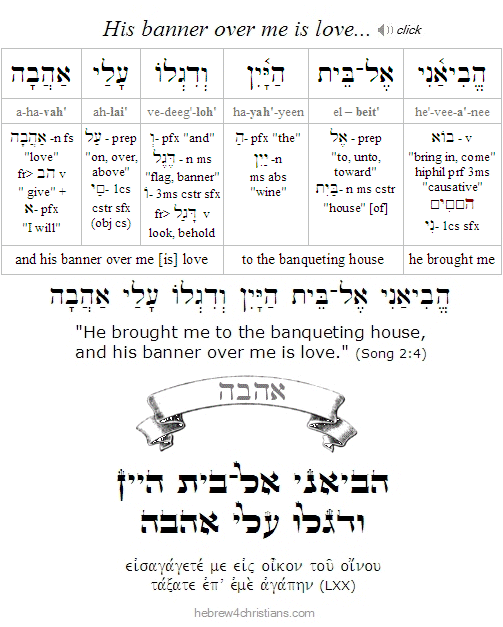 |
Torah states: "You shall dwell in sukkot (booths) for seven days. All native Israelites shall dwell in booths, that your generations may know that I made the people of Israel dwell in booths when I brought them out of the land of Egypt: I am the LORD your God" (Lev. 23:42-43). The sages say that the booths commemorate the Clouds of Glory (עַנְנֵי תְּהִילָה), seven clouds that encompassed and protected the people during their sojourn in the desert (Sukka 11b). We recall the Clouds of God's glory as the gift of his sustaining love and care during our journey to freedom. Indeed the clouds represent the holy Shekhinah (שְׁכִינָה), the ruach Hakodesh and indwelling presence of God that protects us and gives us comfort. Just as the ruach fell on the generation of Moses' advent, so with the generation of Messiah: the Spirit brings strength to heart, protection from evil, and guidance for our way (John 14:26).
All of Torah is grounded in emunah (faith), as the very First Commandment of Torah is to trust that the LORD is God for you (אָנכִי יְהוָה אֱלהֶיךָ). Moreover Scripture also says: "All your commandments are emunah" (כָּל־מִצְוֹתֶיךָ אֱמוּנָה); and, "you are near, O LORD, and all your commandments are faithul" (Psalm 119:86; 151). Indeed faith is the "substance" (i.e., ὑπόστασις, reality, essence) of hope, the conviction of the unseen good (Heb. 11:1); without emunah it is impossible to please God (Heb. 11:6). We celebrate Sukkot because God calls us to know our heritage and to believe in the light of His surrounding Presence. Amen.
 |
God's Faithful Love for Israel...

[ We read parashat Ha'azinu on the Sabbath following Yom Kippur... ]
10.07.22 (Tishri 12, 5783) Our Torah portion this week (i.e., parashat Ha'azinu) celebrates the unique role given to the Jewish people and the nation of Israel among the nations of the world: "When the Most High (עֶלְיוֹן) divided to the nations their inheritance, when he separated the children of mankind, he set the boundaries of the nations according to the number of the children of Israel. For the LORD'S portion is his people; Ya'akov is the allotment or "rope" (חֶבֶל) of his inheritance" (Deut. 32:8-9).
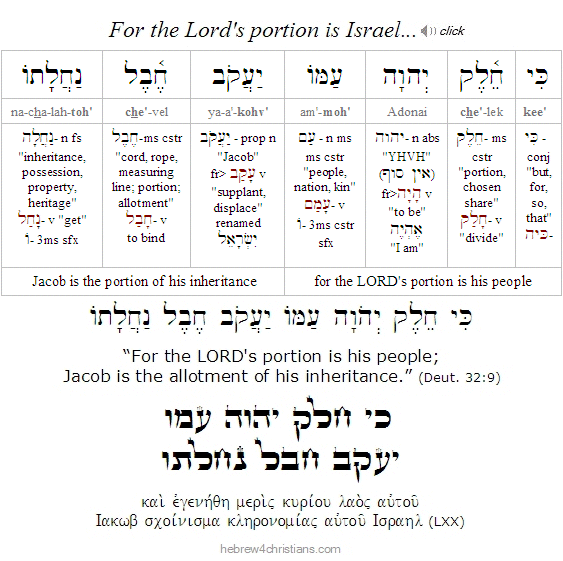 |
The nation of Israel has a unique place in the divine providence: "The LORD has chosen Jacob for himself, Israel as his special possession" (Psalm 135:4; Exod. 19:5, Deut. 7:6; 2 Sam. 7:23). To Israel it was said: "You will be my people; and I will be your God," and וִהְיִיתֶם לִי סְגֻלָּה מִכָּל־הָעַמִּים - "you are my beloved treasure among the nations" (Jer. 11:4; Exod. 19:5).
Most significantly, God chose Israel to be the physical conduit for the advent of Yeshua, the Redeemer and Light of the world (Isa. 42:6; Luke 2:32; John 8:12, Gal. 4:4). Yeshua was born the "King of the Jews" (מֶלֶךְ הַיְּהוּדִים), the "splendor of Israel" (תִּפְאֶרֶת יִשְׂרָאֵל), and the One who is the "rope of inheritance" (חֶבֶל נַחֲלָתוֹ) to heaven. "Salvation is from the Jews" (John 4:22). The culmination of God's redemptive activity centers on the Jewish people: Yeshua will come again, not to Rome (or to Geneva) or anywhere else but to Jerusalem, the "City of the Great King" (Matt. 5:35), to fulfill the promises God gave to the Jewish people. Then Zion will be established and all the nations will submit to the reign of the LORD.
The sages say, "If you want to live, hold the rope and don't let go, lest you drown." Yeshua is the Rope of our inheritance (חֶבֶל הַיְרוּשָׁה שֶׁלָנוּ) by which we connect with and obtain God's salvation. All those who trust in Him are grafted into the godly heritage and inheritance of Israel. They are promised heavenly blessing as partakers of the covenantal promises given to the Jewish people (Eph. 2:19; 3:6; Gal. 3:29; Rom. 2:28-29, Rom. 15:12; Col. 1:12).
Hebrew Lesson
Psalm 135:4 Hebrew reading - with comments (click);
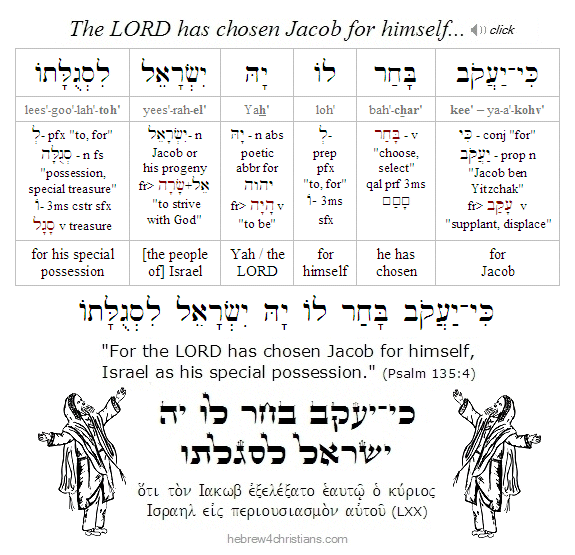 |
|































